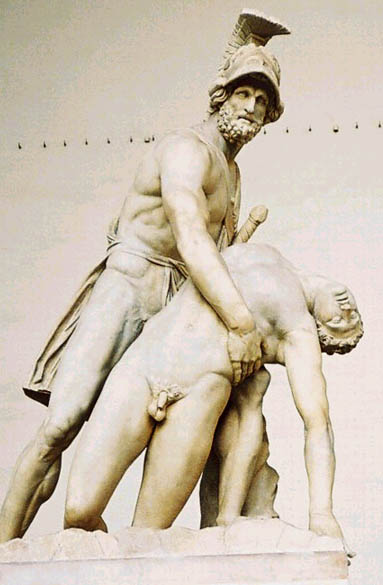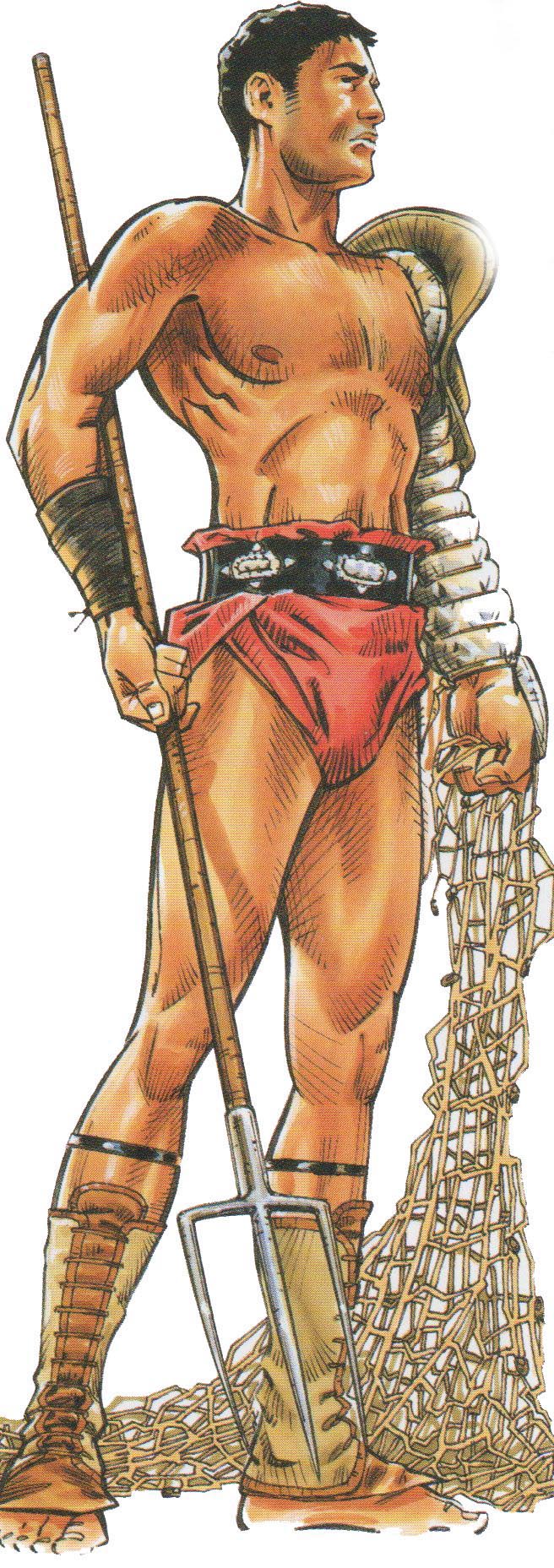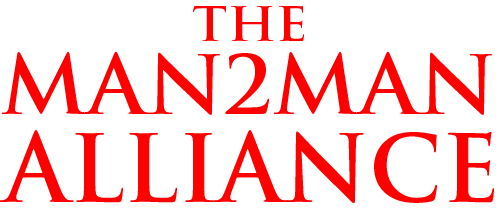




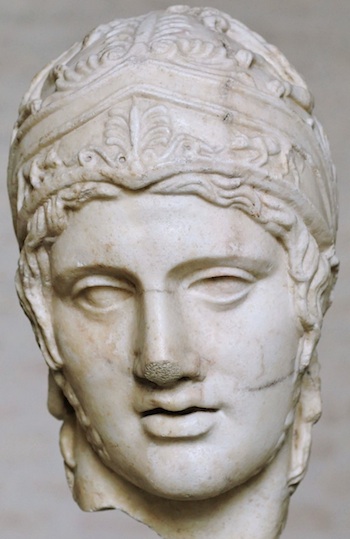

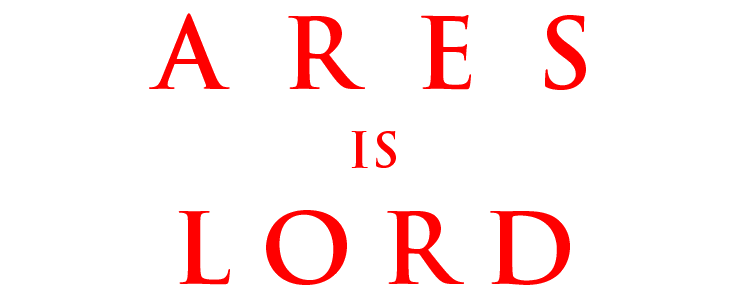
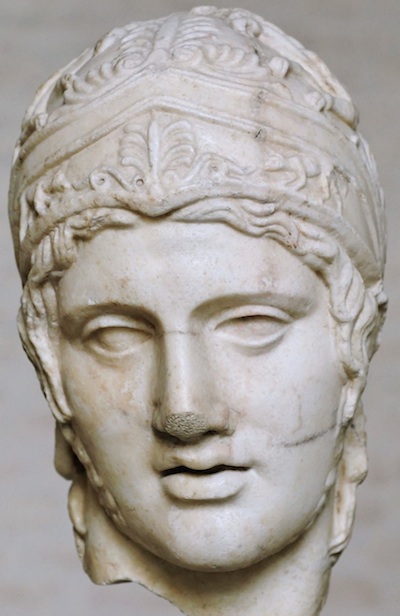









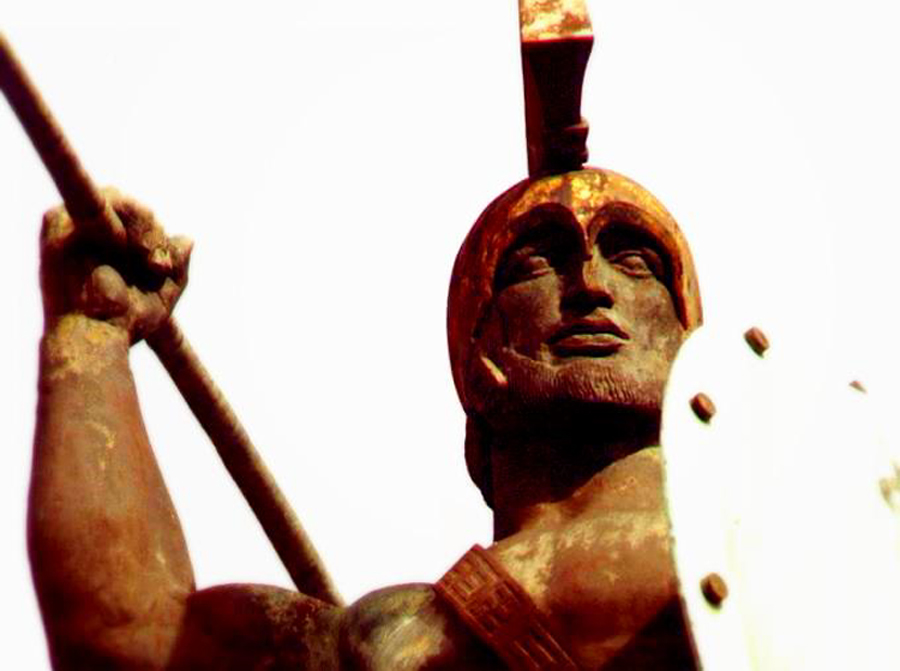


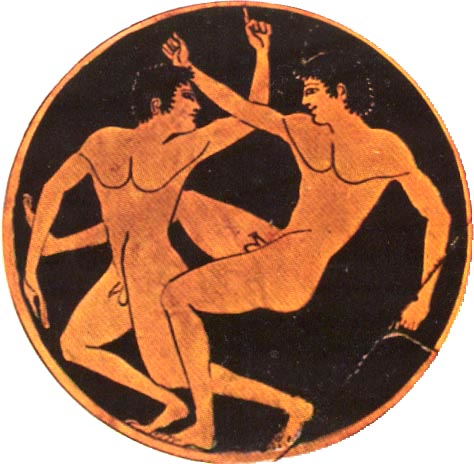
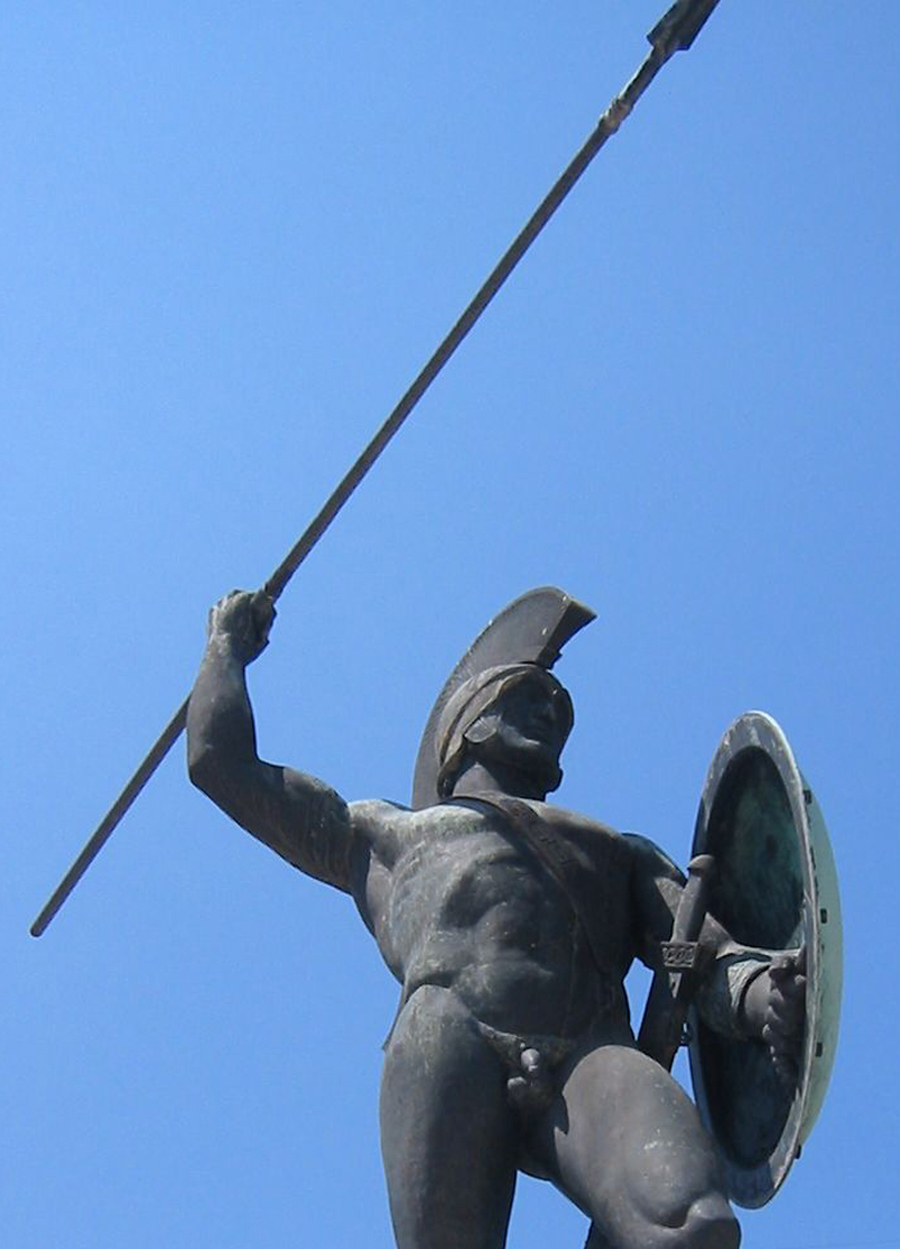
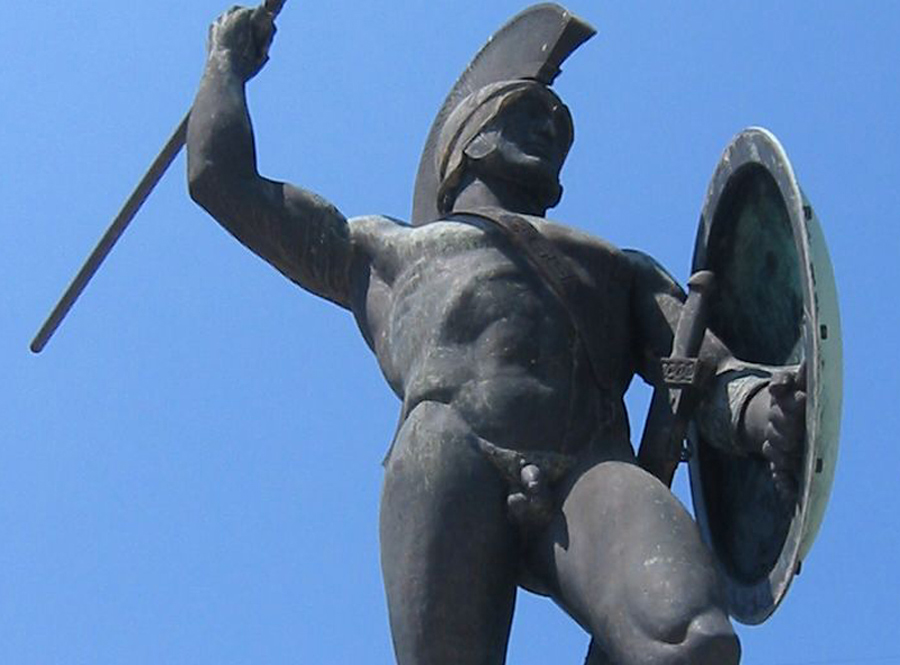
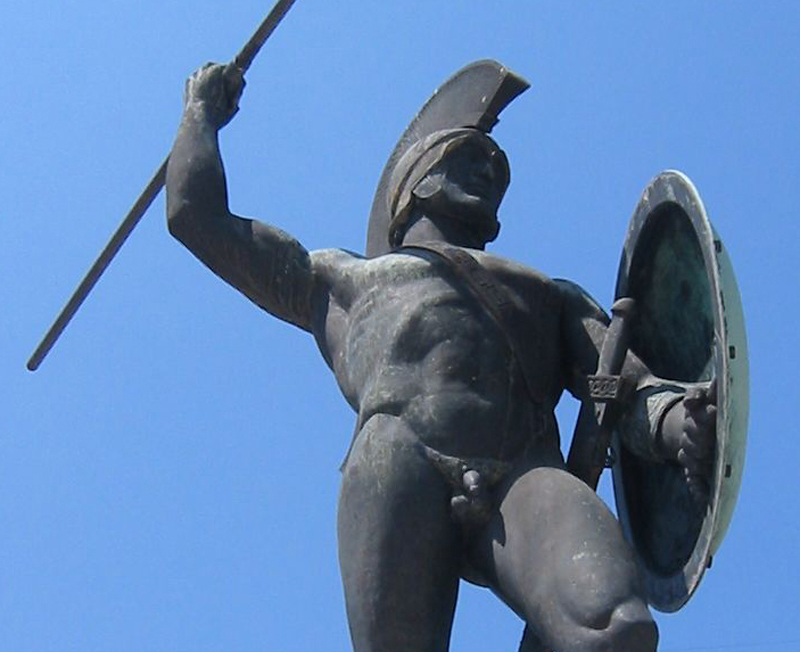
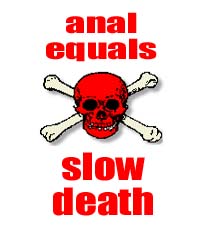

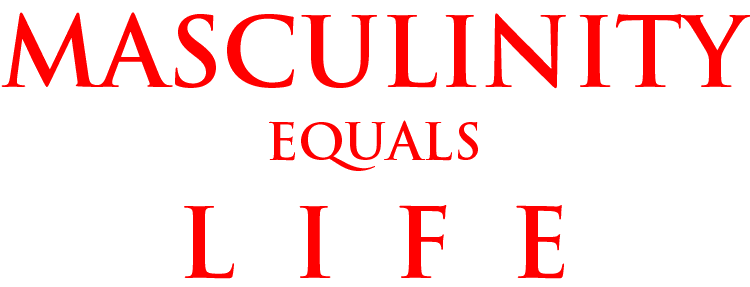







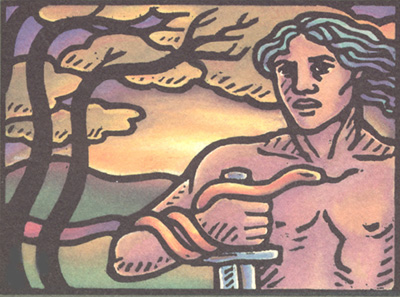


MANHOOD: A Reductional, Functional, Teleological, Incantational, and, above all, Sanctional --
Lexicon
Hi guy.
Welcome to Biblion Tetarton -- Book IV -- of Manhood: A Lexicon.
My name is Bill Weintraub, and I'm the creator of The Man2Man Alliance and Ares is Lord websites, and the author of Manhood: A Lexicon.
Manhood: A Lexicon is, basically, a book -- masquerading as a webpage.
And, like any book, it's best read from the beginning.
So -- I strongly encourage you to read, if you haven't already, the Prefatory Note and Prolegomena to Manhood: A Lexicon ;
And then Biblion Proton ;
Followed by Biblion Deuteron and Biblion Triton.
It's important that you read that material, and in that order:
Doing so will greatly aid your understanding of the material you encounter in Biblion Tetarton and the rest of Manhood: A Lexicon.
Also:
Biblion Tetarton -- Book IV -- is divided into sections:
WARRIORS AND WARRIORDOMS
FATHER AND KING
ARES - EROS - AGON
MANLY MORAL ORDER
IN UNION WITH VALOUR
Again, it's important that you read all five sections, and in the order given.
July 20, 2013
BIBLION TETARTON
WARRIORS AND WARRIORDOMS
FATHER AND KING
ARES - EROS - AGON
MANLY MORAL ORDER
IN UNION WITH VALOUR
By Bill Weintraub
BIBLION TETARTON
By Bill Weintraub
ςo -- now that we've identified Manhood, Fighting Manhood, with Moral Beauty, Goodness, Nobility, Excellence, Valour, and Worth ; looked at Manhood as the Primal Love, the Highest Value, and Good in Itself ; and begun to understand the process of UN-forgetting that same Absolute Manhood, that Supreme Fighting Manhood --
it's time to ask:
Is Fighting Manhood -- in the form of Struggle and Strife -- Fighting -- Fighting between Men who are, as famed classicist Werner Jaeger says, Struggling to Perfect their Manhood --
Is the Struggle of Manhood Against Manhood, the Fight of Fighting Manhood Against Fighting Manhood -- "the Father of All?"
Because, you see, "Fight is the Father of All" is a saying attributed to the Greek philosopher Heraclitus, who died a few years before Sokrates was born, and so is known as a "pre-Socratic."
In order to answer that question, I need to make some things clear to you, things which should be clear to you already but which, I can tell from what you say to me, are not.
First off, the ancient Greek world -- and the ancient Roman world and the ancient Keltic and Teutonic and Persian etc worlds -- were ALL Warriordoms:
They were all Masculinist and Martial cultures in which the Warrior, and his way of life, was supreme.
And they were, all, and as I've already said in the Prolegomena -- Dominant Cultures -- meaning that they called the shots, they determined what was normative and what wasn't.
Again: Warriordoms were Dominant Cultures -- it was their norms, their standards of behavior and belief, which mattered.
Just so that's really really and crystal clear, let's say it one more time:
Warriordoms were Dominant Cultures -- it was Warrior norms, Warrior standards of behavior and belief, which mattered.
And those Warrior standards of behavior and belief centered, as you've seen, on Fighting Manhood.
That being the case -- and keeping in mind the distinction, discussed in Biblion Deuteron, between the World of Becoming and the World of Being --
ALL MEN of that era lived in a sensible realm -- a world of becoming -- which was a WARRIORDOM -- that is, which centered on Fighting Manhood.
For the Greeks, that Fighting Manhood was expressed in Fight Sport -- nude and unarmed -- and on the battlefield.
Often, as you saw in our discussion of Timé, Fighting on the battlefield was nude also.
But it was armed -- and therefore deadly.
So -- for the Greeks, Fighting was sometimes armed and sometimes not.
For peoples like the Kelts and the Romans, Fighting was usually armed.
There persisted, after Rome conquered Greece, and in the Greco-Roman world, a tradition of Nude Fight Sport --
but what mattered to the Romans -- was knowing how to Fight -- with sword and shield.
But -- regardless of the particulars of how individual Men Fought in the World of Becoming:
The World of Being of virtually ALL MEN was a Warrior Kosmos -- governed by Warrior Ideas, Forms, Essences, and Ideals -- most especially, Fighting Manhood, which was identified with Moral Beauty, Goodness, Virtue, Valour, Courage, Nobility, Prowess, Excellence, Righteousness, and Worth.
As you've seen, and focusing on the Greeks, in the Prolegomena and Bibilon Proton -- and the following Biblia as well.
We today, by contrast, no longer live in Warriordoms -- and, as a consequence, only a very few Men have managed to UN-forget their Manhood and commune with it -- in the Warrior World of Being.
But that was NOT so in the ancient world.
And I know that most of you won't believe me -- because I know for example that to convince even a guy like NW, a guy who's actually trained, and fought, in Fight Sport -- I know that to convince him of the simple fact, for example, that armed single-combat, one-on-one combat with weapons -- was normative in the ancient world of the Romans and the Kelts -- is a struggle.
He just doesn't or can't believe or accept it.
But -- I'm correct.
So -- let's take a little time to look at an encounter between two Warriors, one Keltic, the other Roman -- an armed single-combat -- in 359 BC, as described by classicist JE Lendon.
Fighting Manhood.
The Greek word is Areté.
The Latin word is Virtus.
This is a bit of what classicist J E Lendon, whose work we examined in The Secret Craft of Warriorhood, says about Virtus:
Virtus was the root value of Romans of the middle Republic -- Romans wore iron rings to symbolize it -- and like the martial excellence [areté] of the Greeks, virtus was par excellence a competitive quality.
. . .
It was the fiery ambition of Romans, especially young Roman aristocrats, to excel those around them in virtus that led them to seek out single combat.
. . .
[In 359 BC] a vast company of Gauls was camped in the Pomptine country south of Rome. The Gauls, Rome's most feared enemy, had sacked the city [thirty] years earlier, vagrant armies of Gauls wandering over Italy brought frequent panics, and the Gallic attacks had brought Rome's neighbors to the north, the haughty and refined Etruscans, to the verge of destruction. The Roman army marched against the Gauls, but the Roman war leaders, the consuls, were alarmed by the number and strength of the ancestral foe.
. . .
[A] gigantic Gaul -- "naked except for his shield, two swords, torque [metal collar], and arm-rings" -- had challenged the Romans to send forth a champion to face him. "No one dared because of his size and savage appearance. Then the Gaul began to laugh at them and stick out his tongue." Offended at the insult to his country, the young Titus Manlius answered the challenge, and when the Gaul came on singing, the Roman rammed the barbarian's shield with his own, driving him back and throwing him off balance, eventually getting under his guard and stabbing him in the chest and then the shoulder with his sword. "When he had overthrown him, he cut off his head, dragged off his torque, bloody as it was, and put it around his own neck. For this act he and his posterity bore the nickname 'Torquatus,' " the Torqued one.
~J E Lendon, Soldiers and Ghosts: A History of Battle in Classical Antiquity
So let's talk about the Gauls -- that is, the Kelts -- and the Romans a bit.
Lendon says that the Kelt was "naked except for his shield, two swords, torque [metal collar], and arm-rings."
And that's correct.
The Kelts, like the Greeks, Fought Nude.
This is a Greek sculpture of a Keltic Warrior:
This is also Greek:
The Kelts, like the Greeks, Fought Nude.
Which means that whatever the Keltic word for Timé -- Worth -- may have been -- Nude Combat added to it.
To a Kelt, Fighting Nude added to his Worth.
Which is Manhood.
Now: these are torques -- the gold collars which the Kelts wore:
And then we have this artist's conception:
The central figure in this battle scene could well be the Keltic Champion who taunted Titus Manlius:
Notice his torque, his arm-rings, his sword and shield, and of course his nudity, very much as the Roman historian has described:
This is a Hellenistic sculpture of a dying Celtic Warrior -- the Man Titus Manlius fought may well have looked like this Man:
Here are two more nude Kelts, attacking and killing Romans:
And now we fast forward about 500 years, from the time of Titus Manlius in 359 BC to about 150 AD.
Gaul has been conquered and Romanized, and these are Romanized Kelts who are in the Roman army.
But they're still, in good Keltic fashion, collecting the heads of their enemies:
Because that what the Kelts of Gaul did -- before the Romans "civilized" them.
They engaged in one-on-one armed combats with their enemies, and, when victorious, cut off the head of the dead man, pickled it, and kept it on a shelf in their homes -- which were huts.
That's what the Kelts did.
They engaged in one-on-one armed combat.
Among themselves.
And with Romans and other foreign foes.
Now:
While I know this tale of Titus Manlius and the Kelt will bother some folks of Keltic extraction --
we need to see what was happening in context.
This was hundreds of years before Julius Caesar conquered Gaul.
At this point, the Kelts were the aggressors.
They'd invaded Italy, they'd sacked Rome, and they were rampaging.
They were dangerous and they were scary.
The average Kelt was physically larger than the average Roman, the Romans could not be said to be technologically more advanced than the Kelts -- indeed, the Roman sword, the gladius, was Keltic in origin -- and the Kelts were fierce fighters.
So -- when Titus Manlius met the Keltic challenger, he was demonstrating -- both Men were demonstrating -- Virtus -- Martial Courage -- which is Fighting Manhood.
In the context, as Lendon says, of
a heroic culture not too far distant from the military culture depicted in the [great Greek national epic, the] Iliad but even more ceremonious and ritualized.
Which means that not just the two cultures, Greek and Roman -- but the *three* cultures -- Greek, Roman, and Kelt -- were very similar.
Very very similar.
As are many -- almost certainly most -- Warrior cultures.
Warriordoms.
Which at one time covered the world.
The young Warriors in those cultures were aggressively competitive.
Lendon:
[the young Roman Warrior] regarded his comrades as his competitors in aggressive bravery.
"Aggressive Bravery" --
Prof Lendon really has a way with words, and "Aggressive Bravery" is a terrific characterization of a Manly trait:
Like Brave Beauty, Aggressive Bravery is another definer of and marker for Manliness -- for Fighting Manhood.
And, Lendon adds:
Thus the Aggressiveness of young Men at War.
The Romans of the Republic had a problem balancing the Aggressive Bravery of Virtus -- Fighting Manhood -- with disciplina -- staying within the phalanx as ordered.
Because their aggressively brave young Warriors would break ranks to seek out One-on-One Combat with aggressively brave Warriors from the opposing force.
Lendon:
The Romans believed "that for young men to disobey [that is, break ranks] and fight against orders was justly punishable but at the same time right and natural" -- an expression of Virtus -- Manhood -- Martial Courage -- Manly Excellence -- Manly Goodness -- Manly Virtue.
So -- To the Romans, and clearly to the Kelts and Greeks as well, what the Romans called Virtus was "right and natural," a right and natural expression of the young Warrior's innate Fighting Manhood, Aggressive Bravery, Moral Beauty, Brave Beauty -- in the service of his country, his family, his friends, his ideals -- and himself.
Do you understand?
At one time, all the world was a Warriordom -- or, if you prefer --
Competing WarriordomS -- plural.
Greek, Macedonian, Roman, Kelt, Teuton, Dacian, Scythian, Persian, etc.
ALL MEN lived in Warriordoms.
And when those Men met, they Fought.
Because:
The World of Being -- the ideational world -- of virtually ALL of those MEN was a Warrior Kosmos -- governed by Warrior Ideas, Forms, Essences, and Ideals -- most especially, Fighting Manhood, which was identified with Moral Beauty, Goodness, Virtue, Valour, Courage, Nobility, Prowess, Excellence, Righteousness, and Worth.
And that comes through repeatedly in ancient literature, including in the writing of Plato, who we today think of not as a Warrior, but as a philosopher.
Nevertheless, he was a Warrior as well, and that's apparent in his writing, with its frequent focus on the training and lives of Fighting Men.
However -- before talking about Plato the Warrior, let's fast forward a couple thousand years so as to make clear to you that the culture of sword-fighting and one-on-one armed combat described by Prof Lendon and myself -- persisted for centuries -- long after Hellenism -- what Christians call "paganism" -- had been done in by those same Christians.
So -- let's take a brief look at John Milton, a Puritan poet and pamphleteer, and a member of Cromwell's anti-monarchist government, who lived from 1608 to 1674, and who created one of the greatest poems in the English language, Paradise Lost.
But long before he published, in the 1660s, that poem, he'd written, in 1644, when he was thirty-five years old, a Tractate of Education.
His plan for educating English youth under the new Puritan government is in many ways, including in its emphasis on single-gender living and communal life, quite Spartan ; relies heavily on Classical Greek writers; seeks to produce Men who are Virtuous, Valorous, and, as he'd say, Heroick; and emphasizes Fighting with Swords -- and Wrestling:
Now will be worth the seeing what exercises and recreations may best agree, and become these studies.
The course of Study hitherto briefly describ'd, is, what I can guess by reading, likest to those ancient and famous Schools of Pythagoras, Plato, Isocrates, Aristotle and such others, out of which were bred up such a number of renown'd Philosophers, Orators, Historians, Poets and Princes all over Greece, Italy, and Asia, besides the flourishing Studies of Cyrene and Alexandria. But herein it shall exceed them, and supply a defect as great as that which Plato noted in the Common-wealth of Sparta ; whereas that City train'd up their Youth most for War, and these in their Academies and Lycaeum, all for the Gown, this institution of breeding which I here delineate, shall be equally good both for Peace and War.
Therefore about an hour and a half ere they eat at Noon should be allowed them for exercise and due rest afterwards : but the time for this may be enlarged at pleasure, according as their rising in the morning shall be early.
The Exercise which I commend first is the exact use of their Weapon [sword], to guard and to strike safely with edge, or point ; this will keep them healthy, nimble, strong, and well in breath, is also the likeliest means to make them grow large and tall, and to inspire them with a gallant and fearless courage, which being temper'd with seasonable Lectures and Precepts to them of true Fortitude and Patience, will turn into a native and heroick valour, and make them hate the cowardice of doing wrong. They must be also practis'd in all the Locks and Gripes of Wrastling, wherein English men were wont to excel, as need may often be in fight to tug or grapple, and to close. And this perhaps will be enough, wherein to prove and heat their single strength.
The interim of unsweating themselves regularly, and convenient rest before meat may both with profit and delight be taken up in recreating and composing their travail'd spirits with the solemn and divine harmonies of Musick heard or learnt . . .
~ text from archive.org
So -- the duel between Titus Manlius and the Kelt took place in 359 BC.
Yet, and literally, two millenia later -- two thousand and three years, to be exact -- John Milton is still talking about teaching youths to be proficient in swordsmanship, and in Wrestling, "as need may often be in fight to tug or grapple, and to close."
The Spartans -- and other ancient Greeks -- would have agreed.
So you can see that the culture of one-on-one sword Fighting and Wrestling -- had persisted long beyond the ancient world.
That doesn't mean, however, guys, that the Men of Milton's time would have thought as did the Men of Plato's and Plutarch's.
Christianity had greatly changed the way Men thought.
Just think, for example, of the ubiquitous Nudity of Ancient Men -- and how Christianity had shamed and legislated that -- out of existence.
As it had the True and Valorous Love of Fighting Man for Fighting Man.
So -- what concerns us here is the Pristine World of Flesh and Spirit -- which preceded Christianity's anti-masculinist shame, guilt, and oppression of the Male.
Which means it's time to get back to the pre-Christian, Manly, Ares and Eros worshipping, Warriordoms of the ancient world.
I said, regarding the Men of those ancient Warriordoms, that they Fought -- frequently.
Because:
The World of Being -- the ideational world -- of virtually ALL of those MEN was a Warrior Kosmos -- governed by Warrior Ideas, Forms, Essences, and Ideals -- most especially, Fighting Manhood, which was identified with Moral Beauty, Goodness, Virtue, Valour, Courage, Nobility, Prowess, Excellence, Righteousness, and Worth.
And that comes through repeatedly in ancient literature, including in the writing of Plato, who we today think of not as a Warrior, but as a philosopher.
Nevertheless, he was a Warrior as well, and that's apparent in his writing, with its frequent focus on the training and lives of Fighting Men.
For example, there's Plato's statement in the Timaeus, a book written after the Republic, that having designed his ideal Republic, what he would most like to see is how that Republic performs at War:
Socrates
Timaeus
Socrates
Timaeus
Socrates
Timaeus
Socrates
Timaeus
Socrates
Timaeus
Socrates
Plat. Tim. 17c-18b, translated by Lamb.
So -- Plato spends a lot of time describing a communal way of training and of life for his Guardians, a training and way of life very similar to that of the Spartans; and says that the Guardians are to live communally, and free of private property, thus facilitating among them both fellowship and unceasing devotion to Virtue -- which is Manhood.
Think about that.
Plato is saying that Warriors who live together, free of private property -- and of wives and children too, by the way -- will live in fellowship and unceasing devotion -- to Manhood.
Which, remember, is an ideal.
Plato then goes on to say, via Sokrates, that
Plato's concept of Manhood, as expressed here, is the ancient concept of Manhood and it's absolutely correct.
Men, like other creatures, he says, should be
And for Men, of course, that's Fighting.
Men, properly trained -- which includes training in Fight Sport -- and educated, then create the ideal State, which contends
Indeed, throughout the Republic, Plato, in describing the education of his Guardians, his Warrior caste, refers specifically to the traditional physical training, the nude physical training, the gymnastika -- from gymnos (γυμνος), nude -- which was practised throughout Greece at the palaistrai (παλαιστραι), and which Plato says will make his Warriors "athletes of war" [athletes polemos αθλητης πολεμος].
Why was war so important to Plato?
The short answer is that he was an ancient Man.
And for Men like himself, war wasn't something which took place far away, overseas, carried out by drones and bombs and helicopters.
It wasn't.
War was always near, it was fought, more often than not, face-to-face and hand-to-hand, and the loser in a war was likely to be either killed or enslaved -- as would be his entire family, women and children too, and the rest of his fellow citizens.
So -- war -- and the ability to fight -- mattered.
Consider, for a moment and in that light, Plato's early years, not as an inquisitive youth nor scion of a wealthy and politically well-connected family nor brilliant student -- but as an Athlete-Warrior, and as described by the very hard-headed classicist Paul Shorey.
Let's begin by noting that the name "Plato" probably means "broad-shouldered"; and that there is, says Shorey, "a tradition of athletic victories" attributed to him.
Whether that tradition is correct or not, we know that Plato, as a boy and youth, would have trained at the palaistra and, like Xenophon's Autolycus and Sokrates' Charmides, Lysis, and Alkibiades, competed in athletics nude -- and that the bulk of the training and competition would have been in Fight Sport -- Wrestling, Boxing, and Pankration.
Along with what we would call "track and field," which included the "hoplites dromos" -- a race run genitally nude, but in hoplite armor:
Then there's Plato's military service.
Plato is thought to have been born in 427 BC -- which means that he lived through much of the Peloponessian War, and that he would have come of age in 409 BC -- when he was 18 -- and would have "entered as an ephebos [a recruit aged 18 to 20] the calvary which guarded much of the immediate environment [of Athens] against Spartan raids" from the "thirteen miles distant [Spartan] fortress of Dekeleia."
He would then "have fought in an undetermined battle of Megara [perhaps also in 409 BC], in which, he says in the Republic [368a], his brothers Glaucon and Adeimantus distinguished themselves."
In 406 BC, Plato would "have served in the fleet at the battle of Arginusae, where the Athenian victory was marred by the failure to recover the bodies of the dead in the storm that followed."
In 405 BC, Plato, along with his fellow citizens, would have learned of the annihilation of the Athenian fleet at Aegospotami and the approach of the Spartan fleet and army of occupation, and would have had to wonder, like any citizen of a defeated city-state, if he was going to be killed and his family and friends enslaved by the victors.
Think I'm making that up?
I'm not:
[Philocles "had ordered the crews of two captured [Spartan-allied] triremes to be thrown over a precipice"; and, according to Xenophon, had sponsored and/or supported a decree in the Athenian Assembly mandating that the right hand (Scott-Kilvert says it was the right thumb) of every Spartan and Spartan-allied prisoner of war be cut off.]
But he [Philocles], not one whit softened by his misfortunes, bade him [Lysander] not play the prosecutor in a case where there was no judge, but to inflict, as victor, the punishment he would have suffered if vanquished. Then, after bathing and putting on a rich robe, he went first to the slaughter and showed his countrymen the way, as Theophrastus writes. After this, Lysander sailed to the various cities, and ordered all the Athenians whom he met to go back to Athens, for he would spare none, he said, but would slaughter any whom he caught outside the city.
He took this course, and drove them all into the city together, because he wished that scarcity of food and a mighty famine should speedily afflict the city, in order that they might not hinder him by holding out against his siege with plenty of provisions.
~Plut. Lys. 13.2, translated by Perrin.
. . .
And now, when he [Lysander] learned that the people of Athens were in a wretched plight from famine, he sailed into the Piraeus, [the port of Athens,] and reduced the city, which was compelled to make terms on the basis of his commands.
. . .
Lysander, accordingly, when he had taken possession of all the ships of the Athenians except twelve, and of their walls, on the sixteenth day of the month Munychion, the same on which they conquered the Barbarian in the sea-fight at Salamis, took measures at once to change their form of government.
And when the Athenians opposed him bitterly in this, he sent word to the people that he had caught the city violating the terms of its surrender; for its walls were still standing, although the days were past within which they should have been pulled down; he should therefore present their case anew for the decision of the authorities, since they had broken their agreements. And some say that in very truth a proposition to sell the Athenians into slavery was actually made in the assembly of the [Spartan] allies, and that at this time Erianthus the Theban also made a motion that the city be razed to the ground, and the country about it left for sheep to graze.
[Sounds harsh, doesn't it?
But the Athenians had actually done worse to other cities, and on a number of occasions.
For example, Perrin notes that
The island and city of Melos were captured and depopulated by the Athenians in the winter of 416-415 B.C.
The city of Scione, on the Chalcidic peninsula, was captured and depopulated by the Athenians in 421 B.C.
"depopulated" means the men were killed and the women and children sold into slavery.
So -- it's not surprising that the Spartans and their allies considered doing the same to the Athenians.
And remember what Prof Lendon said regarding Athens and Timé in our discussion of Timé and the Battle of Sphakteria in Biblion Proton:
The whole structure of honor in warfare -- which in this case was by and large the Timé -- the Worth which accrued to a Man -- and a city -- through victory in Manly warfare, that is, in hand-to-hand combat -- had been "cast down" -- by the Athenians.
So: During the Peloponessian War, the Athenians were guilty both of murderously barbarous conduct towards other Greeks ; and of behavior which had the effect of destroying the structure and concept of honor in warfare among the Greeks --
Which is why, after the defeat at Aegospotami, the Athenians wondered, and with good reason, whether what they'd done to so many others -- would now be done to them.
But -- it wasn't, and for the most poetical of reasons, as Plutarch explains:]
Afterwards, however, when the [Spartan and allied] leaders were gathered at a banquet, and a certain Phocian sang the first chorus in the 'Electra' of Euripides, which begins with:
0 thou daughter of Agamemnon,
all were moved to compassion, and felt it to be a cruel deed to abolish and destroy a city which was so famous, and produced such poets.
So then, after the Athenians had yielded in all points, Lysander sent for many flute-girls from the city, and assembled all those who were already in the camp, and then tore down the walls, and burned up the triremes, to the sound of the flute, while the allies crowned themselves with garlands and made merry together, counting that day as the beginning of their freedom.
~Plut. Lys. 15.4, translated by Perrin.
Plato then lived through many years of civil turmoil at Athens, including both the discreditable reign, in 403 BC, of the "Thirty Tyrants," some of whom were his relatives, and many of whom were killed by a resurgent democracy, and the trial and execution, in 399 BC, of Sokrates.
Also by the resurgent democracy.
Plato is then said to have fought in the Corinthian War of 395 to 387 BC.
Translation:
Plato was not some professorial wimp.
He was a broad-shouldered Warrior-Athlete who, like any other Greek of his generation, knew what war was ; and who saw service in several campaigns -- starting as an ephebe in 409, and continuing to 387 -- that is, for twenty-two years.
Not unusual for a citizen-soldier of a Greek city-state.
Which was, again and essentially, a Warriordom -- a Masculinist and Warrior Culture in which the most important element of a Man's Life was his Warrior Manhood, his Fighting Spirit, expressed in competitive athletics -- and war.
Sokrates, too, saw significant military action, though, because he was older than Plato, in different battles.
But they are well attested to in the literature.
So -- famous Greeks, famous Athenians, like Sokrates, Plato, Aeschylus, etc -- as well as virtually all ordinary Greek Men -- lived through -- and participated in -- a lot of Combat -- Struggle -- Contest -- Battle -- War -- Fight.
BIBLION TETARTON
By Bill Weintraub
It wouldn't be surprising then, given their history and the reality of their day-to-day lives, if many Greeks -- indeed most of them -- believed that Fight is the Father of All.
And, in fact --
"Fight is the Father of All" is a saying attributed to the Greek philosopher Heraclitus, who died a few years before Sokrates was born, and so is known as a "pre-Socratic."
To fully understand that saying, and its meaning for our Lexicon of Manhood and our own Manly Lives, we can start by coming back to NW's phrase : "Aggression and the beauty of guys who asserted that aggression".
For NW, and for me, the Beauty of Guys -- a Beauty which is not just physical but moral also -- a Moral Beauty -- has always been tied to Aggression.
That is, to Fighting Manhood.
As it was for the Greeks.
For the Greeks, Moral Beauty and Fighting Manhood are inextricably intertwined.
And reductionally and functionally -- the same.
In ancient Greece, such Fighting Manhood was often expressed in fiercely competitive -- "agonal" -- nude male athletics.
As Erich Segal points out in his Foreward to Waldo Sweet's Sport and Recreation in Ancient Greece.
Segal, who died in 2010, is best known as the author of the saccharine Love Story.
But in real life he was a Harvard-educated classicist who taught at Yale.
In other words, a person of formidable erudition.
In his Foreward to Sweet's book, Segal notes that our word "sport" carries with it the sense of levity.
That's not true of the Greeks.
Their word, AGON, is the root of our word -- agony.
Which in Greek is agonia, and which means, first and foremost, a struggle for victory.
So an Agon is a Struggle, and the word Agon, says Segal, can "refer to encounters ranging from duels to debates."
Similarly, the Greek word athlos, from which we derive our word athletics, "could mean a contest taking place in a stadium or on a battlefield."
The idea of Fight as the Father of Everything permeated Greek life.
Segal:
So -- let's look more closely at Heraclitus and what he actually said.
First off, I first took the phrase "Fight is the father of everything" -- (which Segal expressed as "Strife is the father of everything") -- from Erich Segal's Foreward, and shortened it, and with good reason, as you'll see, to "Fight is the Father of All."
And as I said above, that phrase comes from the Greek philosopher Heraclitus, who was a pre-Socratic -- he died a few years before Sokrates was born, and his work has come down to us in fragments.
And not only do we have only fragments, but the fragments are gnomic at best and often just plain cryptic.
So it's always a bit of a stretch to figure out just what he's saying.
But his basic ideas are usually clear enough, as is his fundamental idea, that "all is in flux" -- thus his best known adage, 'You can't step in the same river twice.'
And that of course is describing what Plato, about 150 years later, would call the World of Becoming -- in which change is constant.
So -- Segal extracted the idea that "Strife is the father of everything" from a fragment which I tracked down to this website
-- and which, thankfully, has the Greek alongside it.
And there I found not one, but two fragments from Heraclitus which are relevant and more than relevant to our Manly Lexicon -- and to our Manly Lives.
The first is "Fragment 53," and it begins with an ancient Greek word -- Polemos -- which the site translates as "War."
That's technically accurate but -- to the people of our time -- somewhat misleading.
So -- let's start by looking at the definition of
We see that Polemos -- one of the most important words in the Greek language -- can be translated as battle, fight, war.
And that war is actually third in the list.
Which is why I frequently say that Ares is the God of Fight.
Because all of the Greek words variously translated as contest, conflict, struggle, strife, war, battle, combat, etc -- words like and including Agon αγων, Athlos αθλος, Eris ερις, Hamilla αμιλλα, Mache μαχη, Polemos πολεμος, Neikos νεικος, etc -- reduce -- to FIGHT.
Mache is defined as battle, FIGHT, combat.
Neikos is defined as strife, battle, FIGHT.
Polemos is defined as battle, FIGHT, war.
FIGHT.
Sometimes the Fight is unarmed ; and sometimes it's with weapons.
Sometimes the Fight is between masses of Men ; and sometimes it's one-on-one.
But it's always Fight and it's always about Fight.
Fight is the agonal principle and agonistic imperative.
Fight is the Father of All and King of All:
Fight is the Father of All and the King of All; and some He has made Gods and some Men, some bond [slave] and some Free.
Πολεμος παντων με&nu πατηρ εστι, παντων δε Βασιλευς, και τους μεν Θεους εδειξε τους δε ανθρωπους, τους μεν δουλους εποιηδε τους δε ελευθερους
~Heraclitus, Fragment 53, translated by Burnet.
"Fragment 53" is a profound statement by Heraclitus, with profound spiritual significance.
Because, and this is just for starters, it links Heraclitus (ca. 540 - 475 BC) -- who died about 50 years before Plato (ca. 427 - 348 BC) was born -- first with Plato himself, and then with Platonist and then Neo-Platonist philosophy as it developed between the death of Plato in 348 BC and the death of the great and Hellenizing Emperor Julian in 363 AD.
Specifically, Fragment 53 links Heraclitus with Plato's Idea of Good.
Because, of course, if Fight is the Father of All and King of All -- it takes on the universal attributes not only of what Plato would later call the World of Being -- but of the Idea of Good, the highest good, the Supreme Good -- itself.
So -- we're going to look at that -- and more.
But first, we need to consider another of Heraclitus' gnomic pronouncements -- which is today known as "Fragment 80":
Burnet translates that as "We must know that war is common to all and strife is justice, and that all things come into being through strife."
But actually Heraclitus doesn't say, strife is justice -- he says justice is strife -- which is more radical.
Heraclitus:
Fight is common to All, Justice is Strife, and Everything comes into being -- be-comes -- in accordance with Strife.
Let's break that down:
We know that, and we know particularly that Fight and Fighting Spirit are common to All Men.
To the Greeks, that's correct.
Think of Xenophon's Strife of Valour -- his Struggle of, for, and about Manhood -- which we discussed in, among other places, the Prologue to Biblion Proton.
To Xenophon, that Struggle brings about and preserves the Justice -- the Eunomia and Homonoia -- the Manly Moral Order and Warrior Concord -- which constitute the Spartan state.
Justice is Strife ; Strife is Justice.
Everything becomes -- Heraclitus is talking about the realm of the senses, the World of Flux --
In accordance with Strife -- Struggle, Strife, Combat, War, Fight.
Strife, Struggle, Combat, War, Fight, then, is the Model -- the
Strife, Struggle, Combat, War, Fight, then, is the Model -- the Paradeigma -- in my reading of Heraclitus -- which shapes everything -- in what Plato would later call the World of Becoming.
And Plato further refined that formulation to say that what we sense, what we experience, in the World of Becoming are shadows, copies, and reflections of the Ideal Forms in the World of Being.
Which means that --
Everything comes into being -- becomes -- in accordance with Strife.
Which, then, must be -- an Ideal Form, an Essence.
What, then, is Strife?
Is Strife -- Fighting Manhood?
Yes, and without question.
For --
In the human realms of both Becoming and Being, Strife is what we saw it to be in the Prologue to Biblion Proton of this Lexicon:
Strife is the Struggle, the Fight, between two Fighting Men, the Struggle of, for, and about Manhood.
Put more simply:
Strife is Fighting Manhood -- Fighting -- Fighting Manhood.
Fighting Manhood Against Fighting Manhood.
In the human sphere, Strife is the Struggle of Manhood Against Manhood.
The Fight of Manhood Against Manhood.
Strife is the Fight -- the ManFight -- *itself* -- the Struggle, the Combat, of Fighting Manhood Against Fighting Manhood.
Whose goal is to Perfect Manhood.
As Jaeger says:
Again -- think back to Xenophon's Strife of Valour -- which is really a Struggle of, for, and about Manhood.
What Marchant calls a Strife of Valour is really a Struggle between and among Young Fighting Men, a Fight of Manhood, a Fight for Manhood, a Fight about Manhood.
So -- in the sensible realm, the World of Becoming, Strife is Man Against Man.
And that Struggle and Strife of Man Against Man takes place within, between, and among the Warriordoms of the World of Becoming.
As Heraclitus says:
Everything becomes in accordance with Strife.
Including Man, who becomes Man in the Strife of Man Against Man.
Think back to the Prolegomena, and the story of Aristonicus the Harp-Player.
He became a Man in the Strife of Man Against Man.
By Fighting, Aristonicus left his old state of being, harp-player, and came, says Arrian, into a new state of being:
Man.
Aristonicus "was killed -- having fought however not like a harpist, but like a man."
In the original Greek, the verb Arrian uses is "gignomai" -- γιγνομαι -- which means -- "come into a new state of being."
The translator, de Selincourt, says "having fought however not like a harpist, but like a man."
But, what Arrian is really saying is that by Fighting, Aristonicus left the state of "harp-player," and came into a new state of being -- that of Man.
That of Brave, Good, and Noble -- Man.
And that's certainly how the Greeks saw it:
Fighting Makes the Man.
It Awakens the Man, as we often say in the Alliance, to his Manhood.
Fighting Awakens the Man to, it helps him UN-forget, his Manhood.
Manhood.
Which is the Willingness and Ability to Fight.
So -- in the Warriordom and Warriordoms, Man becomes Man -- Man can only become Man -- in the Struggle and Strife of Man Against Man.
Yet, and that said --
What's really going on -- is the Struggle and Strife -- the Fight -- of Manhood Against Manhood.
And that Manhood, that Fighting Manhood, ultimately resides, as we've seen, in the Warrior World of Being.
The Warrior Kosmos.
And because that Fighting Manhood resides in the Warrior World of Being, the Warrior Kosmos, where it is, de facto, the Idea of Good, it's both the Primal Love -- see Biblion Deuteron -- and the Primal Cause -- of the Warrior All:
from Proton πρωτος = first, primal; and
Aitia αιτια = cause [Roman numeral II], Lat. causa = cause, reason
Functionally, the Proten Aitian is identical to the Proton Philon -- the Primal Love -- which is the Idea of Good, the Supreme Good:
η πρωτη αιτια = he prote aitia = the first cause
In Heraclitus' formulation, Polemos πολεμος -- Fight -- is the First and Primal Cause:
Making Fight -- again, functionally -- the Idea of Good, the Supreme Good.
(πρωτην αιτιαν = proten aitian = First Cause, Primal Cause -- FIGHT is the Father of All and King of All -- FIGHT is the Primal Cause, the Idea of Good, the Supreme Good.)
Plato uses the phrase
αριστος των αιτιων = aristos ton aition = best, noblest, bravest, finest, morally best, and, therefore, Most Manly -- of causes.
The First and Primal Cause is then the best, noblest, and bravest -- and, remember, aristos is one of our ARES words -- it's rooted in the First Notion of Goodness -- Fighting Manhood :
~Liddell and Scott, 1909
We see then that aristos is defined as "bravest, noblest," and "morally finest" -- ALL of which mean and reduce to most Manly -- which in turn means that:
The First Cause and Primal Cause is the most Manly -- of causes.
And Manliness of course is a function and expression of Fighting Manhood.
Translation:
The First and Primal Cause is Fighting Manhood.
Plato also says
~Plat. Tim. 28c, translated by Bury.
The word Plato uses for Universe is "All" = pantos = πας = all -- the same word that Heraclitus uses for All = pantos = πας = all.
So: what Plato actually says is "to discover the Maker and Father of All were a task indeed; and having discovered Him, to declare Him to All were a thing impossible."
While Heraclitus says, "Fight is the Father of All and King of All."
Heraclitus:
Fight is the Father of All -- all the Kosmos -- and King of All -- all Men.
Plato:
To discover the Maker and Father of All -- all the Kosmos -- were a task indeed; and having discovered Him, to declare Him to All -- all Men -- were a thing impossible.
There's a great symmetry between what these two great thinkers have said.
Again, there's a great symmetry -- an intense congruence -- between what these Men have said.
Which means, and, for the third time, functionally, that Plato and Heraclitus, though separated by perhaps a hundred years, are saying essentially the same thing:
Fight is Father and King -- the Primal Cause -- of All ;
Fighting Manhood is Father and Maker -- the Primal Cause -- of All.
So:
When we make the leap from Fight is the Father of All --
To Fighting Manhood is the Father of All --
What we're saying is that Fight and Fighting Manhood -- are synonymous.
Which they clearly are.
Fight -- and Fighting Manhood -- are synonymous.
Fight and Fighting Manhood are synonymous.
The Hallmark of Manliness -- the Hallmark of Manhood -- is, as my foreign friend says, Fighting Spirit.
Fighting Spirit.
Fighting Manhood.
Which is, according to Liddell and Scott's Greek-English Lexicon, the First Notion of Goodness.
And which, according to Lewis and Short's Latin Dictionary, is :
MANHOOD --
By which Lewis and Short mean Fighting Manhood --
Is the Sum of All the Corporeal and Mental Excellences of Man.
Fighting Manhood is the Sum of All the Excellences of Man.
That definition dates from 1879.
And it tells us what MEN have believed and known to be True for literally tens of thousands of years:
That Fighting Manhood is the sum of all the corporeal and mental -- which includes the moral and spiritual -- excellences -- of Man.
And it's what guys like me and NW have said on our own -- for years:
That Fighting perfects the Male Body -- that's the corporeal part -- because that's what the Male Body was designed to do -- to FIGHT ;
And -- as we've seen throughout this Lexicon -- that Fighting Manhood defines mental and above all moral and spiritual excellence as well.
So -- Lewis and Short give a list:
strength, vigor; bravery, courage; aptness, capacity; worth, excellence, virtue
That's what Fighting Manhood is:
Strength.
Vigor.
Bravery.
Courage.
Aptness.
Capacity.
Worth.
Excellence.
Virtue.
Fighting Manhood is the Sum of All the Excellences of Man:
And yet, ALL OUR LIVES Fighting Manhood has been denigrated and marginalized.
While the societal structures -- in places like ancient Greece -- which supported it and gave it its True and Manly form -- have been destroyed.
That's the problem.
And Men's Lives will never again be Right and Whole -- until that problem has been corrected.
And this statement has, once again, been acknowledged to be True:
Now:
Regarding Heraclitus' and Plato's formulations -- and what I said above about the great symmetry and intense congruence between them --
Fight is Father and King -- the Primal Cause -- of All ;
Fighting Manhood is Father and Maker -- the Primal Cause -- of All
That great symmetry and intense congruence is there because, as the Prolegomena and Biblion Proton make clear, there's both an intense culturally-mandated connection and an equally intense and essentially spiritual identification between and among Men, Fighting, Fighting Manhood, and what Plato calls the Idea of Good -- that is, Goodness, the Supreme Good, the Sanction, Virtue, Righteousness, Excellence, Moral Beauty, Moral Order -- and Manly Worth.
And if you've read the Prolegomena and Biblion Proton carefully and thoroughly, and then Biblion Deuteron and Triton -- you know what I've said is NOT a stretch.
To the contrary.
Couldn't be clearer.
Because this is the way these Men -- that is, Men like Plato and Heraclitus, and, for that matter, Xenophon -- a far less exalted thinker --
It's the way these Men, Men who lived in a Masculinist, Warrior Culture -- a Warriordom -- and whose ideas and ideals were shaped by a Warrior Kosmos, a Warrior World of Being -- thought.
It's the way they thought:
Manhood -- The First Notion of Goodness -- say Scott and Liddell ;
Manhood -- The Sum of All the Excellences of Man -- say Lewis and Short.
Those four Men were 19th-century classicists, highly regarded in their field, steeped in the books and the society they were studying, and still living in a predominately Masculinist and to a large degree Warrior -- Culture.
And that's how they defined Manhood -- Fighting -- and Fighting Manhood.
As The First Notion of Goodness ; and
The Sum of All the Excellences of Man.
And that understanding of Fighting Manhood as the First Notion of Goodness and the Sum of All the Excellences of Man -- is within the language and the way it's used.
Take, for example, this statement by Plato, in the Republic, regarding nude athletics:
I do.
But when, I take it, experience showed that it is better [agathos] to strip [apoduo] than to veil all things of this sort, then the laughter of the eyes faded away before that which reason [logos] revealed to be best [aristos], and this made it plain that he talks idly who deems anything else ridiculous but evil [kakos], and who tries to raise a laugh by looking to any other pattern of absurdity than that of folly and wrong [kakia] or sets up any other standard of the beautiful [to kalon] as a mark for his seriousness than the good [to agathon].
~Plat. Rep. 5.452d, translated by Shorey.
But when, I take it,
experience showed that it is better to strip than to veil all things
of this sort
"it is better to strip than to veil all things of this sort"
That's unequivocal, isn't it?
The word Plato uses for "strip" is apoduo -- meaning strip off, strip naked, strip for the palaistra, etc. -- and it's quite common in ancient Greek literature.
Guys are constantly stripping, and with little provocation.
They just like taking off their clothes.
Because, clearly, to be "unclad" is to be Manly.
For example, when the reforming Spartan king Agis proposed restoring Sparta to her old way of austerity and equality, Plutarch tells us,
They stripped to show their mettle -- their mettle, their Manliness.
It's a great phrase, and a great scene.
As is the moment when Alexander says to his assembled army, Come now, strip naked and show me your wounds, and I'll show you mine.
And you have to imagine Alexander stripping naked before his Men, and his Men stripping naked before him, so that all may show off their wounds, which are, as we discussed in Biblion Proton, Badges and Ikons -- Badges of Manliness, Ikons of Manhood.
Fighting Manhood.
And Plato, who preceded both Alexander and Agis, legitimates, in his philosophy, that already core Greek idea -- that Male Nudity is Manly, Manlier, Manliest -- by saying, "it's better to strip than to veil."
And the word Plato uses for "better" is the comparative of agathos, which is the adjectival form of the noun areté -- Manhood, manly excellence, manly goodness ; and that comparative form of the word can also mean not only stronger and braver -- but, most importantly, more Manly.
So what Plato is saying is that "it's better, it's stronger and braver, it's more excellent, it's more Manly, to strip than to veil all things of this sort."
It's more Manly -- to strip -- than to veil.
And then Plato says, "the laughter of the eyes faded away before that which reason revealed to be best"
And the word for best is Aristos -- which, like areté, derives from Ares:
~Liddell and Scott, 1889.
Look at it, guys, look at the definition's juxtaposition of the words Aristos and Ares, because it's just sitting there, that linkage between Aristos and Ares, between Best and Fight, between Most Manly and Fight -- it's just sitting there, plain for you and the rest of the world to see:
αριστος Αρης
Best derives from Fight, Aristos comes from Ares -- that's what Liddell and Scott are saying.
Just as -- and as we discussed in the Prolegomena, and in Biblion Proton *and* Biblion Deuteron:
Manhood is rooted in and flows from Fight, areté -- Manly Excellence -- is rooted in and flows from Ares -- the God of Fighting Manhood.
I wonder how many times I'd have to say it for you to believe it.
Too many, I expect, even though it's right there for you to see with your own eyes:
Those are links.
Click on the links and you'll see it:
But you won't.
You won't see it because you don't want to see it.
You're afraid to see it.
You're afraid.
Nevertheless, and despite your fear, which has continually, throughout your lives, and continues to, UN-man you -- Aristos means not only "best" but also "noblest" and "bravest" -- that is,
Most Manly.
So -- to the Greeks --
It's stronger and braver -- it's More Manly -- to strip -- than to veil.
And Reason reveals such Male Nudity to be Aristos -- not just Noblest and Bravest, but, most importantly, Most Manly.
Reason reveals Male Nudity -- in Fight Sport and in War -- to be Most Manly.
Male Nudity is Most Manly -- it is Manlier to be Nude -- than to be clad.
Which is why the MALE GODS, including ARES Himself, are usually depicted as NUDE MEN.
And what is it which tells us that Naked Truth and Nude Combat is stronger and braver and above all More Manly than the veils of opinion and lies?
REASON.
And Greek nouns have gender and Logos, as it happens, is Masculine.
Reason is Manly.
(See Sexual Freedom.)
Reason tells us, Reason reveals, what is Best:
[μηνυω = menuo = to disclose what is secret, reveal, betray, generally, to make known, declare, indicate]
"reason [logos] revealed to be best [aristos]"
Reason -- Manly Reason, Manly Rationality -- reveals that Male Nudity -- which is also Male Truth -- is Best -- Most Manly.
Manly Reason tells us -- Men -- what is most Manly.
And what is Most Manly?
To be a Man -- Fighting another Man -- Nude.
Plato:
Assholes -- the opinionated slackers of the world of becoming -- who can't think or reason, but can only talk -- "idly" -- those assholes will claim that male nudity is bad or silly or ridiculous.
But they're full of shit --
Only evil [kakia] is ridiculous.
So the only standard for the Beautiful -- To Kalon -- is the Good -- To Agathon.
Male Nudity -- particularly in Fight Sport because that's what Plato's talking about when he says gymnasion / nude athletics -- is both Beautiful -- Morally Beautiful -- and Good.
AND -- and it's an important "and" -- those who talk "idly" and "try to raise a laugh" about male nudity -- are supporting evil.
And the word Plato uses for evil is kakos -- which derives from kakke = shit.
While the word for Beautiful is Kalos = noble and beautiful.
And we're back to the Spartan Ta Kala -- The Noble Warrior Way of Manly Moral Beauty --
And Plato's word for Good is Agathos, which is the adjectival form of Areté -- Manhood, Manliness, Manly Excellence, Manly Goodness, Virtue.
So --
But when experience showed that it's more manly to strip than to veil all things of this sort -- that is, the male genitals -- then the laughter of the eyes faded away before that which reason, which is itself manly, revealed to be most manly ;
and this made it plain that he talks idly who deems anything else ridiculous but evil, which of its nature is excremental, and who tries to raise a laugh by looking to any other pattern of absurdity than that of folly and wrong or sets up any other standard of the Morally and Manfully Beautiful as a mark for his seriousness than the Good -- which is Manhood.
That's what Plato is saying because that's what the words he uses -- mean.
Because it's what they reduce to by virtue -- of what they're rooted in:
Manliness and Manhood.
Which in turn are rooted in and flow from ARES -- the God of Fighting Manhood.
That's who Ares is.
Sokrates says so:
~Plat. Crat. 407d, translated by Fowler.
"Ares would be named for his Virility and Manhood, and for his Hard and Unbending, Muscular and Phallic, nature."
Virility and Manhood, Hard and Unbending, Muscular and Phallic.
Thus Sokrates.
Which is no doubt why the male genitals are displayed -- in combat:
It's better to strip than to veil -- because it's more Manly.
And Reason -- Logos -- which is itself Manly -- reveals -- that such stripping, such open display of the male genitals both in war and in what we today call "sport," but which is actually agonia -- one man's strenuous physical effort to overcome another -- is most Manly.
To say otherwise is to talk idly.
And it's wrong to do that.
It's wrong to set up any other standard of the Beautiful -- than the Good.
The Good -- which is Manhood, Fighting Manhood, originates in and devolves from Manly action, action taken in and during Combat.
The Beautiful is Moral Beauty -- and because the standard for the Beautiful is the Good -- Moral Beauty too must originate in and devolve from Manly action, action taken in and during Combat.
And in our discussion of Kalon and Ta Kala in Biblion Proton, I've given you examples of that.
Eg: Anaxibios, the Spartan commander, and his Lover, choosing to preserve eutaxia, good discipline, and die at their posts.
That's a Kalon -- a Morally Beautiful deed -- and its Moral Beauty derives from its relationship to the Good.
Such Good is called Manhood.
And it's the Supreme Good.
Which is why Liddell and Scott say that Manhood is the First Notion of Goodness ;
and Lewis and Short say that Manhood is the Sum of All the Excellences of Man.
And when they say Manhood -- they mean FIGHTING Manhood.
They mean Fighting.
So:
It's critical that you understand that both morally and spiritually and therefore "kosmically" -- that is, in terms of the Warrior Kosmos -- Fighting Manhood functions as and reduces to Fight ; and Fight functions as and reduces to Fighting Manhood.
Which we can see using two masterpieces of Greek art, works which you often see in my articles because they epitomize classicist Werner Jaeger's statement that such images express an "ideal unity of physical and spiritual which . . . indicates how we must understand the athletic ideal of manly prowess" -- that is, Fighting Manhood.
In other words, these works of art express an Ideal -- as in Warrior World of Being / Warrior Kosmos -- of Manly Prowess -- which is Manly Moral Order -- which is Fighting Manhood.
Further, and as I talked about in Biblion Triton, notice how essentially serene these depictions of Fighting Manhood and Fight itself -- actually are:
Their serenity devolves from their source -- which is the Warrior Kosmos, the Warrior World of Being, where all is timeless and changeless, immutable and eternal.
The Fight -- and Fighting Manhood -- are Forever.
And guys, it's important you understand this:
In the Warrior World of Being, in the Warrior Kosmos, these two Nude Men, these two Nude Warriors -- are Locked in Combat -- for all Eternity.
Their Fight NEVER ends.
So:
When you look at this art, what you're seeing is Fight -- and Fighting Manhood -- under its ETERNAL aspect.
You're being given a glimpse of Fight -- ManFight -- in Eternity:
Moreover:
If, Fighting Manhood = Fight and Fight = Fighting Manhood -- which they do --
Then Proten Aitian, Primal Cause, is identical to
So -- and once again:
Because Fighting Manhood resides in the Warrior World of Being, the Warrior Kosmos, where it is, de facto, the Idea of Good, it's both the Primal Love and the Primal Cause of the Warrior All:
Of Brave Beauty -- kalokagathia ; and
Manly Moral Order ; and
All the other Excellences -- of Man:
So:
Fighting Manhood is the Sum and Father of All the Excellences of Man.
Corporeal, Mental, Moral, and Spiritual.
And those Corporeal, Mental, Moral, and Spiritual Excellences include --
Manly Moral Order -- which, as we'll eventually see, is essential to the well-being both of the Warrior himself -- and of his Warriordom.
Now:
I said that Fighting Manhood -- the Fight of Manhood Against Manhood -- ultimately resides in the Warrior World of Being -- the Warrior Kosmos.
Where the FIGHT -- is ETERNAL.
Where it's Man Against Man --
And Manhood Against Manhood --
Forever.
Fight Without End.
The Warrior Kosmos is the Warrior World of Being.
Eternal Fight -- Fight Without End -- exists -- it's REAL -- in the World of Being.
In the Word of Being, Two Men, Two Nude Men, Fight Each Other --
Man Against Man and Manhood Against Manhood -- FOREVER.
The Fighting we see in the World of Becoming -- is an approximation of that -- a
copy of it.
Even so, seeing that Fighting makes Men -- "wild" -- that is, it frees them from the societally-dictated ways of opinion -- and returns them to their natural selves -- because witnessing the Fight super-charges Men erotically and that erotic energy then powers the way to communion with and knowledge of the Absolute Fighting Manhood of the Warrior Kosmos.
Classicist RG Bury on Being and Becoming:
In making this distinction, Plato was not innovating : long before
him, [the philosopher] Parmenides had divided his exposition into two
sections, "the Way of Truth," and "the Way of Opinion," while
Democritus had drawn a sharp line of division between the "Dark
Knowledge" we have of sensibles and the "Genuine Knowledge" which
apprehends the only realities, the Atoms and the Void.
Both of those concepts really speak to me.
Fighting for me is the Way of Truth -- because it's the Way of Manliness.
That's why I use aphorisms in my work, aphorisms like The Way of the Warrior is the
Way of Salvation ; and Manliness Equals Life.
Because -- for Men, Manliness does equal Life.
And because The Way of the Warrior is the Way of Salvation.
For Men.
For Men, Manliness and Manhood and Manly Spirit -- are Life.
And when Democritus says Genuine Knowledge is Knowledge of the Atoms --
what I think is that in a real Fight, the Men are Fighting on an atomic level.
Every atom of their being is engaged in the Fight.
Sweat, Blood, Skin, Bone, Muscle -- and Cum too.
We know that if two guys cum in the same cunt -- or just on each
other's abs -- each Man's sperm will seek out the other's and try to
destroy it.
Sperm will literally Fight Sperm.
In a Fight, on a macro level, it's Man Against Man.
On a micro level, it's atom against atom.
Sweat Against Sweat and Blood Against Blood.
Every Atom Against Every Other Atom.
Total, Pure, Unrelenting Manhood.
Sokrates says that Ares is Arratos -- Hard and Unyielding, Hard and
Unbending, Hard and Unrelenting.
Unyielding, Unbending, Unrelenting Manhood.
Fighting Manhood.
Which is basic.
Foundational.
And goes to the heart of the Male Universe -- the Warrior Kosmos.
Fight -- Virtuous Struggle and Strife -- Fighting Manhood -- animates, is the Father of, All.
Including, reductionally, Manhood itself -- Manhood Man-ifested as Brave Beauty.
BIBLION TETARTON
By Bill Weintraub
Now -- an important question:
If Fight is the Father of All -- which de facto means that Manhood -- Fighting Manhood -- is the Father of All -- can we reconcile that idea with Plato's statement that Eros is the origin of all spiritual effort?
As you'll see, the answer is -- Yes -- and easily.
But to understand that answer, we have to first understand the intellectual world into which Plato was born.
Here's Paul Shorey, in the UN-abridged edition of his magesterial book What Plato Said:
He would find in nearly all of them the general conception of the reduction of this varied
world to unity or to a few interchangeable elements. He would find not of course his own explicit antithesis between materialism and spiritualism, but the provocation and stimulus of it in a steadily progressive tendency to conceive true science as the mechanistic explanation of all things and the negation of all divine intervention. He would find also a conception of cycles of change, growth, and decay not differing appreciably for any practical purpose from Herbert Spencer's cycles of evolution and dissolution, or the fancy of the most recent popularizer of the new physics that the disintegration and resolution of matter into heat may save the universe from the death by "entropy" with which nineteenth-century physics threatened it. And he would find in Anaximander, whom he does not mention, and others a more or less serious poetic and allegorical interpretation of such philosophies in the fancy that individual existence is an injustice for which the individual must pay the penalty by reabsorption into the infinite and indeterminate. An idea which
again for practical purposes does not differ appreciably from the
reflections in Tennyson's ancient sage:
For all that laugh, and all that weep
More specifically he would discover in Anaximander, Empedocles, and others, not of course the modern scientific doctrine of biological evolution, but its virtual equivalent for philosophical purposes, the hypothesis that life was somehow a spontaneous growth and that nature tried many experiments of which only the fitting survived, that the higher forms of life may have been outgrowths of the lower, that the prolonged infancy of man was a cause of the constitution of the family and so of the development of civilization; that the surface of the earth had been subject to vast changes in the long course of time.
Empedocles, Anaxagoras, and the atomists, Leucippus, and Plato's own contemporary, Democritus, would familiarize his mind with hypotheses about the ultimate constitution of matter which though not based on the mathematics that support and complicate similar speculations today produce substantially the same impression on the lay mind even of a philosopher.
From Heraclitus and the Eleatics he would derive the antithesis so vividly described by Pater, and that pervades his own philosophy, between the experience of incessant change and the intellectual and moral necessity of the assumption of stability. In Heraclitus he would
find the suggestion and the poetical or epigrammatic formulation of such extremely modern ideas as universal mutability, universal relativity, and yet a reign of law or reason somehow operating in and controlling the eternal process. In the Eleatics he would find the beginnings of that dialectic of being and not-being, the one and the many, the like and the unlike, which he himself in jest or in earnest was to push to the limit in anticipation of all verbal metaphysics from the neo-Platonists to the Scholastics and from the Schoolmen to Hegel and his successors.
[emphases mine]
What does Shorey tell us?
First of all, that the pre-Socratic Greek philosophers anticipated or just plain formulated first most of the scientific ideas we think of as "modern."
Translation:
Those ideas are not modern.
They originated in ancient Greece.
Then Shorey tells us that Plato "is said to have studied Heraclitus under Cratylus."
And indeed, Plato later wrote a dialogue titled the Cratylus.
Which discusses, among other things, the relationship between Ares and Manhood:
~Plat. Crat. 407d, translated by Fowler.
What you see there is that the name "Ares" -- because of its relationship to Arren -- Virility ; and Andreion -- Manhood ; and Arratos -- Hard and Unbending -- matters.
And that the name and idea of Ares -- that is, Ares as the personification of Manhood, Virility, Courage, Combat, and Fight -- like other hypostatized concepts -- provides *stability* -- in a world of constant change and flux.
Which Shorey in essence confirms -- and it's the crucial bit:
In Heraclitus he would find the suggestion and the poetical or epigrammatic formulation of such extremely modern ideas as universal mutability, universal relativity, and yet a reign of law or reason somehow operating in and controlling the eternal process.
So -- from Heraclitus, and from his own deeply-held beliefs about the nature of the universe, beliefs which were supported by Sokrates, Plato determined that there is an "intellectual and moral necessity of the assumption of stability"; and "a reign of law or reason somehow operating in and controlling the eternal process."
That reign of law and reason exists, of course, in the World of Being -- which we explored in Biblion Deuteron -- Primal Love ;
and, for which World of Being, there is both an intellectual and moral necessity.
And we began to explore the intellectual necessity for the World of Being in Biblion Triton -- UN-forgetting.
Now:
It's clear, and both Jaeger and Shorey agree, that Plato got the notion of the World of Becoming from Heraclitus via Cratylus, and that of the World of Being from Sokrates.
According to Aristotle, says Jaeger,
As a young student, Plato attended the lectures of the Heraclitean Cratylus, who taught that everything flows and nothing has a permanent existence.
Then, when he met Socrates, a new world opened up to him. Socrates confined himself entirely to questions of morality, and tried to discover the eternal essence of the Just, the Beautiful, the Good, etc.
At first glance, the idea that everything changes, and the assumption that there is a permanent truth, seem to be mutually exclusive.
But Cratylus had so convinced Plato that everything changes, that his conviction could not be shaken even by the powerful impresssion he received from Socrates' determined search for a fixed point in the ethical world.
Plato therefore concluded that Cratylus and Socrates were both right, because they were speaking of two different worlds.
Cratylus' statement that everything flows referred to the only world he knew -- the world of sensible phenomena; and Plato continued even later to maintain that the doctrine of eternal change was true for the world of sense.
But Socrates, in the search for the conceptual essence of those predicates like 'good', 'just', 'beautiful', on which our existence as moral beings is based, was looking towards a different reality, which does not flow but truly 'is' -- because it remains immutably and eternally the same.
[emphasis mine]
So: The "conceptual essence of concepts like Good, Just, Beautiful" -- which reduce, as you've seen, to Manhood -- remains "immutably and eternally the same."
Key point: Our existence as Moral beings -- that is, as human beings -- must be based upon a reality which remains immutably and eternally the same.
Shorey agrees, but his analysis, as befits Shorey, is more complex:
~Merriam-Webster's Ninth Collegiate Dictionary, 1983
In Kant, a phenomenon is an object of sense ; thus Plato's sensible realm becomes Kant's phenomenal, while the intelligible is the noumenal ; and --
all power originates in the noumenal realm and flows to the phenomenal.
That must be so, since the original forms, essences, ideas, etc must be more powerful than their copies.
Shorey:
From Heraclitus to John Stuart Mill human thought has always faced the alternative of positing an inexplicable and paradoxical noumenon, or accepting the "flowing philosophy [ie, all is in flux]." No system can escape the dilemma. Plato from his youth up was alternately fascinated and repelled by the philosophy of Heraclitus. No other writer has described so vividly as [Plato] the reign of relativity and change in the world of phenomena. Only by affirming a noumenon could he escape Heracliteanism as the ultimate account of (1) being, and (2) cognition. He chose or found this noumenon in the hypostatized concepts of the human mind, the objects of Socratic inquiry, the postulates of the logic he was trying to evolve from the muddle of contemporary dialectic, the realities of the world of thought so much more vivid to him than the world of sense. This is the account of the matter given by Aristotle and confirmed by the dialogues. Except in purely mythical passages, Plato does not attempt to describe the ideas any more than Kant describes the Ding-an-sich [thing in itself, the thing as such] or Spencer the "Unknowable." He does not tell us what they are, but that they are. And the difficulties, clearly recognized by Plato, which attach to the doctrine thus rightly limited, are precisely those that confront any philosophy that assumes an absolute.
[Shorey goes on to say that since Plato's time, philosophers, including Locke, Berkeley, JS Mill, and Taine, have worked out a partial solution to the problem.]
. . .
But the main issue is unaffected by this fact. Even if he had been acquainted with the analysis of Mill and Taine, Plato would have continued to ask : Are the good and the beautiful and similar essences something or nothing? Can everything in the idea be explained as the natural product of remembered and associated sensations? Is not man's power of abstraction something different in kind from any faculty possessed by the brute?
Not all the refinements of the new psychology can disguise the fact that the one alternative commits us to the "flowing philosophers," the other to some form of Platonism. For the answer that the "good" and the "beautiful" are only concepts of the mind is an evasion which commends itself to common-sense, but which will satisfy no serious thinker. If these concepts are the subjective correlates of objective realities, we return to the Platonic idea -- for Plato, it must be remembered, does not say what the ideas are, but only that they are in some sense objective and real.
[emphases mine]
~archive.org, The Unity of Plato's Thought
Plato "does not say what the ideas are, but only that they are in some sense objective and real."
In other words, they constitute a "noumenon" -- something you're sure exists, something you're certain is objective and real, but which you know can't be experienced, and to which attributes cannot be intelligibly ascribed.
You can, says Shorey, use myth in an attempt to describe the noumena, for, as Jaeger says,
For example, in the myth, Ares, God of War, fucks Aphrodite, Goddess of Sex.
And as you can see, His amorous efforts leave him, at least according to Botticelli, worn out.
And surrounded by young and playful satyrs, who, it would appear, seek to re-awaken Him -- to Love.
But His libidinous labors, and those of Aphrodite, will have been well worth the cost, for the child -- actually a youth -- which results from their coupling is Eros -- the God of Romantic Passion.
The myth gives the supposition -- that the union of War and Sex produces Manly Romantic Passion -- form and color.
Here's a Roman version:
The depiction of Ares and Aphrodite is touching.
But Greek Eros has become infantilized -- he's now a Roman Cupid.
Nonetheless, you can, in this wall painting, plainly see how the myth gives supposition -- form and color.
So: you can use myth in attempting to describe the Ideas, Essences, and Forms.
And, I would say, you can use metaphor.
And you can certainly speak of your own, subjective, experience, as I have and NW has.
But:
It's *not* just subjective.
Because:
Here's what's at issue:
What do you you think?
Is Manhood -- something or nothing?
As we saw in Biblion Triton -- Book III -- if Manhood (or any other essence) is nothing but a passing thought -- changes in the world of becoming -- would and will wipe it out.
But if, we assume, it is "self-subsistent" -- self-existing -- independent of the world of becoming -- in a noumenon which Plato calls the World of Being -- it will exist forever, immutable and eternal.
And without that assumption, there's no satisfactory way to explain -- the human experience.
Shorey:
If the concepts in the human mind, concepts like Manhood, are "the subjective correlates of objective realities" --
That is, if a concept like Manhood in someone like NW's mind -- corresponds to an objective reality -- the Absolute Manhood in the World of Being -- Manhood exists, and NW's (and my own) accessing it as a child -- becomes explicable.
Shorey:
Why doesn't Plato say what the ideas are -- physically, that is?
Because, again, they're "noumena" -- objects and concepts which he and we know to exist, but which cannot be experienced, and to which no attributes -- such as height and weight -- can be "intelligibly" -- that is, reasonably -- ascribed.
So -- Plato and Bill Weintraub -- know that Absolute Fighting Manhood exists, as an Essence, a Form, an Idea, and an Ideal -- in the World of Being -- the noumenal realm.
But -- Plato and Bill Weintraub know that we can't experience that Idea -- in the sense of sensory experience -- for example, touch; nor can we reasonably give it attributes such as height and weight.
We can only say, based on our intellect, our reason, that it is in some sense objective and real.
And, that in my case, and that of NW, too, it informs everything we do.
Which makes it, functionally, and for both of us, the Idea of Good -- the Good Purpose in some Controlling Mind able to achieve that Purpose -- and the Sanction -- the Consideration, Principle, or Influence, which impels to Moral Action and determines Moral Judgment.
For, as Werner Jaeger says, paraphrasing Plato, "It is knowledge of the true standard which inevitably dictates our choice and determines our will."
It is knowledge -- gained in the World of Being -- of the true standard -- the Idea of Good, Fighting Manhood -- which inevitably dictates our choice and determines our will.
Now: Shorey emphasizes, in the passage we've just read, the conflict between Heraclitean flux and Platonic stability.
Nevertheless, it's important to remember, and Shorey also says, that Heraclitus, while stressing flux, also talks about the "truth" -- that is, Immutable and Eternal Truth -- that can be found in names -- that is, Ideas -- and thus suggests "a reign of law or reason somehow operating in and controlling the eternal process."
As in --
So: the important thing to understand is that Plato believed very strongly that there had to be stability, "a reign of law or reason operating in and controlling the eternal process."
That the Universe -- the Kosmos -- is not just about atoms colliding meaninglessly in the void -- but that the Kosmos has and must have -- a Moral Center.
Must.
And it's Plato who, among the Greeks, first uses the word Kosmos in the sense of "the world or universe, from its perfect order."
And for Plato, that Moral Center, that Moral Core, that Kosmic Moral Order -- resides in or is otherwise associated with -- the World of Ideas.
Now -- having, I hope, a better understanding of the intellectual milieu into which Plato was born and grew up -- and, more importantly, why he reasoned as he did -- let's get back to this question:
If Fight is the Father of All -- which de facto means that Manhood -- Fighting Manhood -- is the Father of All -- and remembering that both Manhood and Eros are Ideas, Forms, Essences, and Ideals in the World of Ideas -- that is, the World of Being -- how can we reconcile "Fight is the Father of All" -- with Plato's statement that "Eros is the origin of all spiritual effort?"
As you'll see, the answer is -- easily.
Fighting Manhood -- which is personified by the hypostatized Ares -- is the Father of All.
And Ares, as it happens, in Greek myth, is the Father of Eros -- Romantic Passion, particularly between Men.
That same Eros, you'll remember from the closing section of Biblion Proton, is an Agonist -- a Fighter.
He and his twin AntEros are Agonist and AntAgonist -- They Fight.
Not surprising, given that they're Sons of Ares -- the God of Fight and Fighting Manhood.
Now, and please understand: Eros and AntEros are, for purposes of myth, and even, as we'll see, materialization, two beings ;
But -- together they constitute a Unit and a Unity, which we call, and which is -- EROS.
The God of Manly Romantic Passion.
How can that be?
Well, as Sallustius, a fourth-century AD Neo-Platonist and Hellenist says,
~Sallustius, Concerning the Gods and the Universe, translated by Nock.
And the Myth of Eros and AntEros represents how the Gods operate to actively bring about and sustain Love Between Men:
Agonistically.
Nevertheless, EROS Himself -- EROS as a Spiritual Force -- is a Unity:
The God of Manly Romantic Passion.
That same Eros, that same Manly Romantic Passion, which is a vast and immensely powerful spiritual force, in turn, says Plato, is the origin of all human spiritual effort.
Ares is the Father of All;
Ares is the Father of Eros; and,
Eros is the origin -- or Father, if you wish -- of all spiritual effort.
Not a problem.
Ares -- Fighting Manhood and the Struggle and Strife which that Manhood engenders -- is the Father of Eros -- Romantic Passion between Men.
Which in turn is an Agon.
And that Romantic Passion between Men -- is the Father of all spiritual effort -- the effort, in Plato's terms, to attain True Knowledge -- which is Knowledge of the Forms -- the Ideas, the Essences, the Ideals -- Eternal and Immutable -- in the World of Being.
Ares is the Father of Eros ;
Eros is the Father of Spirituality --
Spirituality which enables Men to access and understand -- Supreme and Absolute Manhood.
Question: what did Plato himself know about such Eros -- and the spiritual effort which it engendered?
Answer:
A lot.
First off, we have three epigrams that Plato wrote to two different Male "Beloveds."
The first two were to someone named "Aster," which means Star, and about whom we know nothing else, other than that he appears to have died.
~translated by Shorey
Thou wert the morning star among the living
~translated by Shelley
It was common for Male Lovers -- who were Warriors and who lived in Greek Warrior Culture -- to write these sorts of poems to their Male Beloveds.
Which I'm sure you all remember from our several discussions of Plato's Lysis.
For example, this one, in which a youth named Hippothales is in love with a youth named Lysis:
Says one of his Hippothales' friends:
Let me tell you, Sokrates, that our ears are numb from being hit with "Lysis this and Lysis that": and if Hippothales has had a bit to drink, we are apt to be roused from a deep sleep with the name "Lysis" ringing in our ears. And his talk about Lysis is bad enough, but he drowns us with poems and love letters. But worst of all is when we have to listen to him singing -- in his fine voice -- the praises of his boyfriend.
[A few moments later, Sokrates and his friend enter the palaistra and see Lysis in the apotuderion, or undressing room, with a group of other boys:]
... One of these was Lysis, who stood among the boys and young men wearing a garland on his head and had a distinct appearance, worthy to be called not just beautiful [kalos], but imbued with kalokagathia.
~translated by Miller
That last line of course is the one we usually see translated as "no less worthy of praise for his goodness than for his beauty."
That's how Male Lovers, in a Warrior Culture, a Warriordom informed by the Warrior Kosmos, thought of their Beloveds.
Not as sexual toys, but as Young Men imbued with both Goodness and Beauty.
Which is how Plato would have thought of his Beloved, Aster.
Where would he have met Aster?
Like Hippothales and Lysis, and Charmides and his friends, at the palaistra -- Wrestling, Boxing, etc -- and perhaps doing military training as well -- nude.
Before going to to the Third Epigram, which Plato wrote to Dion after Dion's death --
Let's talk about this one:
Thou wert the morning star among the living
~translated by Shelley
What's interesting is that it was translated by the great English Romantic poet -- Percy Bysshe Shelley, who lived from 1792 to 1822.
Shelley, who was married to Mary Wollstonecraft Shelley -- the author of Frankenstein -- also, before the end of his short life, translated Plato's Symposion.
But he died before he could publish it.
Mary Shelley, who was extremely devoted to her husband and his memory, moved heaven and earth to get his translation published, saying in her preface to his Collected Works, published in 1839, that it was among the best things he'd ever done.
QUESTION:
Why was Mary Shelley not afraid, when she pushed to have her late husband's translation of Plato's great paean -- Παιαν -- hymn -- to Male-Male Love -- why was she not concerned that Shelley'd be accused, posthumously, of being a "homosexual," and she accused of having had a fraudulent marriage?
Why wasn't she worried about that?
After all, she, Shelley, and Lord Byron -- who was quietly known to be "bisexual" -- had spent a season together at Lake Geneva -- which is where she wrote Frankenstein.
Why -- given that potentially damning detail -- was Mary Shelley not concerned?
This is my email address:
Please write me with your answer, and please put Mary Shelley in the subject line.
I need to hear from at least one person -- not "Ann" -- prior to September 1 -- or I'm going to close the sites.
Because the answer is really, really, simple, and if, after fourteen years, not one of you knows it -- there's no point to keeping this site, which has turned into my own "Frankenstein," cobbled together from the ugly bits and ungainly pieces of the putative males who "visit" it -- going.
Now -- Plato wrote a third epigram -- there are thirty in all attributed to him, but only these three are thought to be authentic -- to his great Beloved, Dion, after Dion had been murdered in an attempt to free the city of Syracuse from tyranny.
I'm not going to tell you the story of Dion, and his relationship with Plato, and Plato's involvement in Dion's political struggles, because
So far as I can see, none of you have -- which is another reason to close the sites:
Not one of you has the good sense or even ability -- to tear yourself away from internet and cable tv trash, and spend perhaps thirty minutes reading about two authentic heroes -- Plato and Dion.
You know -- Men.
Real Men.
Who actually did something with their lives.
Anyways, here's Plato's classy epigram on the death of his Beloved, and beloved, -- Dion:
For Hecuba and Troy the fates had spun
~translated by Shorey, What Plato Said, 1934
Plato was seventy-five when he wrote that.
Plato would have been about forty years old when he met, in 387 BC, Dion, who would have been about twenty, and who Plato always said was his best student.
And, clearly, he loved him.
This is Plato's description of that Love -- in his Symposion:
And if he meets, in conjunction with loveliness of form, a beautiful, generous, and gentle soul, he embraces both at once, and immediately undertakes to educate this object of his love, and is inspired with an overflowing persuasion to declare what is virtue [areté], and what he ought to be who would attain to its possession, and what are the duties which it exacts.
~Symposion 209B, translated by Shelley, 1818
Notice that Plato says the Lover embraces both and at once, the lovely form, and the beautiful, generous, and gentle soul.
From the Lysis forward, this thought is often given voice in the dialogues which discuss Eros, the God of Romantic Passion, of Manly Romantic Passion.
The passage continues:
~translated by Shelley
The idea that the "image [of the Beloved], whether absent or present, is never divided from [the Lover's] mind" is brought up again in Plato's Phaedrus, where the image [eikon] is described as AntEros.
Although in the Phaedrus, it's the Beloved who yearns for his Lover:
~Pl.Phdr.255d, translated by C W Wright.
Symposion:
"the image of the Beloved, whether absent or present, is never divided from the Lover's mind"
And Plato here identifies himself, and all who Love in his manner, with, appropriately in my view, Homer and Hesiod, Lycurgus and Solon, the great poets and law-givers of Greece, whose spiritual offspring have forever enriched the race of Men.
Now -- for those of you who find Shelley's translation difficult going, here's Jaeger's exposition of the passage:
Homer and Hesiod [poets], Lycurgus [the Spartan lawgiver] and Solon [the Athenian lawgiver], are for Plato the highest Greek representatives of this Eros -- for through their works they have begotten all kinds of areté. Poets and legislators are alike in the educational force of their work. Plato regards the spiritual history of Greece from Homer and Lycurgus down to himself as a single unity. Poetry and philosophy, although he believes their conceptions of reality are widely and deeply separated, are united by the ideal of paideia [culture achieved through education], which springs from Eros, the love for areté.
Which is Manhood.
And of which Ares is the personification.
Eros is the Love of Manhood.
Eros is the Love of Ares.
Ares, who is the origin, the root, and the source, of all Areté.
Jaeger: for Plato, Lycurgus is one of "the highest Greek representatives of this Eros -- for through [his] works [he's] begotten all kinds of areté."
What sort of areté had Lycurgus begotten?
Answer: Virtue and Goodness in the form of Valour and Prowess in the service of the Spartan state.
Which is to say:
Manhood.
Fighting Manhood.
Spartan Fighting Manhood.
Whose acolytes were
So:
The answer, then to my question -- What did Plato himself know about Eros -- and the spiritual effort which it engendered? --
Is -- a very great deal -- probably as much, if not more, than any other Man has ever known.
And if he meets, in conjunction with loveliness of form, a beautiful, generous, and gentle soul, he embraces both at once, and immediately undertakes to educate this object of his love, and is inspired with an overflowing persuasion to declare what is virtue [areté], and what he ought to be who would attain to its possession, and what are the duties which it exacts.
Virtue, of course, is Manhood.
Fighting, Moral, Manhood.
And the duty that Manhood exacted, in the case of Dion, was the overthrow of the tyranny which ruled his native city of Syracuse.
After many years of Struggle, Dion succeeded in ousting the tyrant.
But Dion was then murdered by an Athenian who'd claimed to be his friend.
Why did Dion seek to remove the tyrant?
Because Dion was Manly, Morally Beautiful, Worthy, Noble, and Virtuous -- that is, because he was a Man in full possession of his Manhood.
Aristotle, via Jaeger:
The last phrase is so entirely Greek that it is hard to translate. For the Greeks, beauty meant nobility also. To lay claim to the beautiful, to take possession of it, means to overlook no opportunity of winning the prize of the highest areté.
Plutarch:
Though Dion was even before of a lofty character,
magnanimous, and manly, he advanced still more in these high
qualities when, by some divine good fortune, Plato came to Sicily.
This was not of man's devising, but some heavenly power, as it
would seem, laying far in advance of the time a foundation for the
liberty of Syracuse, and devising a subversion of tyranny, brought
Plato from Italy to Syracuse and made Dion his disciple. Dion was then
quite young, but of all the companions of Plato he was by far the
quickest to learn and the readiest to answer the call of
virtue, as Plato himself has written,
and as events testify.
For though he had been reared in habits of submission under a
tyrant, and though he was fully accustomed to a life that was
subservient and timorous, as well as to ostentatious service at court
and vulgar luxury and a regimen that counts pleasures and excesses as
the highest good, nevertheless, as soon as he got a taste of a
rational philosophy which led the way to virtue, his soul was speedily
on fire; and since he very artlessly and impulsively expected, from
his own ready obedience to the call of higher things, that the same
arguments would have a like persuasive force with Dionysius, he
earnestly set to work and at last brought it to pass that the tyrant,
in a leisure hour, should meet Plato and hear him discourse.
At this meeting the general subject was human virtue, and
most of the discussion turned upon manliness. And when Plato
set forth that tyrants least of all men had this quality, and then,
treating of justice, maintained that the life of the just was blessed,
while that of the unjust was wretched, the tyrant, as if convicted by
his arguments, would not listen to them, and was vexed with the
audience because they admired the speaker and were charmed by his
utterances.
[emphases mine]
Plut. Dio 5.1, translated by Perrin
Dion succeeded in removing the tyrant, but then was treacherously and traitorously killed.
Sad for Plato.
But Dion had done what was morally right and necessary, he had taken possession of 'the beautiful,' of kalon, Moral Beauty -- Brave Beauty -- and thus fulfilled his Destiny -- as a Man.
And Dion's murderer?
So -- I've said and we've seen that
And in the Warrior Kosmos of ancient Greece, as in our own, the Struggle for Manhood, the Agonia of Brave Beauty Against Brave Beauty -- is what elicits, what brings forth, Eros --
the origin of all spiritual effort.
In ancient Greece, after all, the palaistrai / gymnasia, as well as the Games, the Agones, which were the product of the palaistrai / gymnasia, were the loci of male-male courtship and male-male romance.
Passionate Romance.
Romantic Passion.
Eros.
Remember the story of Autolycus, the Manly Youth who was Loved by Callias because of his Victory in Pankration.
Autolycus, says Sokrates, is possessed of "physical strength and stamina, virile courage -- that is, andreia, which is Fighting Manhood -- and sophrosyne -- self control."
Classicist Werner Jaeger:
It is, after all, easy to understand how a passionate admiration of noble bodies and balanced souls could spring up in a race which for countless years had prized physical prowess and spiritual harmony as the highest good attainable by man, and which had striven by grave and ceaseless rivalry, by exertion involving the utmost energies of mind and body alike, to bring those qualities to the greatest possible perfection.
Men who loved the possessors of those enviable qualities were moved by an ideal, the love for areté. Lovers who were bound by the male Eros were guarded by a deeper sense of honour from committing any base action, and were driven by a nobler impulse in attempting any honourable deed.
The Spartan state deliberately made Eros [Male-Male Love] a factor, and an important factor, in its agogé.
So:
In the Warrior Kosmos, and as the ancient myth tells us, Ares is the Father of Eros.
No question of that.
Again, Ares is the Father of Eros.
Fight is the Father of Romantic Passion -- between Men.
Which means that effectively, and not surprisingly, Fighting Manhood -- is the Father of All that's most significant -- in the Warrior Kosmos:
Manly Aggression; and,
Manly Love.
Which sexually, in the form of Phallus Against Phallus, can be characterized as Combative and Aggressive:
Aggressive Affection and Affectionate Aggression.
Combative Phallic Love and Loving Phallic Combat.
Some of you have a problem with those formulations.
Why?
In Hyacinthine Love, which was published fourteen years ago, I speak of "a hard, combative love in which our cocks would strive to prove who was master. . ."
While NW and Stan, the two wrestlers who we discussed in Biblion Triton, obviously felt affection for each other -- affection and more.
Yet they were also aggressive with each other.
Which means -- and which Men have known for millenia -- that it's possible to experience both aggression and affection -- with the same person -- simultaneously.
Letter from NW:
Once at college, where I was on the wrestling team, I was working out at the weight room. Near me was a really cute redhead whom I noticed had been working out every day at the same time that I did. We probably had similar schedules.
I also used to see him naked with me in the huge gang shower room. He had a natural lean, defined body of a guy who worked out. Naked in the showers, I could not help observe the Celtic Orange Bush and his beautiful Celtic translucent genitals. I can still picture him today. Just enough muscle to fight, no excess.
He was also in the P.E. Boxing class offered at the college then. I used to watch him work out on the bag, with his shirt off. All the guys boxed shirtless, just like the wrestlers went shirtless. The boxing room had huge windows and it was possible to watch the sparring and punching bag work by the young guys in the men's boxing class. I was never comfortable with the idea of boxing -- back then. It was never in my comfort zone to box, until I went to MMA / Fight School a couple of decades later. Boxing is serious stuff. It requires concentration. It requires courage. And it requires a willingness to get hit.
AND . . . it requires an atmosphere of comfort and expectation of boxing as Normal. Boxing requires boys to be in a structure growing up that says that fighting is, at the very least, OK.
That was NOT the message I had growing up. The message I got about boxing, growing up, was that it was low class, and below me, and not something that I should even watch -- in spite of the fact that secretly watching it on TV as a boy was totally infatuating to me. And in that boxing class, and in that weight room, here was this cut redheaded amateur boxing boy doing weights and ending up in the shower room with me almost every day.
Well, partaking of boxing was something that did not happen to me for two decades after college.
I wish I had taken the two boxing classes they offered back then.
In retrospect I realize, he must have noticed me too. I was just oblivious to it, being in the forced heterosexualized world I was in, even in the 1980s.
One day, I was sitting on a weight bench in that weight room, very few people around. He came up to me, tapped me on the shoulder and asked me to spot him on the bench press . . . That was a signal of interest and I just did not know it then. I said sure and went over to the bench press.
As I lifted and held the bar for him, I looked down into his blue eyes, and reddish eye brows. My package was directly over his face.
All that went through my mind was: I can't be "gay" no matter what.
The sheer stupidity of "gay."
I have relived that moment, of him looking up at my crotch as I stood over him holding the bar, at least a million times in my mind. I was so terrified of my own attraction to him (the attraction to the manliness in him, as a guy doing weights, as a guy who put the gloves on in a P.E. class and actually boxed/hit to the face and got hit) that I never bothered to switch out with him and do a few sets myself. I think I spotted him 3 times.
He never asked me after that.
I remember shaking hands with him and exchanging names. And that was it.
I saw him in the weight room for the rest of that year and I saw him in the shower room, naked and built to fight, periodically for the rest of that year. I would avoid the showers if he was in there, for the simple reason that the dude made my cock get hard.
Several times, I saw him strip naked at his locker, turn to glance at me, take his time to give me time to get naked also. He would walk toward the showers, glancing over his shoulder at me. It was an invite. I was terrified to take the bait.
He was beautiful. And he was manly. And he boxed. I wanted to be with that dude.
I wanted to box him naked, even though I could not box then.
The fighter in him was like a magnet. It made my cock get hard to think of him, let alone be near him.
I wanted cock2cock with that orange-haired, beautiful pink cock and ball sack. I can still shoot a load thinking about him.
In 25 years I've never seen the guy, but I have always thought of him.
It MUST be something spiritual. It is a very powerful feeling.
Imagine boxing, cock2cock. Just imagine it.
What a thing to partake of.
BIBLION TETARTON
By Bill Weintraub
Let's get back to Plato and Heraclitus.
Question:
Does Plato ever say that "Fighting Manhood and its attendant Struggle and Fight -- is the Father of All?"
No.
Does that bother or concern me -- Bill Weintraub?
No, not in the least.
Because it's my hard-held belief, the justification for which I've amply documented in the Prolegomena and Biblion Proton, Deuteron, and Triton of this Lexicon of Manhood, that Fighting Manhood was the sine qua non -- the "without which not" -- of Life both in the Warriordoms of "sensible" life in the ancient world -- and in the Warrior Kosmos -- the "intelligible" World of Being -- which informed all Life -- in the Warriors' sensible realm.
And, you know, I can make the same statement with the word "Manly" inserted before the word "Life" --
That is, that Fighting Manhood was the sine qua non -- the "without which not" -- of Manly Life both in the Warriordoms of "sensible" life in the ancient world -- and in the Warrior Kosmos -- the "intelligible" World of Being -- which informed all Manly Life -- in the Warriors' sensible realm --
but I don't think it's necessary.
Fighting Manhood is the sine qua non of Life -- period.
What about Plato then?
And what he says and doesn't say?
Plato is concerned, on the whole, in his writing, with his Theory of (Hypostatized) Ideas -- which was of huge importance to him;
With demonstrating that the Kosmos is fundamentally Moral, and the soul immortal, and that therefore a Life devoted to the Good is a Good Life -- and that one devoted to pleasure, vice, and hedonism -- is not; and
that ethically, socially, and politically, what matters is the Idea of Good, which he also, sometimes, calls "Justice" -- and which, as you'll see, is intimately related to Fighting Manhood -- but which, however, and as I've explained, Plato NEVER defines.
Instead, it's up to *us* -- each and every one of us -- to define our own Idea of Good -- and to be able to rationally defend that definition.
For, as Shorey makes clear, that Idea is, in the Republic, a blank check ; we -- or the Spartans or anyone else who wants a state -- have to fill it in.
Nevertheless, what, according to Shorey, might we deduce to be Plato's Idea of Good?
"a Dorian ideal" : Dorian = Spartan -- the Spartans spoke a form of ancient Greek known as Dorian, and the Spartan aka Dorian aristocracy and its norms and mores had a huge impact on all other aristocracies throughout Greece.
Shorey says the Dorian was an "ideal of order, harmony, discipline, and restraint."
But what sort of "order?"
Answer: A Manly Moral Order.
Again, the Greeks didn't need the word "manly" -- they were living in a Masculinist and Warrior Culture ;
But you're not -- you're living in an effeminized and hedonistic culture -- which is why you need to hear the words Manly -- and Moral -- and Order.
You need also to understand that when Plato uses the words "justice" and "just" he means, more often than not, exactly that:
A "well-ordered" and "righteous" Manly Moral Order.
So -- the ancient Greek word often translated as "just" is
And the significant term in Liddell and Scott's list is -- "well-ordered."
Because Plato believes that if both the City-State and the Man are "well-ordered" -- and by "well-ordered," of course, he means "morally well-ordered" -- it will also, and virtually automatically, be Just.
And because Plato lives in a Warriordom informed by a Warrior World of Being, a Warrior Kosmos, he de facto, and as you'll see, conceptualizes that Moral Order as a Manly Moral Order ; that is, a "well-ordered" and "righteous" Manly Moral Order which is suffused with Fighting Manhood.
Shorey also says "harmony."
And what sort of Harmony?
The Harmony and Concord of a Homonoia -- a Society of Warrior Equals.
A Harmony, as you're about to see, which is brought about and maintained -- by Fighting.
So -- there's "Order" and "Harmony" ; and they're both products of Fighting Manhood.
While Discipline and Restraint are core Spartan values -- as any of you who'd bothered to look at Plutarch's Sayings of the Spartans and, especially, The Ancient Customs of the Spartans -- would know.
For example:
~Plut. Inst. 4, translated by Babbitt.
And:
Two boys were fighting [δυο παιδ&epsilonς εμαχοντο] and one of them wounded the other mortally with the stroke of a sickle. The friends of the wounded boy, as they were about to separate, promised to avenge him and make away with the one who had struck him, but the boy said, 'In Heaven's name [προς Θεων = By the Gods] do not, for it is not right [dikaios = just, well-ordered]; the fact is, I should have done that myself if I had been quick enough and brave [agathos = manly] enough.'
~Plut. Apoph. 69.34, translated by Babbitt.
Plato develops the Dorian themes of a Manly Order and Masculine Harmony informed by Fighting Manhood -- in a small panygeric to Sparta which occurs in a dialogue known as Alkibiades I or the First Alkibiades, in which Plato's spokesman Sokrates addresses the young, handsome, and very ambitious but undisciplined Alkibiades, who wants to have a career in Athenian politics, but who, says Sokrates, lacks the necessary qualifications.
Sokrates:
Should you choose, again, to look at the temperance and orderliness, the facility and placidity, the magnanimity and discipline, the courage and endurance, and the toil-loving, success-loving, honor-loving spirit of the Spartans, you would count yourself but a child in all these things.
~Plat. Alc. 1 122c, translated by Lamb.
Let's break that down.
Sokrates lists the following qualities which characterize Sparta and the Spartans, and which, he says, Alkibiades, and, by extension, Athenians in general, lack:
Sophrosyne = self-control
Kosmiotes = propriety, decorum, orderly behaviour
from
Kosmios = well-ordered, regular, moderate ; with to [the] = decency
from
Kosmos = order, good order, good behaviour, decency, the world or universe, from its perfect order
Euchereia -- see Roman numeral II -- indifference to danger or hardship: hence, coolness, fortitude, also, ease, agreeableness
Eukolia = contentedness, good temper
Megalophrosyne = greatness of mind
Eutaxia = good order, discipline -- eutaxia is, above all, keeping one's position in the hoplite formation no matter what -- never breaking the line, the shield wall
Andreia = Manhood, Manliness, Manly Spirit
Karteria = patient endurance, patience
from
Karteros = strong, staunch, stout, sturdy, steadfast, mighty, potent
from
Kartos = strength, vigor, courage
Philoponia = love of labour, laboriousness, industry
from
Philos = love ; and
Ponos = work, esp. hard work, toil, the toil of battle (μαχης πονος), bodily exertion, exercise
Philonikia = love of victory, rivalry, contentiousness -- Liddell says "mostly in bad sense," but that's clearly not the case here
from
Philos = love ; and
Nike = victory in battle, and in the games
Philotimia = love of honour or distinction, ambition, and again, Liddell says "freq. in bad sense," but that's not so here
from
Philos = love ; and
Timé = Worth
Quite a list, huh?
Now, and just for starters, let's be clear:
Every one of the qualities listed here, from Sophrosyne -- self-control -- to Philotimia -- love of Worth -- are Manly qualities.
They all, ultimately, reduce to Manhood, and to Fighting Manhood, which is what fathers them -- in both the World of Becoming and the World of Being.
And, you'll notice, Plato, through his spokesman Sokrates, puts Andreia in the very center of the list.
Lamb translates Andreia as Courage, but that's NOT the dictionary definition; rather, and according to Liddell and Scott,
Andreia is Manhood, Manliness, Manly Spirit.
Sparta was supreme, says Prof Lendon, in Andreia.
In short, it's Andreia -- Fighting Manhood -- which gives Sparta all those sterling qualities enumerated by the wisest Man in the ancient world -- Sokrates.
And it's the lack of Andreia -- an-andria = want of manhood -- want of a particular sort of Manhood, a Morally-Ordered Fighting Manhood, which, says Sokrates, has ruined Athens and which we, the audience both ancient and modern, know will destroy Alkibiades.
Notice, in that regard, how many of the words denote moral order and orderliness -- whether that moral order be within the individual Man in the form of Masculine self-control and Manly restraint ; or a societal good order -- expressed as discipline and harmony.
So -- there's Sophrosyne, self-control ; and Kosmiotes or orderliness -- the word derives from Kosmos itself, which denotes the moral order of the Universe.
To Plato, both the city-state and individual, the city-state and the Man, should have a Manly Good Order, a Manly Moral Order, which mirrors the Manly Moral Order of the Warrior Kosmos itself.
And that's really what Plato means, most of the time, by Justice -- Manly Moral Order.
Continuing down the list, we see Euchereia, which is indifference to danger or hardship -- coolness and fortitude ; and
Eukolia, contentedness and good temper.
Again, these are traits of both the well-ordered Man -- and his harmonious society -- his Homonoia.
Then there's Megalo-phrosyne, which Liddell translates as "greatness of mind"; there's a strong suggestion of greatness of heart -- magnanimity -- in the word as well.
Which is followed by Eutaxia, discipline in battle, and in particular, in the hoplite line.
Eutaxia has a rich historic-mythologic history -- and in his book Soldiers and Ghosts, Lendon discusses that history in a chapter titled "Two Stubborn Spartans," one of whom refuses to give up his place in the hoplite formation even though all the Men around him have been killed.
Eutaxia, obviously, is strongly linked to the echt Spartan value of --
Andreia -- Manhood, Manliness, Manly Spirit -- which is core and which occurs in the center of the list Sokrates presents -- and is followed by
Karteria -- endurance -- which derives from Karteros -- strong, staunch, stout, sturdy, steadfast, mighty, potent -- and Kartos -- strength, vigor, and courage.
And finally there are the three "philo's":
Philoponia -- love of hard work and toil, including the toil of battle;
Philonikia -- love of victory, whether in war or the games; and
Philotimia -- love of Worth -- which, as we've seen, is Manhood.
So -- and once again, while many of these words are concerned with Order, it's a Manly Moral Order they're concerned with, a Manly Moral Order rooted in Fighting Manhood.
Again -- and I'm belaboring the point because it needs to be belabored:
ALL these words reduce to Manhood, Fighting Manhood:
Sophrosyne and Kosmiotes are both Manly traits;
as are Euchereia and Eukolia, which express a Manly Moral Harmony.
Eutaxia of course is Manly.
As is Karteria -- the Strength to Endure, to be Staunch, Sturdy, Steadfast, Mighty, and Potent.
And Philoponia, Philonikia, and Philotimia -- are all Manly -- love of the toil of battle, of victory, of Worth -- all are expressions of Manhood, Fighting Manhood.
So -- when Shorey speaks of a Dorian -- that is, Spartan -- "ideal of order, harmony, discipline, and restraint opposed to the laxity of the Athenian democracy" --
he's referring to passages like this one in the First Alkibiades, in which core attributes of Spartan Fighting Manhood -- are lauded and praised -- by Plato -- the West's and the World's first and greatest thinker.
There's no way around that.
Nor should we expect there to be.
Plato can't escape the fundamental postulates of his own culture -- which is a Warriordom; or of that culture's World of Being, which is a Warrior World of Being.
Suffused -- with Fighting Manhood.
Nor does he have any reason to wish to escape those postulates.
For they're not dysfunctional.
To the contrary, it's the absence of manliness -- the want of Manhood -- which results in dysfunction, disorder, dis-harmony and dissonance.
While Manhood is harmonious.
And more.
For, as we'll see in Biblion Pempton, to be like to God, Plato will tell us -- is to be Manly.
In short, Sparta is supreme in Andreia -- Manhood, Manliness, Manly Spirit -- which in turn produces the Platonic and Shorey-an ideal of order, harmony, discipline, and restraint.
BIBLION TETARTON
By Bill Weintraub
How important, then, is Manhood -- Fighting Manhood -- in Plato's (closely and privately held) definition of the Idea of Good, the Supreme Good, the Sanction, the Primal Love and First Cause, that which is "the cause for all things of all that Stands Erect and is Morally Righteous and Morally Beautiful, Father in the visible world to Light, Author of Light and itself in the Intelligible World being the Authentic Source of Truth and Reason?"
EXTREMELY IMPORTANT.
First off, and as I've explained, Fighting Manhood was not just an intrinsic but the absolutely vital part of the Warrior and Masculinist Culture in which Plato lived -- intrinsic and absolutely vital because in that Warrior and Masculinist Culture, which was virtually world-wide, Fighting Manhood was not just a but the requirement for survival.
Fighting Manhood was the requirement for survival in the ancient world -- and that went without saying.
But Plato does say it, and on more than one occasion.
For example, in the opening pages of Plato's Laws, a conversation between and among an Athenian, a Spartan, and a Cretan -- the Spartans and the Cretans were buddies, and many of their core institutions were very similar --
Clinias, the Cretan, says that "All our customs
are adapted for war, and, in my opinion, this was the object which [our Cretan] lawgiver had in view when he ordained them all. Probably this was his reason also for instituting common meals: he saw how soldiers, all the time they are on campaign, are obliged by force of circumstances to mess in common, for the sake of their own security. And herein, as I think, he condemned the stupidity of the mass of men in failing to perceive that all are involved ceaselessly in a lifelong war against all States. [State = polis πολις = city-state.] If, then, these practices are necessary in war -- namely, messing in common for safety's sake, and the appointment of relays of officers and privates to act as guards -- they must be carried out equally in time of peace. For (as he would say) "peace," as the term is commonly employed, is nothing more than a name, the truth being that every State is, by a law of nature, engaged perpetually in an informal war with every other State. And if you look at the matter from this point of view you will find it practically true that our Cretan lawgiver ordained all our legal usages, both public and private, with an eye to war, and that he therefore charged us with the task of guarding our laws safely, in the conviction that without victory in war nothing else, whether possession or institution, is of the least value, but all the goods of the vanquished fall into the hands of the victors.
Athenian
Clinias
Megillus [a Spartan]
Athenian
Clinias
Athenian
Clinias
Athenian
Clinias
Athenian
Clinias
Athenian
Clinias
[emphases mine]
~Plat. Laws 1.625e - 626e, translated by RG Bury.
So what are expressed are attitudes and beliefs which were very common and core -- among Men in the ancient Greek world:
Again, these were very common attitudes in the ancient Greek world, and we can easily see, just by the amount of space devoted to the development of the Warrior Caste in the Republic -- which is both Plato's ideal city-state and his ideal Man -- how important Fighting and Fighting Manhood were -- not just to the average Greek, but to Plato himself.
Further, Plato consistently recommends, praises, and extols training and preparation for Fighting and War, and -- also consistently -- says that the lust for money gets in the way of that training and preparation:
Clinias
Athenian
Clinias
Athenian
Clinias
Athenian
Clinias
Athenian
Clinias
Athenian
~Plat. Laws 8.830-832, translated by Bury and myself.
Again, Plato is very consistent in promoting the development of what is, in fact, Fighting Manhood, while being highly critical of greed and love of gain --
And, that criticism always, whether it's in the Republic or the Laws or elsewhere, and as I discussed in the Prologue to Biblion Proton, comes down to this:
So the thing to do, says Plato -- is what the Spartans do:
Separate the Men -- the Fighting Men -- from money:
Gold and silver, we will tell them, they have of the divine quality from the Gods always in their souls, and they have no need of the metal of men nor does holiness suffer them to mingle and contaminate that heavenly possession with the acquisition of mortal gold, since many impious deeds have been done about the coin of the multitude, while that which dwells within them is unsullied. But for these only of all the dwellers in the city it is not lawful to handle gold and silver and to touch them nor yet to come under the same roof with them, nor to hang them as ornaments on their limbs nor to drink from silver and gold.
So living they would save themselves and save their city.
~Plat. Rep. 3.416d-417a, translated by Shorey.
"So living they would save themselves and save their city."
The Republic is full of such beautiful -- and true -- sentiments -- masterfully presented.
Which is why you should read the Republic.
So, and that said -- for Plato -- as for his fellows in the ancient world -- Manhood -- Fighting Manhood -- is synonymous with Virtue, and Fighting Manhood is developed and becomes most pronounced in a Warrior Caste which is kept free of the pursuit of gain -- of money ;
and instead passes its time -- in exercises, "gymnastic," "choristic," and "agonistic" -- which develop that Manhood -- that Fighting Manhood.
Moreover:
The people in Plato's dialogues are, more often than not, real people -- people he knew:
Sokrates, Cratylus, Timaeus, Theaetetus, Lysis, Hippothales, Charmides, Meno, Menexenus, Parmenides, Laches, Nicias, Glaucon, Critias, Alkibiades, etc. -- all real, and all Men, and all therefore Warriors.
And we often hear, in those dialogues, discussion of what's happened to those Warriors -- and how they've behaved -- in War.
Here, from among a great many, are just two examples:
Charmides, as narrated by Sokrates:
Socrates, he said, how did you survive the battle? (Shortly before we came away there had been a battle at Potidaea, of which the people here had only just had news.)
In the state in which you see me, I replied.
It has been reported here, you know, said he, that the battle was very severe, and that many of our acquaintance have lost their lives in it.
Then the report, I replied, is pretty near the truth.
You were present, he asked, at the fighting?
I was present.
Then sit down here, he said, and give us a full account; for as yet we have had no clear report of it all. And with that he led me to a seat by Critias, son of Callaeschrus. So I sat down there and greeted Critias and the rest, and gave them all the news from the battlefield, in answer to their various questions; each had his inquiry to make.
When we had had enough of such matters, I in my turn began to inquire about affairs at home, how philosophy was doing at present, and whether any of the rising young men had distinguished themselves for wisdom or beauty or both. . . .
~Plat. Charm. 153a-155e, translated by Lamb
Alkibiades, Sokrates' Beloved, tells us more of the story of Sokrates the Warrior at Potidaea -- and at another battle -- in Plato's Symposion :
Sokrates and I later went on a campaign together to Potidaea; and there we were messmates [syssiteo]. Well, first of all, he surpassed not me only but every one else in bearing hardships [ponos] ; whenever we were cut off in some place and were compelled, as often in campaigns, to go without food, the rest of us were nowhere in point of endurance [karteria]. Then again, when we had plenty of good cheer, he alone could enjoy it to the full, and though unwilling to drink, when once overruled he used to beat us all; and, most surprising of all, no man has ever yet seen Socrates drunk. Of this power I expect we shall have a good test in a moment. But it was in his endurance of winter -- in those parts the winters are awful -- that I remember, among his many marvellous feats, how once there came a frost about as awful as can be: we all preferred not to stir abroad, or if any of us did, we wrapped ourselves up with prodigious care, and after putting on our shoes we muffled up our feet with felt and little fleeces. But he walked out in that weather, clad in just such a coat [a cloak, called a himation] as he was always wont to wear, and he made his way more easily over the ice unshod [barefoot anupodetos] than the rest of us did in our shoes. The soldiers looked askance at him, thinking that he despised them.
So much for that: but next, the valiant deed our strong-souled hero dared
on service there one day, is well worth hearing. Immersed in some problem at dawn, he stood in the same spot considering it; and when he found it a tough one, he would not give it up but stood there trying. The time drew on to midday, and the men began to notice him, and said to one another in wonder: 'Socrates has been standing there in a study ever since dawn!' The end of it was that in the evening some of the Ionians after they had supped -- this time it was summer --brought out their mattresses and rugs and took their sleep in the cool; thus they waited to see if he would go on standing all night too. He stood till dawn came and the sun rose; then walked away, after offering a prayer to the Sun.
Then, if you care to hear of him in battle [mache]-- for there also he must have his due -- on the day of the fight in which I gained my prize for valor [aristeia] from our commanders, it was he, out of the whole army, who saved my life: I was wounded, and he would not forsake me, but helped me to save both my armor [hopla] and myself. I lost no time, Socrates, in urging the generals [strategos] to award the prize for valor to you; and here I think you will neither rebuke me nor give me the lie. For when the generals, out of regard for my consequence, were inclined to award the prize to me, you outdid them in urging that I should have it rather than you.
And further let me tell you, gentlemen, what a notable figure he made when the army was retiring in flight from Delium [where the Thebans defeated the Athenians in 424 BC -- Sokrates was now forty-five, while Alkibiades was probably about twenty-six]: I happened to be there on horseback, while he marched under arms [hopla -- that is, as a hoplite, a foot-soldier]. The troops were in utter disorder, and he was retreating along with Laches, when I chanced to come up with them and, as soon as I saw them, passed them the word to have no fear, saying I would not abandon them. Here, indeed, I had an even finer view of Socrates than at Potidaea -- for personally I had less reason for alarm, as I was mounted; and I noticed, first, how far he outdid Laches in collectedness, and next I felt -- to use a phrase of yours, Aristophanes -- how there he stepped along, as his wont is in our streets, "strutting like a proud marsh-goose, with ever a side-long glance," turning a calm sidelong look on friend and foe alike, and convincing anyone even from afar that whoever cares to touch this person will find he can put up a stout enough defence. The result was that both he and his comrade [hetairos] got away unscathed: for, as a rule, people will not lay a finger on those who show this disposition in war; it is men flying in headlong rout that they pursue.
[And that, by the way, is true: Men whose body-language states that they know how to Fight, and will not back down from a Fight, are far less likely to be attacked -- in most situations.]
This is from the opening of the Theaetetus:
Eucleides
Terpsion
Eucleides
Terpsion
Eucleides
Terpsion
Eucleides
Terpsion
Eucleides
Terpsion
Eucleides
Terpsion
Eucleides
~Plat. Theaet. 142a-c, translated by Fowler
Eucleides, who took notes of the conversation between the aged Sokrates and the young Theaeteus, then tells Terpsion he developed a book from those notes, a book which Eucleides then instructs his "boy" -- probably a slave-boy -- to read aloud.
As the boy reads, we learn that Sokrates and Theaetetus conversed at a palaistra -- as did Sokrates and Charmides.
And that Sokrates was introduced to the young Theaetetus by another teacher named Theodorus, who said of him
So once again you see the union of Goodness -- with Manhood.
And you see words which we've much discussed, kalon, agathon, andreion -- and all of which reduce to Manhood -- applied to Theaetetus the Warrior.
And you see, as we also see at Sparta, in, for example, the story of Kleonymus and Archidamus, how the promise of "Goodness" in boyhood is realized on the battlefield once the youth has achieved "Fighting Age."
And you also see how the palaistra, with its emphasis on the beauty of both the Manly body and the Manly soul, is one of the chief focal points for Manly Eros.
Now:
These examples are, one could argue, parenthetical ; that is, that the Warrior attributes of Sokrates in the Charmides and Symposion and Theaetetus in the dialogue of his name -- are not core to what's subsequently discussed.
Not so.
The Warriorhood of both Sokrates and Theaetetus matters a great, great deal.
I know that's hard for you to understand, but -- they're living in a Warriordom informed by a Warrior Kosmos, a Warrior World of Being -- and their Warriorhood matters.
Their Human Worth -- and since they're Men, we can call it Manliness -- is measured not by their greed and selfishness and stinginess -- but by their conduct -- in War:
Terpsion
Eucleides
Terpsion
Conduct in War -- Conduct in Battle -- Conduct in Fight -- matters.
A lot.
Sokrates defends the wounded Alkibiades -- and his armor -- and then refuses to accept the award of valour, insisting it go to his beloved instead;
and then, when retreating from Delium, his body-language is such that would-be attackers won't go near him.
While Theaetetus' conduct in the battle is highly praised -- and is seen as fulfilling the Manly promise -- of his boyhood.
Once again:
Conduct in War -- Conduct in Battle -- Conduct in Fight -- matters.
A lot.
A Man's Worth is measured not, as it is in our culture of greed-and-growth, by how much money he has, how selfish he is, how greedy he is --
but by Virtue --
which is FIGHT --
Fighting Manhood --
the Man's Willingness and Ability to PHYSICALLY FIGHT -- another Man -- often genitally nude -- with or without weapons.
There are, in theory, other components to Virtue -- specifically, Piety, Self-Control, and Justice.
But as we'll see, they're intimately connected to and involved with Fighting Manhood -- the Man's Willingness and Ability to Fight.
So -- and again:
Conduct in War -- Conduct in Battle -- Conduct in Fight -- matters.
A lot.
A Man's Worth is measured by Fight -- and Fighting Manhood.
Which is made even more plain and even more explicit in the Platonic dialogue known as the Menexenus, which is a funeral oration for the Athenian Warrior dead, and which ends with extraordinarily powerful words "spoken" by the dead Warriors themselves and addressed to their children ; Paul Shorey says that Plato "concludes with an apostrophe to the children of the glorious dead, expressing what their fathers said or would have wished to have said to their sons, which Cicero [ca 50 BC] tells us was read annually at Athens and which is still read in schools throughout the world today [ca 1934 AD] as one of the world's noblest and most inspiring utterances of essential patriotism":
Wherefore you must bear in mind our words, and whatsoever else you practice you must practice it in union with valor [areté -- Manhood], being well assured that when divorced from this all possessions and pursuits are base and ignoble. For neither does wealth bring honor to its possessor if combined with cowardice [an-andria -- lack of manhood, UN-manliness] --
for such an one is rich for another rather than for himself -- nor do beauty and strength appear comely, but rather uncomely, when they are attached to one that is cowardly and base, since they make their possessor more conspicuous and show up his cowardice; and every form of knowledge when sundered from justice [dikaiosyne δικαιοσυνη = righteousness, justice, from dikaios]
and the rest of virtue [areté -- Manhood] is seen to be plain roguery rather than wisdom.
[Again:]
Wherefore you must bear in mind our words, and whatsoever else you practice you must practice it in union with valor [areté -- Manhood], being well assured that when divorced from this all possessions and pursuits are base and ignoble. For neither does wealth bring honor to its possessor if combined with cowardice [an-andria -- want of manhood, UN-manliness] -- for such an one is rich for another rather than for himself -- nor do beauty and strength appear comely, but rather uncomely, when they are attached to one that is cowardly and base, since they make their possessor more conspicuous and show up his cowardice; and every form of knowledge when sundered from that which is just, right, lawful, and well-ordered [dikaios] and the rest of virtue [areté -- Manhood] is seen to be plain roguery rather than wisdom.
For these reasons do you make it your endeavor, first and last and always, in every way to show all zeal that you may exceed, if possible, both us and those who went before us in renown; but if not, be you well assured that if we vanquish you in virtue [areté -- Manhood] our victory brings us shame, whereas, if we are defeated, our defeat brings happiness. And most of all would we be the vanquished, you the victors, if you are careful in your conduct not to trade upon the glory of your ancestors nor yet to squander it, believing that for a man who holds himself of some account there is nothing more shameful than to find himself held in honor [timé] not for his own sake but because of the glory of his ancestors.
In the honors [timé] which belong to their parents, the children truly possess a noble and splendid treasure; but to use up one's treasure, whether of wealth or of honor [timé], and bequeath none to one's children, is the base and unmanly [an-andria] act of one who lacks all wealth and distinctions of his own. And if you practise these precepts you will come unto us as friends unto friends whensoever the appointed doom shall convey you hither; but if you neglect them and play the coward, you will be welcomed graciously by none."
~Plat. Menex. 246d, translated by Lamb
Here's Shorey's precis of that passage:
The virtue [Manhood] of your sires is proved by their readiness to die rather than bring shame on you and the generations to come. Bear our words in mind, and whatsoever else you do, conjoin it with the practice of virtue [Manhood].
Without this, all other possessions and pursuits are vain and shameful. The coward [an-adria -- the UN-manly, he who lacks manhood] piles up wealth for another, and beauty and strength conjoined with a dastard soul only make its shame more conspicuous.
Science divorced from righteousness is knavishness, not wisdom.
Therefore, first and last and evermore strive with might and main and strenuous endeavor to surpass us and your forefathers. In this rivalry our victory will be our shame and our defeat our joy.
You will surpass us if you do not live on our fame [timé -- worth]. To have it is a glorious inheritance ; to waste and spend it and not transmit it to your children augmented by deeds of your own is most shameful and unmanly.
If you heed this admonition, you will descend to us loved and loving, on your appointed day. If you neglect it and play the weaklings, there will be none to give you glad welcome.
So -- the dead Warrior fathers tell their sons to express their Manhood -- their Fighting Manhood.
And not be like the shameful UN-manly, who lack manhood.
The fathers instruct their sons to surpass them in Manhood; and warn them against living on the Fathers' Worth, rather than augmenting it by their own -- for the former is shameful and unmanly.
This oration, by the way, could just as easily have been spoken at Sparta, where the boys were continually urged to surpass their older brothers and their fathers in Warriorhood:
So there were three choirs, corresponding to the three periods of life, which were made up at their festivals, and the choir of old men would begin with this song:
Young valiant men long days ago were we.
Then the choir of men in the prime of life would sing in response,
And that are we; look, if you will, and see.
And the third choir, that of the boys, would sing,
And better far 'tis certain we shall be.
~Plutarch, Instituta Laconica, 15, translated by Babbitt.
So -- and returning to Shorey's precis for a moment:
The areté [Manhood] of your sires is proved by their readiness to die rather than bring shame on you and the generations to come. Bear our words in mind, and whatsoever else you do, conjoin it with the practice of areté [Manhood].
It's because of just this sort of use of the word areté by writers like Plato that Liddell and Scott define it as Manhood, saying
And adding that areté is
And that's exactly right.
In this instance, as in countless others, the Willingness and Ability to Fight of Men -- of Warriors -- the Valour and Prowess of Men and Warriors -- is called and labeled : Areté -- Fighting Manhood.
Which is synonymous with -- and identical to -- Virtue.
Goodness.
Fighting Manhood is Goodness.
Virtue is Fighting Manhood.
And Plato here and elsewhere -- including, as you'll see, in the Theaetetus -- contrasts that Fighting Manhood with "an-andria" -- want of Manhood, UN-manliness.
And look at the opening words:
The dictionary definition of "agathos" is, basically, "good."
But in our Lexicon entry for the word, I say that agathos, because it's the adjectival form of areté, carries with it all these other meanings:
And, sure enough, Lamb translates the word as "valiant."
And that's correct.
These are Warriors who died gloriously in battle, and who in so doing demonstrated Manhood, manliness, strength, bravery, courage, excellence, valour, gallantry, goodness, moral perfection, high character, virtue, merit, value, worth.
And that's the way people in ancient Greece and in Warriordoms generally -- thought of it -- and rightfully so.
A Man could live ignobly -- or die nobly.
Now -- a bit earlier on this page I said that "Fighting Manhood is the sine qua non of Life -- period."
And no doubt many of you thought that was extreme.
But listen to what Plato himself says:
Wherefore you must bear in mind our words, and whatsoever else you practice you must practice it in union with valor [areté -- Manhood], being well assured that when divorced from this all possessions and pursuits are base and ignoble.
"whatsoever else you practice" -- no matter what else in this life you may do -- "you must practice it in union with valor" -- "valor," says Lamb, the translator, and the Greek word is Areté -- Manhood.
And Valour, as I explained in the Prolegomena to this Lexicon, is part of Fighting Manhood -- specifically, Valour is the Willingness to Fight.
Prowess is Ability ; Valour is Willingness -- and together they make up Manhood -- The Willingness and Ability to Fight -- Fighting Manhood -- which is both the First Notion of Goodness and the Primal Love -- the Supreme, All-Encompassing, and without-which-not -- Good.
Plato says so:
Valour, Areté, Fighting Manhood -- without it, says Plato, Life is not worth living.
Without it, "all possessions and pursuits are base and ignoble."
That's clear, isn't it?
Couldn't be clearer.
For, Plato says,
Even beauty and strength become ugly when attached to the male who lacks manhood.
And then, Plato explicitly links Justice [dikaiosyne δικαιοσυνη = righteousness, justice, from dikaios] with Fighting Manhood:
What Plato's saying is that Justice -- which, as we've seen above and will see below, is "good order," which, in turn, is Manly Moral Order -- and Fighting Manhood -- reside in the Warrior World of Being -- the Warrior Kosmos -- and any alleged knowledge which is "sundered" -- apart from -- those Essences in the World of Being is "roguery" -- opinion -- rather than Wisdom.
So -- and this isn't easy, but you need to try to understand it:
The translator, Lamb, has rendered the word "areté" in two different ways:
First, he says,
So in that sentence, Areté, says Lamb, = Valour = Willingness to Fight = Fighting Manhood.
That's easy.
But, a few lines further down the page, Lamb says,
Here, and all of a sudden, Areté is Virtue.
So which is it?
Is Areté Virtue or Valour?
The answer, and I hope obviously, is that it's both, because Valour is Virtue and Virtue is Valour ;
and a Greek hearing the word -- heard both.
As should we.
The first notion of Goodness, say Liddell and Scott, is Manhood.
Goodness = Virtue = Manhood = Fighting Manhood = the Sum of All the Excellences of Man.
Such Excellences exist in the World of Being, the Warrior World of Being, and Valour is among them.
Paul Shorey explains:
~Shorey, The Unity of Plato's Thought
So:
Plato says
when sundered from Justice and the rest of Virtue [areté -- Fighting Manhood] --
is seen to be plain roguery rather than wisdom.
Plato: "every form of knowledge."
Shorey: "each of the virtues is a form of knowledge."
So -- there were, for the Greeks, Four Canonical Virtues: Piety/Wisdom, Manliness, Self-Control, Justice.
To Plato, those were each a form of knowledge -- knowledge of the Essences, Ideas, and Ideals of the World of Being -- and, as Shorey says, "each, when taken in the highest sense, involves all the others."
Each involves all the others.
What that means is that you can't have Justice without Manhood -- and you can't have Manhood -- without Justice.
Same for Piety.
The Pious Man is Manly ; the Manly Man is Pious.
Virtue is Unitary.
Ditto for Just and Temperate:
The Just Man is Manly ; the Manly Man is Just.
The Temperate Man is Manly ; the Manly Man is Temperate.
Virtue is Unitary.
And Virtue therefore can only exist -- in Union with Valour.
Which is Fighting Manhood.
And that's what Plato says:
Whatsoever else you practice you must practice it in union with valor [areté -- Manhood], being well assured that when divorced from this all possessions and pursuits are base and ignoble.
Whatever else you do, you must do it IN UNION WITH VALOUR.
Which is VIRTUE.
Which is FIGHTING MANHOOD.
When a 21st century person hears the word "virtue," he/she thinks of it in its contemporary world-of-becoming, realm-of-opinion, de-masculinized, effeminized, and thus hideously distorted -- shadow-sense.
But that's not Greek.
Nor is it Eternal.
And to impose it on the Greeks -- is to be in denial of who the Greeks actually were.
And what Manhood aka Virtue is sub specie aeternitatis -- under the aspect of Eternity, that is, in its *essential*, immutable, eternal and universal form -- in the World of Being, in the Warrior Kosmos.
In the Menexenus, the speakers are dead WARRIORS -- and they're speaking to their SONS.
And they're making very clear -- that Virtue exists only -- in Union with Valour --
Which is FIGHTING Manhood.
At the end of the passage, the Warriors talk of Timé -- Worth, the Worth which accrues to a Man through prowess in battle -- through Fighting Manhood --
And the Warriors tell their sons -- that they can't live off of their fathers' Timé -- but must earn their own --
Through their own prowess in battle.
Prowess.
Which is Worth.
Which is Virtue.
Which is Fighting Manhood.
The First Notion of Goodness.
And the Sum of All the Excellences of Man.
To deny that, to pretend that Fighting Manhood isn't integral to the Greek conception of Virtue --
Is to be in denial about the Greeks -- the Founders of Western Civ --
And Plato himself -- and his vision -- of Virtue.
So -- and again:
What is Virtue?
Virtue is knowledge, World-of-Being Knowledge, as opposed to world-of-becoming opinion.
Virtue is Truth and Reality -- not shadow.
And Virtue is Unitary.
Because even though we may speak of different virtues, such as Wisdom or Justice or Manhood --
Plato:
For neither does wealth bring honor to its possessor if combined with cowardice [an-andria -- want of manhood, UN-manliness] -- for such an one is rich for another rather than for himself -- nor do beauty and strength appear comely, but rather uncomely, when they are attached to one that is cowardly and base, since they make their possessor more conspicuous and show up his cowardice;
and every form of knowledge when sundered from that which is just, right, lawful, and well-ordered [dikaios] and the rest of virtue [areté -- Manhood] is seen to be plain roguery rather than wisdom.
Whatever "virtue" you may think you're practicing, you must do it IN UNION WITH VALOUR -- in Union with Fighting Manhood.
And every "form of knowledge" -- that is, Virtue -- when sundered from Justice [that which is just, right, lawful, and well-ordered], and the rest of Virtue -- Manhood -- is roguery -- world-of-opinion nonsense -- rather than Wisdom.
Translation: Without Manhood -- Fighting Manhood -- there's no Justice, no Order, no Wisdom.
And that is why I've said, over and over and over again throughout this Lexicon, that Virtue always reduces to Manhood.
Fighting Manhood.
And I'm right.
Now:
It's true that Plato's concept of Virtue is Fighting Manhood which is linked to self-control, "justice," and piety.
But so is mine.
That's why structure matters.
In the ancient world, that structure, both literally and metaphorically, was there -- as we saw in the Prolegomena -- specifically that section of the Prolegomena which described the architecture of the palaistra-gymnasion, with the classrooms, which were essentially bays, open on the side facing the center of the building and thus grouped around the central -- core -- Fight Pits:
Vitruvius [an ancient architect] prescribes single colonnades on three sides, with a double colonnade on the north to protect the room behind from storms and sun. Behind the single colonnades he set exedrai (bays) with seats where classes would be held in philosophy, rhetoric, and other disciplines. One wall of the exedra would be open, and this opening usually would have columns to support a roof. There are many of these in the palaistra at Olympia, some with benches attached to the three solid walls (see rooms VI, VIII, XVIII), and some without (see rooms V, VII, XVII). These introduce us to the fundamental feature of the palaistra-gymnasion; it is a place where the mind as well as the body is exercised and trained.
Fighting was literally core to paideia -- the upbringing and training of young Warriors.
But that training in Fighting was part of a larger education which emphasized self-control, good order aka "justice" -- and piety.
Religion.
The Greeks were very pious.
And training in Manliness -- was routinely combined with religion.
For example, in that section of the Laws where Plato describes the competitions he proposes for his Warrior Athletes, he lays out the rules for a race in which a Hoplite runs to a Temple of Ares [Hieron Areos] -- and back.
So:
The development of Fighting Manhood among the ancients was structured.
Which means, that it's not enough, in our contemporary world, to tell guys to go to Fight School.
Fight School is better than nothing.
But those same Men have to be educated in Self-Control -- that is, in the mastery of their passions ;
in Moral Order -- "Justice";
and in Piety too.
Now:
Is the Menexenus the only place where Plato speaks of the unity of Virtue?
No.
That discussion occurs in a number of dialogues, including the Gorgias and the Laws.
In each discussion, one of the virtues is emphasized -- but all are shown to be inter-related -- involved with -- the others.
Here's the passage in Gorgias:
~Plat. Gorg. 507a-c, translated by Lamb.
So:
The Four Virtues are Self-Control/Temperance, Justice, Piety, Manliness.
And, says Sokrates,
The self-controlled Man, the Man who possesses the Virtue of Sophrosyne, of Self-Control and Temperance, will always do "what's fitting as regards both Gods and Men."
Regarding Men -- his actions will be Just.
Regarding the Gods -- his actions will be Pious.
And such a Man must be Manly, because he shuns and pursues what he should, "steadfastly persevering in his duty."
Translation:
The Man who exhibits Self-Control, is both Just and Pious.
And what's powering that Self-Control and Justice and Piety -- is Manhood, Fighting Manhood, which enables a Man to persevere in doing what he should.
Now:
Plato frames it that way, that is, with Virtue centered on Self-Control, because he -- in the person of Sokrates -- is arguing with a hedonist and ethical nihilist named Callicles who basically doesn't believe in the need for self-control -- who believes rather that the unrestrained pursuit of pleasure and greed and self-aggrandizing ambition is all that matters.
So -- in his discussion of the Four Virtues, each of which is intimately involved with the others, Plato emphasizes, in this instance, Self-Control.
But, the discussion could as easily, and in a different context -- such as that of the Menexenus -- read
And, further, that's the way, not just to me, but to the Greeks, I maintain, it should -- most of the time -- read.
Because Manliness in the form of Fighting Manhood -- is, as Plato himself says, the sine qua non -- of Virtue.
Here's the section from the Laws, in which an Athenian, a Spartan, and a Cretan, discuss the ordering of the ideal city-state:
Athenian
Megillus [a Spartan]
Athenian
Megillus
Athenian
Megillus
Athenian
Megillus
Athenian
Megillus
~Plat. Laws 3.696c-d, translated by Bury.
So -- this section of the Laws begins with a little joke, which would have been apparent to 4th-century BC Greeks:
Plato, the Athenian, suggests to the Spartan, Megillus, that Andreia, Manliness, is one part of Virtue.
Megillus readily agrees -- because, as we've repeatedly discussed, Sparta was supreme in Andreia -- Manliness.
But then Plato, the citizen of dissolute Athens, suggests to Megillus that he might have a housemate or neighbor who's both Courageous -- and a-kolastos ακολαστος -- UN-disciplined, licentious, intemperate.
The Spartan is horrified, as any Spartan would be, since the flip side of Andreia at Sparta was discipline, obedience, and self-control -- "Don't even suggest such a thing!" says Megillus.
And in Greek, what Megillus says has, and as we'd expect from a Spartan, a religious connotation -- Don't even suggest something so ill-omened, so unfortunate.
Well then, a man skilled in "arts and crafts," but unjust, offers Plato.
Certainly not, responds Megillus.
The point is, once again, that Virtue is Unitary.
The Manly Man is Self-Controlled and Just.
Because Justice -- which is Manly Moral Order -- "is not bred -- [as the Spartans, who practiced eugenics, might have put it] -- apart from temperance," says Plato.
And here, in the Laws, Plato refers to Wisdom rather than Piety, but it's the same deal:
Manhood, Justice, Self-Control, and Wisdom -- are unitary -- they can't be separated.
And that's understood.
Nevertheless, it's my contention, in this Lexicon, that Manhood is what's powering and empowering the other three.
Plato doesn't explicitly say so -- again, he doesn't define the Idea of Good, and I understand why.
Although, when he says, "In Union With Valour" -- in Lamb's translation -- When he says, Whatever else you do, it must be In Union With Manhood -- Fighting Manhood -- he comes very very very very close to saying outright what he no doubt privately believes.
And for a Warrior People, like the Greeks, it cannot be otherwise:
Manhood, Fighting Manhood, is the Primal Love, the First Cause, the Idea of Good.
So -- Virtue is Unitary.
All the "higher" virtues which make up that unitary Virtue are "involved" with each other -- ie, the Manly Man is Just, the Pious Man is Manly, etc.
Plato, it's clear to me, emphasizes one or the other of the virtues depending upon his purpose -- again, as Shorey says, Plato ALWAYS knows what he's doing and why.
In the Gorgias, self-control / temperance is emphasized because Plato's dealing with sophists and rhetoricians who don't believe in order, harmony, discipline, or -- restraint.
And Plato wants to demonstrate that they're wrong.
In the Laws, Plato's emphasis is on Wisdom, in part because he's talking to a Cretan and a Spartan, both of whose societies emphasized Manliness.
Does that mean that in the Laws, Plato was against Manliness?
Absolutely not, and as you can see from his detailed description, in Book VIII of the Laws, of how, and in what earnest, Warriors should train ; and which culminates, as I said, in a series of competitions, including a race run by a Hoplite in full panoply to a Temple of Ares [hieron Areos] -- the God of Fighting Manhood.
So -- neither in the Laws, nor elsewhere, is Plato opposed to Manliness.
It's simply that he wants to make clear that, again, Virtue is Unitary -- and that you can't have true Manliness (or Self-Control or Justice) without Wisdom -- which means in part, to Plato, training in dialectic and other philosophic arts, including, and most importantly, what we might call the Art of UN-forgetting.
BUT -- in the Menexenus, his emphasis is on MANHOOD -- FIGHTING MANHOOD.
And what he says is very clear --
Plato adds
and every form of knowledge when sundered from justice and the rest of Virtue -- which includes piety and temperance but which is, above all, Manhood -- is seen to be plain roguery rather than wisdom.
So -- in the Menexenus, the emphasis is on Manhood.
Fighting Manhood.
Virtue, we may assume, is Unitary, but for the purposes of the Menexenus, it's Fighting Manhood which matters.
Because without it you don't have Justice or Piety or Temperance or anything else which matters -- without Fighting Manhood, all is "base and ignoble," "roguery rather than wisdom."
My own view is that if I could talk to Plato and try to pin him down on this point, he'd agree that Fighting Manhood "powers," as I put it, imbues and suffuses, the rest of Virtue.
And he'd agree because he was a Greek, a Man who lived in a Warriordom, and himself a Warrior.
And for those of you who will say, Bill, that may have been true of the ancient Greeks, but we're modern Americans, and we're no longer warriors.
My answer is this:
No longer Warriors?
No kidding.
Most of you are just pro -- or semi-pro -- ass-wipers.
And even that only if the One Percent graciously and condescendingly permits you to burnish some butt now and again so as to garner a small if ignoble wage and thus enjoy a smattering of the virtually limitless, we're told, benefits of free-market capitalism.
While appropriately debasing yourselves.
Nevertheless -- you're still males, which means that biologically and spiritually, your need to BE a Warrior -- hasn't changed.
You've simply forgotten what it means to be a Man.
You need to UN-forget it.
For neither does wealth bring honor to its possessor if combined with UN-manliness -- for such an one is rich for another rather than for himself -- nor do beauty and strength appear comely, but rather uncomely, when they are attached to one that is cowardly and base, since they make their possessor more conspicuous and show up his cowardice;
and every form of knowledge when sundered from justice and the rest of Manhood is seen to be plain roguery rather than wisdom.
So, and as you can see and read for yourself:
Plato does and often -- VERY often -- put Fighting Manhood front and center in his discussions not just of the battlefield valour and prowess of his Ideal Warriors and/or his friends --
but of Moral Beauty and of Justice -- Manly Moral Order.
We can then, if we so desire, and remembering that Plato himself never defines the Good --
We can say that Fighting Manhood is not just inextricably intertwined with, but is the Foundation for that Manly Moral Order -- Manly because it's suffused with Fighting Manhood --
Fighting Manhood which itself is Morally Beautiful, Righteous, Worthy, and Just -- and thus -- the Good, the Supreme Good, the First Notion of Goodness, the Primal Love, the Primal Cause.
Shorey speaks of a Dorian -- that is, Spartan -- ideal of order, harmony, discipline and restraint.
To the Greeks, and without question, it's the attribute and ideal which I'm calling Fighting Manhood which, in both the individual and the state, brings about that order, harmony, discipline and restraint.
Now:
Just as Plato's characterization, in the Symposion, of male-male Love as a higher type of Love than male-female, and Plutarch's statement in the Erotikos that male-male is more faithful than male-female, had a huge impact on all subsequent discussions of Eros in the ancient world --
So did the idea that Fighting Manhood was integral to a Manly Moral Order -- have a huge impact on all subsequent discussions of Justice.
And that notion of a Manly Moral Order, formulated in the sixth, fifth, and fourth centuries BC, had, as they say on Broadway, legs -- staying power:
Because we can fast forward from the death of Plato in 348 BC to the middle of the fourth-century AD when a high-ranking Greco-Roman official named Flavius Sallustius, praetorian prefect in Gaul and, in 363, consul with his friend the Hellenizing Emperor Julian, and a follower of the Neo-Platonist Iamblichos -- this same Sallustius wrote, perhaps ca 350 AD, a brief tract explaining and extolling "pagan" practice titled Concerning the Gods and the Universe, in which he said:
~Sallustius, Concerning the Gods and the Universe, translated by Nock, with Prolegomena and extensive notes.
Areté is translated as "excellence"; and there's nothing wrong with that.
But if we translate it as Manhood -- and there's nothing wrong with that either -- here's what we get:
In which case, the excellence of the whole soul is Manly Moral Order.
Sallustius continues
When these conditions are fulfilled, life becomes Just.
Translation:
When these conditions are fulfilled, life becomes a Just and Manly Moral Order.
The words, and their formulation, belong to Sallustius.
But the essential ideas -- are Plato's.
So:
In the first section of Biblion Tetarton, Warriors and Warriordoms, we talked about Plato's Timaeus and the role Plato therein assigns to Fighting and War in vetting both the Ideal Man and the Ideal "Republic" -- the Ideal City-State.
We then looked at many other instances -- including in the Laws, the Republic, the Charmides, the Symposion, the Theaetetus, and the Menexenus -- in which Plato makes pointed reference to War and Fighting and the essential nature of War and Fighting.
Here's another -- and one of the most striking:
In Book V of the Republic, Plato is discussing how the "Guardians" -- the Warrior Caste of his ideal city-state -- and ideal Man -- will possess nothing, not even wives or children -- and that this will keep them free of dissensions and disputes:
"They will necessarily be quit of these," he said.
"And again, there could not rightly arise among them any law-suit for
assault or bodily injury. For as between age-fellows [men of the same
age, comrades] we shall say that self-defence [to defend oneself, to
repel an assault] is honorable [kalon] and just [dikaios]
"And again, there could not rightly arise among them any law-suit for
assault or bodily injury. For as between age-fellows [men of the same
age, comrades] we shall say that self-defence [to defend oneself, to
repel an assault] is morally beautiful [kalon] and just, well-ordered, and righteous [dikaios], thereby
compelling them to keep their bodies in condition."
"Right," he said.
"And there will be the further advantage in such a law that an
angry man, satisfying his anger in such wise, would be less likely to
carry the quarrel to further extremes."
"Assuredly."
"As for an older man, he will always have the charge of ruling and
chastising the younger."
~Plat. Rep. 5.464e, translated by Shorey
Let's play that again.
Plato, the greatest thinker of his age, and many believe, any age, is saying that among the Warriors in his ideal state,
And you'll notice that the translator, the very erudite Paul Shorey, has a footnote after the word for age-mate/comrade -- which reads as follows:
So, Shorey refers us back to Xenophon's account of the Strife of Valour, the Struggle of, for, and about Manhood, in "Rep. Lac. 4.5" [ = Lakedaimonian Republic 4.5]:
Here then you find that kind of strife that is dearest to the Gods, and in the highest sense political -- the strife that sets the standard of a brave man's conduct; and in which either party exerts itself to the end that it may never fall below its best, and that, when the time comes, every member of it may support the state with all his might.
And they are bound, too, to keep themselves fit, for one effect of the strife is that they fight whenever they meet; but anyone present has a right to part the combatants.
So -- what both Plato and Xenophon are saying -- and it's truly eye-opening for Men like ourselves, living in the times we do --
is that Fist Fights to settle disputes -- are both Morally Beautiful -- and Just, Well-Ordered, and Righteous.
And the word used for Just -- dikaios -- dates back to the Iliad, where it carries the meanings of "observant of custom and social rule, well-ordered, civilised, in due form, decently"; and
"observant of right, righteous, in accordance with right," etc.
Which means that Plato's saying that these sorts of Fights are not just Morally Beautiful, but Socially Beautiful -- that they're well-ordered, civilized, observant of right, and righteous.
And when, as he very often does, Plato uses the word "just," that is, dikaios, to mean well-ordered, what he's referencing, once again, is a Manly Moral Order, which is, ultimately, a Form or Ideal in the Warrior Kosmos, the Warrior World of Being.
Now:
Let's compare Plato's idea -- that Fist Fights, bare-knuckle brawls, are Morally Beautiful and Well-Ordered, Righteous, and Just -- with Heraclitus' gnomic pronouncement that Fight is common to all, and Justice Strife, and Everything Becomes in accordance with Strife:
We know that Plato agrees with the first point -- that Fight is common to All.
And the second -- that Justice is Strife:
Strife -- Fight -- between Comrades -- Hetairoi -- is Just ; Among Comrades, Justice is Strife, Justice is Fight.
What about Heraclitus' third clause -- Everything becomes in accordance with Strife?
That's in Plato's formulation too, since Plato says that this Justice Fighting, or this Strife of Justice, compels the Warriors "to keep their bodies in condition."
The Strife of Justice, in other words, compels the Warriors -- to become -- Warriors -- that is, and in Plato's phrase, "Athletes of War."
So -- when Shorey speaks of "a Dorian ideal of order, harmony, discipline, and restraint" -- we need to understand that to Plato, "order" means what we would call a "Manly Moral Order," which includes Fist and All-In Fighting -- between Men of the same age -- Comrades.
And that to Plato, such Fighting would be both Morally and Socially Beautiful -- Well-Ordered, and Just.
Justice -- is Strife.
Now, on the one hand, it's not strange that Plato would think in these Heraclitean terms, since Plato was, after all, the student of a Heraclitean, Cratylus.
On the other hand, given that Heraclitus posited an essentially un-knowable universe in flux ;
and that Plato posited a very knowable Kosmos of Moral Order, Harmony, Discipline, and Restraint --
it's striking that both would consider Fighting and Fighting Manhood -- so important in their respective cosmologies.
Striking, that is, until we remember that both were part of Greek Warriordom -- and shared in the norms of that Masculinist, Militant, and above all, Manly, culture.
A Manly Culture which was shaped by Men who'd UN-forgotten, through years of training, highly structured and starting in childhood, in Fight Sport -- Men who'd UN-forgotten their Fighting Manhood, their Absolute Manhood, the Supreme Manhood which they'd experienced in the Warrior World of Being, the Warrior Kosmos.
So, and as I noted earlier, neither Heraclitus nor Plato could escape the fundamental postulates of their own culture -- which was a Warriordom; or of that culture's World of Being, which was and is a Warrior World of Being.
Suffused -- with Fighting Manhood.
Nor did they have any reason to wish to escape those postulates.
For they were not -- and are not -- dysfunctional.
To the contrary, it's the absence of manliness -- the want of Manhood -- which results in dysfunction, disorder, dis-harmony and dissonance.
While Manhood is harmonious.
And more.
For, as we'll see in Book V, to be Manly, says Plato -- is to be like to God.
Heraclitus: Everything becomes in accordance with Strife.
Plato: Justice Fighting, the Strife of Justice, is Morally Beautiful and Socially Righteous and Manfully Well-Ordered -- because it's Fighting Manhood -- in Action.
Fighting Manhood -- Fighting -- Fighting Manhood.
And notice again that when Plato says "Just," he means -- "Well-Ordered."
That is, partaking of a Manly Moral Order.
Whether it's Society which is well-ordered, or Man himself, whose mind and spirit are well-ordered -- again, partaking of a Manly Moral Order.
Which means, that:
Plato says that Justice Fighting, the Strife of Justice, is Morally Beautiful and Socially Righteous and Manfully Well-Ordered -- because it's imbued with Fighting Manhood.
And that such Fighting has the benefit, for the Fighters, of "compelling them to keep their bodies in condition" (Plato) -- and making them "bound, too, to keep themselves fit, for one effect of the strife is that they fight whenever they meet" (Xenophon).
So -- and this is not a small point -- the quest for Moral Beauty -- Kalon, Ta Kala -- and for Moral Order -- contributes to at least the first two of the three Goods of the Body -- Health, Strength, and Beauty -- while Nourishing the Soul's never-ending Quest for Absolute Manhood -- both, through FIGHTING.
MEN NEED TO FIGHT.
It strengthens their bodies, it enriches them spiritually.
MEN NEED TO FIGHT.
It strengthens their bodies in the sensible realm -- in their Warriordoms ; and enriches them spiritually in the intelligible realm -- the Warrior Kosmos.
Between age-mates and comrades, to defend oneself using one's fists is both morally beautiful and just.
MORAL BEAUTY AND JUSTICE.
And certainly Moral Beauty and Justice are two components, two prime components, of the Idea of Good.
Because they're reflections and expressions -- of Manhood.
Supreme Manhood.
Fighting Manhood.
So -- not only am I correct when I say that ancient Greek terms and concepts like to kalon -- Moral Beauty -- and dikaios -- Just, Well-Ordered -- "reduce" to Manhood and are "functionally" the same as Manhood;
But I'm also correct therefore in saying that Moral Beauty and Justice are integral parts of the Warrior Ideal of Fighting Manhood, and that such Manhood is, therefore, the Idea of Good -- the Sanction -- in the Warrior Kosmos.
And perhaps, the Kosmos Entire.
The implications of which we'll explore in our next Biblion, Biblion Pempton, which is titled
Warrior Kosmos, Warrior Sanction
Bill Weintraub
July 20, 2013
© All material Copyright 2018 by Bill Weintraub. All rights reserved.
Click here to go Back Click here to go Forward
and Manhood: A Lexicon is presented by
an Alliance of Men into
Frot ;
and by
a Holy Communion of Men
© All material on this site Copyright 2001 - 2018 by Bill Weintraub. All rights reserved.
It was my own innate understanding of the essentially Combative and Aggressive nature of Men, and my own instinctual relating of that to the testicles, which produced those fantasies and gave them so much power in my life.
In this Dialogue, written in the first century AD by Lucian but presenting an imagined conversation between the *sixth century BC* Athenian lawgiver Solon and a Scythian visitor to Athens named Anacharsis, we get some idea of what that training was like -- starting with Athenian kids, and then progressing to Spartan youth:
Anacharsis: And another thing, my dear Solon, why are those young men
acting in this way? Look, some of them are grappling and tripping each
other, others are choking their friends and twisting their limbs, rolling about in the mud and wallowing like pigs. But before they began to do this, I noticed they first took off their clothes, then put oil on themselves, and in a peaceful fashion took turns in rubbing each other. But now, experiencing some emotion I do not understand, they have lowered their heads and are crashing into each other, and butting their heads together like rams! And look! There is one who has just seized the other by the legs and thrown him down; then he flopped on him and did not allow him to get up, but shoved him down into the mud. And now he is finally twisting his legs around the other person's waist and choking him with his arm under his throat. The other is slapping him on the shoulder, trying to ask him, I suppose, not to choke him to death. They do not avoid getting covered with dirt even to save the oil, but on the contrary wipe it off, and smearing themselves with mud and rivers of perspiration they make themselves ridiculous, in my opinion, by sliding in and out of each other's hands like eels.
Others are acting in the same way in the open part of the courtyard.
However, these are not in the mud, but they have this deep sand in the pit which they sprinkle on themselves and each other, just like roosters, so that they cannot break out of their grasp, I imagine, since the sand decreases the slipperiness and offers a surer grip on a dry skin.
Others also covered with dust are standing up straight and striking and
kicking each other. See that one there! Poor fellow, he seems to be ready to spit out a mouthful of teeth considering how full of blood and sand his mouth is; he has got a blow to the jaw, as you can see for yourself. But the official there does not separate them and stop the fight -- at least I assume he is an official from his scarlet cloak. On the contrary he encourages them and cheers the one who struck that blow.
All around different people are all exercising: some raise their knees as if running, although they remain in the same place, and as they jump up they kick the air.
What I want to know is, what reason do they have for doing this? It seems to me these actions are almost insane, and there is no one who can easily persuade me that people who act like this have not lost all their senses.
[Solon explains that customs differ from one land to another. He then explains to Anacharsis what is happening.]
Solon: This place, dear Anacharsis, is what we call a gymnasion and it and is sacred to Lykeian Apollo. You can see his statue, leaning against a stele, holding his bow in his left hand. His right arm is bent above his head as if the artist were showing the God resting, as if he had completed some laborious task. As for those exercises in the nude, the one done in the mud is called wrestling. Those in the dust are also wrestling. Those who strike each other standing upright we call pankratiasts. We have other athletic events: we have contests in boxing, diskos, and the long jump, and the winner is considered superior to his fellows and takes the prize.
Anacharsis: These prizes of yours now; what are they?
Solon: At Olympia there is a crown of wild olive; at Isthmia, one of pine; at Nemea, one woven of celery; at the Pythian Games, laurel berries sacred to the god, and here at home at the Panathenaic Games, oil from olive trees which grow in the sacred precincts. What are you laughing at, Anacharsis? Do these prizes seem valueless to you?
[Solon explains the symbolic value of the prizes, justifies the pursuit of athletics, the education of the citizens. Then Anacharsis asks Solon to explain the government of Athens.]
Solon: It is not easy, my friend, to explain everything at once in concise form, but if you will take one thing at a time you will learn everything about our belief in the gods, as well as our attitude toward parents, marriage, or anything else.
I will now explain our theory about young men and how we treat them from the time when they begin to know the difference between right and wrong and are entering manhood and sustaining hardships, so that you may learn why we require them to undergo these exercises and force them to subject their bodies to toil, not just because of the athletic games and the prizes they may win there, for few of them have the ability to do that, but so that they may try to gain a greater good for the entire city and for themselves. For there is another contest set up for all good citizens and the crown is not made of pine nor of wild olive nor of celery, but is one which includes all of man's happiness, that is to say, freedom for each person individually and for the state in general: wealth, glory, pleasure in our traditional feast days, having the entire family safe from harm, and in a word, to have the best of all the blessings one could have from the gods.
All this happiness is woven into the crown to which I referred and is acquired in the contest to which these exhausting exercises lead.
[Solon goes into more detail about the training of young men and about the responsibility of the citizens.]
Solon: As for physical training, which you particularly wanted to hear about, we proceed as follows. When the boys reach an age when they are no longer soft and uncoordinated, we strip them naked. We do this because first, we think they should get used to the weather, learning to live with different seasons, so they are not bothered by the heat nor do they yield to the cold. Then we massage them with olive oil and condition the skin. For since we see that leather which is softened by olive oil does not easily crack and is much stronger, even though it is not alive, why should we not think that live bodies would benefit from oil? Next we have thought up different kinds of athletics and have appointed coaches for each type. We teach one how to box, another how to compete in the pankration, so that they can become used to hard work, to stand up to blows face to face, and not to yield through fear of injury.
This creates two valuable traits in our young men: it makes them brave in the face of danger and unsparing of their bodies, and it also makes them strong and vigorous. Those who wrestle and push against each other learn how to fall safely and spring up nimbly, to endure pushing, grappling, twisting, and choking, and to be able to lift their opponent off the ground. They are not learning useless skills but they get the one thing which is the first and most important thing in life: through this training their bodies become stronger and capable of enduring pain. There is another thing too which is not unimportant. From this training they acquire skills which they may need some day in war. For it is clear that if a man so trained grapples with an enemy, he will trip and throw him more quickly and if he is thrown he will know how to regain his feet as easily as possible. For we prepare our men, Anacharsis, for the supreme contest, war, and we expect to have much better soldiers out of young men who have had this training, that is, the previous conditioning and training of naked bodies, which makes them not only stronger and healthier, more agile and fit, but also causes them to outweigh their opponents.
You can see, I should think, the results of this, what they are like when armed, or even without weapons how they would strike terror in their enemies. Our troops are not fat, pale, and useless nor are they white and scrawny ... enervated by lying in the shade, simultaneously shivering and streaming with rivers of sweat, gasping beneath their helmets, particularly if the sun, as now, is burning with noontime heat. What use could people be who get thirsty and cannot endure dust; soldiers who panic if they see blood, who die of terror before they come close enough to throw their spears or to close with the enemy? But our troops have skin of high color, darkened by the sun, and faces like real men; they display great vigor, fire, and virility. They glow with good health, and are neither shriveled skeletons nor excessively heavy, but they have been carved to perfect symmetry; they have used up and sweated off useless and excess flesh, and that which is left is strong, supple, and free, and they vigorously keep this healthy condition. For just as the winnowers do with wheat, so our athletes do with their bodies, removing the chaff and the husks and leaving the grain in a clean pile.
Through training like this a man can't avoid being healthy and can stand up indefinitely under stress. Such a man would sweat only after some time, and he would seldom be seen to be ill. Suppose someone were to take two torches and throw one into the grain and the other into the straw and chaff -- you see, I am returning to the figure of the winnower. The straw, I think, would burst into flames much more quickly, but the grain would burn slowly with no large flames blazing up nor would it burn all at once, but it would smoulder slowly and eventually it too would be burned.
Neither disease nor fatigue could easily attack and overcome such a body or easily defeat it. For it has good inner resources which defend it against attacks from outside, so as not to let them in, neither does it admit the sun or the cold to its hurt. To avoid yielding to hardships, great vigor springs up within, something prepared long in advance and held in reserve for time of need. This vigor fills up at once and waters the body in a crisis and makes it strong for a long time. For the previous training in bearing strain and hardship does not weaken their strength but increases it, and when you fan it the fire burns stronger.
We train them to run, getting them to endure long distances as well as
speeding them up for swiftness in the sprints. This running is not done on a firm springy surface but in deep sand, where it is not easy to place one's foot forcefully and not to push off from it, since the foot slips against the yielding sand. We train them to jump over ditches, if they have to, or any other obstacles, and in addition we train them to do this even when they carry lead weights as large as they can hold. They also compete in the javelin throw for distance. In the gymnasium you also saw another athletic implement, bronze, circular, like a tiny shield with no bar or straps. You handled it as it lay there and expressed the view that it was heavy and hard to hold on to because it was so smooth. Well, they throw this up in the air both high and out, competing to see who can throw the longest and pass beyond the others. This exercise strengthens the shoulders and builds up the arms and legs.
As for this mud and dust, which originally seemed so amusing to you, my
friend, listen while I tell you why it is used. First, their fall will not be on unyielding dirt but they will fall safely on soft ground. Next, their slipperiness has to be greater when they sweat in the mud. You likened them to eels, but the facts are neither useless nor humorous: it adds not a little to strength of the sinews when they are forced to hold firmly to people in this condition when they are trying to slip away. Do not think it is easy to pick up a sweaty man in the mud, covered with oil and trying to get out of your arms. All these skills, as I said earlier, are useful in combat, if it were necessary to pick up a wounded friend and carry him easily to safety or to seize an enemy and bring him back in your arms. And for this reason we train them beyond what is necessary, so that when they have practiced hard tasks they may do smaller ones with much greater facility.
We believe the dust is used for the opposite reason than the oil is, that is, so that a competitor may not slip out of his opponent's grasp. For after they have been trained in the mud to hold fast to something which is escaping from them because of its slipperiness, they then practice escaping out of the arms of their opponent, no matter how impossibly firm they may be held. Furthermore when this dust is used liberally it checks the perspiration and makes their strength last longer and furnishes protection against harm from drafts which otherwise attack the body when the pores are open. Besides, the dust rubs off the accumulation of dirt and makes the skin gleam.
I should dearly like to stand one of those white-skinned fellows who live in the shade beside one of our boys who work out in the Lykeion, and after I had washed off the dust and the mud, ask you which one you would like to resemble. For I know that you would choose at first glance, without hesitation, even without putting either through any tests, the one which is solid and hard rather than soft, weak, and pale, because what little blood he has has been withdrawn into the interior of his body.
[Anacharsis then ridicules the idea that athletic training could be useful in war. Why not save your strength, he asks. Solon explains that strength cannot be saved like a bottle of wine; it must be constantly used.]
Anacharsis: I just don't understand what you said, Solon. It is too intellectual for me and requires a sharp mind and keen insight. But above all, tell me this, why, in the Olympic Games and at Isthmia and Delphi and elsewhere, where so many competitors, you say, assemble to see these young men compete, you never have a contest with weapons but you bring them before the spectators all naked and exhibit them getting kicked and punched, and then, if they have won, give them berries and wild olives? It would be worth knowing why you do this.
Solon: My dear Anacharsis, we do this because we think that their enthusiasm for athletics will increase if they see that those who excel at them are honored and are presented to crowds of Greeks by heralds. Because they are to appear stripped before so many people, they try to get into good condition, so that when they are naked they will not be ashamed, and each one works to make himself capable of winning. As for the prizes, as I said earlier, they are not insignificant: to be praised by the spectators, to be a recognized celebrity, and to be pointed out as the best of one's group. As a result of these prizes, many of the spectators who are of the right age for competition go away completely in love with courage and struggle. If someone should remove love of glory from our lives, what good would we ever achieve, Anacharsis, or who would strive to accomplish some shining deed? But now it is possible for you to imagine from these games what sort of men these would be under arms, fighting for fatherland and children and wives and temples, when they show so much desire for victory in competing for laurel berries and wild olives.
Furthermore, how would you feel if you should observe fights between
quails and between roosters here among us, and see the great interest
which is shown in them? Wouldn't you laugh, particularly if you should learn that we do this in accordance with our laws and all men of military age are instructed to be present and to see these birds fight until they are exhausted? But it is no laughing matter, for eagerness for danger creeps insensibly into their souls so that they try not to seem less courageous and bold than the roosters nor to give in too soon because of injury or fatigue or any other distress.
As for trying them in armed combat and seeing them receive wounds --
never! It is brutal and dreadfully wrong, and in addition it is economically unfeasible to destroy the bravest, whom we could better use against our enemies.
Since you tell me, Anacharsis, that you expect to travel to the rest of
Greece, if you get to Sparta, remember not to laugh at them nor think that they have no purpose when they compete in a theater, rushing together and striking each other, fighting over a ball, or when they go into a place surrounded by water [known as Plantanistas, or Plane-Tree Grove], choose up sides, and fight as if in actual war, although as naked as we Athenians are, until one team drives the other out of the enclosure into the water, the Sons of Herakles beating the Sons of Lykurgos or vice versa; after this contest there is peace and no one would strike another.
~ translated by Sweet.
The great Greek philosophers Sokrates and Plato spent a lot of time debating and defeating the hedonists of their day.
Plato wrote three very powerful books detailing that debate, beginning with the Protagoras, continuing in the Gorgias, and culminating in the Republic, one of the most important works of Western literature.
In the Gorgias in particular, Sokrates identifies hedonism with those who in his day, engaged in anal.
And since anal was proscribed -- forbidden -- by the Greeks, he uses that fact to defeat the hedonists.
Here's the debate -- the hot-headed hedonist is a guy named Callicles, and he's debating Sokrates:
Socrates. Come now, let me tell you another parable:
Consider if each of the two lives, the temperate and the licentious, might be described by imagining that each of the two men had a number of jars; the one man has his jars sound and full, one of wine, another of honey, and a third of milk, besides others filled with other things, and the sources which fill them are scanty and difficult, and he can only obtain them with a great deal of hard toil. Well, one man, when he has taken his fill, neither draws any more nor troubles himself a jot, but remains at ease on that score. The other, in like manner, can procure sources, though not without difficulty; but his vessels are leaky and unsound, and night and day he is compelled to fill them constantly, and if he pauses for a moment, he is in an agony of extreme distress. If such is the nature of each of the two lives, do you say that the licentious man has a happier one than the orderly? Do I not convince you that the opposite is the truth?
Callicles. You do not convince me, Socrates, for the one who has filled himself has no longer any pleasure left; and this, as I was just now saying, is the life of a stone: he has neither joy nor sorrow after he is once filled; but a pleasant life consists rather in the largest possible amount of inflow.
Soc. Well then, if the the inflow be large, must not that which runs away be of large amount also, and the holes for such outflow be of great size?
Cal. Certainly.
Soc. The life which you are now depicting is not that of a dead man,
or of a stone, but of a plover [a bird thought to drink and then to eject the liquid]; you mean that he is to be hungering and eating?
Cal. Yes.
Soc. And he is to be thirsting and drinking?
Cal. Yes, that is what I mean; he is to have all his desires about
him, and to be able to live happily in the gratification of them.
Soc. Capital, excellent; go on as you have begun, and have no shame; I, too, must disencumber myself of shame: and first, will you tell me whether you include itching and scratching, provided you have enough of them and pass your life in scratching, in your notion of happiness?
Cal. What a strange being you are, Socrates! a regular stump-orator.
Soc. That was the reason, Callicles, why I scared Polus and Gorgias,
until they were too modest to say what they thought; but you will
not be too modest and will not be scared, for you are such a manly fellow. And now, answer my question.
Cal. I answer, that even the scratcher would live pleasantly.
Soc. And if pleasantly, then also happily?
Cal. To be sure.
Soc. But what if the itching is not confined to the head? Shall I
pursue the question? And here, Callicles, I would have you consider
how you would reply if consequences are pressed upon you, especially
if in the last resort you are asked, whether the life of a catamite is
not terrible, shameful, and wretched? Or would you venture to say, that they too are happy, if they only get enough of what they want?
Cal. Are you not ashamed, Socrates, of introducing such topics
into the argument?
Soc. Well, my fine friend, but am I the introducer of these
topics, or he who says without any qualification that all who feel
pleasure in whatever manner are happy, and who admits of no
distinction between good and bad pleasures? And I would still ask,
whether you say that pleasure and good are the same, or whether
there is some pleasure which is not a good?
~translated by Jowett and Lamb
So: Socrates asks, "Is there some pleasure which is not a good?"
And the word "catamite" in the original Greek is kinaidos, that is, one who is anally passive, and/or who participates in anal penetration.
That is, an analist.
"Is there some pleasure which is not a good?"
Anal.
The life of an analist, says Sokrates, is "terrible, shameful, and wretched."
And Callicles doesn't dare disagree with him.
Because the cultural prohibition against anal is too severe.
I have no question that privately, Callicles thinks anal is okay.
That to his mind, "If it feels 'good,' do it!" and "It's all sex and it's all good!" -- are imperatives.
But he doesn't dare say so -- regarding anal.
Because again, the cultural prohibition against anal is too severe.
As it should be.
As Warrior Brian said to me in an email regarding the need to organize:
And Militancy is vital -- to organization.
Please note:
This is not the Lexicon.
This is just a list of words.
If all you do is glance at this list, without reading the Lexicon itself, you
a.) Will not learn or otherwise benefit from either the Lexicon or this list; and
b.) Will betray yourself to me if you write to me -- because I know when someone's done the reading -- or hasn't.
Put differently:
The Lexicon spells out and otherwise makes plain the relationship between and among these words.
The list doesn't.
It's just a list.
Translation:
There is a HUGE difference between this list -- and the Lexicon.
So -- if you want to stay abreast with the Alliance, and understand why the Alliance thinks and acts as it does --
And what that means for your one sweet and precious life --
You need to read the Lexicon.
Bill Weintraub
Agapenor : loving manliness, manly
Agapenor is a foundational word among the Greeks, it goes all the way back to the Iliad, which is often described as the ancient Greek Bible, and it refers to Heroes and Warriors who both love Manliness -- and are themselves Manly.
Agapetikos : disposed to love, affectionate
αγαπητος
αγαθος -- see definiton II, 2.
Agathos, which means "good," is the adjectival form of the noun Areté --
and cannot be understood without reference to Areté:
So:
To the ancient Greek mind, when someone or something is described as "good," the description carries all these other meanings --
with it.
αγνοια
Please click here for a fuller discussion of the Spartan Agogé.
Related:
Agon : a battle, action, contest for a prize at the games
Related:
Agonios : of or belonging to the contest
Related:
Agonisma : a contest, in pl. deeds done in battle, brave deeds
Related:
Agonioi Theoi : the Gods who preside over the Games, over the Contest, over the Fight
αγωνιοι Θεοι
Related:
Aidoios : regarded with reverence, august, venerable
Related:
Aidos : reverence, awe, respect for the feeling or opinion of others or for one's own conscience, and so shame, self-respect, sense of honour
Aidos is a difficult concept for people in our culture, because we've been taught that "shame" is "bad."
Even Werner Jaeger, writing at least seventy years ago, defines aidos as "honorable shame" -- which may or may not be an evasion.
Aidos, however, can be conceptualized as "respect for the feeling or opinion of others or for one's own conscience" --
which would produce the sense of "shame" and/or of "honor" which would compel a hoplites, for example, NOT to leave his position in the hoplite formation -- he would feel shame to do that before his peers, his fellow Warriors ; and his sense of honour would keep him in the ranks.
Notice that Liddell and Scott say that the "shame" and "sense of honour" can be externally motivated -- by "respect for the feeling or opinion of others" --
or internally motivated -- through "respect for one's own conscience."
So -- Aidos is that "reverence, awe, and respect," which prevents a Man from doing something shameful and motivates him to do that which is self-respecting and honorable.
Here's another example:
As part of the agogé, Spartan boys were taught to "reverence, awe, and respect" their Warrior elders, and thus to always give up their seat to an older Man ;
To not do so would be shameful -- to do so would be self-respecting and honorable.
And this anecdote from Plutarch's Sayings of the Spartans illustrates that point:
αιδως
αδεης
αισχρος
Related:
Alethinos : true, real
αληθινος
αμαθια
αμυνω
ανανδρια
ανδραγαθια
Related:
orthos
ανδρεια
ανδρειος
Andreios can also become a noun, "to [the] andreion," which then becomes t'andreion or tandreion which then becomes andreia: Manhood, Manliness, Virility, Manly Spirit
ανδρειωμα
ανδρειοω
andrikos hydros (ανδρικος ιδρως) = the sweat of manly toil
ανδριζω
ανδρωδης
ανδρων
αποδυω
αποδυσις
αποδυτεριον
Αποφθεγματα
To be better, stouter, stronger, braver, more excellent, and mightier -- is to be more manly.
αρειων
Areté, one of the most important words in the Greek language, corresponds to the Latin Virtus, which is defined as Manhood, manliness, strength, vigor, bravery, courage, excellence; Valour, gallantry, fortitude; and as Goodness, moral perfection, high character, virtue; Worth, merit, value.
This definition of the Latin word Virtus-- and guys, I cannot emphasize this strongly enough -- applies equally to the Greek word Areté:
In sum, Manhood, Valour, Goodness, Virtue, Worth -- Excellence.
Manhood is Valour, Manhood is Goodness, Manhood is Virtue, Manhood is Worth -- Manhood is Excellence.
Liddell and Scott:
Which means that in Greek, the Man who's Best is the Man who has the most Manhood and is therefore the most Manly, the strongest, most vigorous, bravest, most courageous, and most excellent; he's the most valorous and gallant; and he possesses the most goodness, moral perfection, worth, value, and merit.
So -- The prefix ari- confers the sense of best, strongest, bravest, and most excellent, as in these words:
ο αριστευς
And if you look at Roman numeral 3, you'll see aristeueske machesthai (αριστευεσκε μαχεσθαι) = he was best at fighting
αριστοκρατια
αριστομαχος
And guys, in the online link, Liddell and Scott define aristeia as excellence, prowess; but in print they say "the feats of the hero that win the meed of valour ; any great, heroic action"
And they give the example, from the Iliad, of "Diomedes' Aristeia" --
which we could translate as Diomedes' Heroic Deeds
-- but an equally valid definition really and truly is heroism, including moral heroism.
Classicist Werner Jaeger, for example, speaks of
Now, there's a slightly different definition, which we'll call, as Perseus does, aristeia2:
αριστεια
αρρατος
Notice that arren is the equivalent of the Latin word mas, meaning masculine, manly, brave.
And that arren-the-adjective can, with the addition of "to" -- the -- become "to arren," the noun -- meaning Manhood, Manliness, Virility, Strength.
And that's just Warrior Culture and Warrior Kosmos 101 -- the Masculine Man is Manly, the Manly Man is Brave, the Brave Man exhibits and demonstrates that Manly Bravery -- that Brave Beauty -- in Fighting.
Fighting Manhood.
ασκησισ
αθεος
αθλητης
αθλος
αυταρκης
Boua, then, was the Spartan word for the "band" of boys -- it means herd.
Translation:
The Spartans referred to the bands of boys in the agogé as -- the Herds of Bull-Calves.
Related:
Bouagos : leader of a βουα at Sparta ; Leader -- of the Bull-Calves.
Related -- just for the Bou part:
Boukaios : a cowherd.
βουκαιος
Related:
In Plato, according to RG Bury, το δαιμονιον is the Divine Element in Man.
While Sallustius says,
Related:
Deinotes : terribleness, etc
δεινοτης
διανοια
And the significant term in Liddell and Scott's list is -- "well-ordered."
Because Plato, along with many other ancient Greeks, believes that if both the City-State and the Man are "well-ordered" -- and by "well-ordered," of course, he means "morally well-ordered" -- it and he will also, and virtually automatically, be Just.
And because Plato lives in a Warriordom informed by a Warrior World of Being, a Warrior Kosmos, he de facto conceptualizes that Moral Order as a Manly Moral Order ; that is, a "well-ordered" and "righteous" Manly Moral Order which is suffused with Fighting Manhood.
Related:
Dikaiosyne : righteousness, justice, from dikaios
Related:
Adikia : injustice
αδικια
δυο
Paul Shorey, commenting on Plat. Rep. 4.443c :
Bill Weintraub:
Shorey says that "In the case of spiritual things and moral ideas, there is no visible image or symbol. . ." ;
However, I don't think that's correct, nor do I agree.
In the ancient world, it was recognized -- and I'm certain, Plato, who frequently called upon Men to participate in the various cults of the Gods, and who invariably referred Men to the Oracle of Apollo at Delphi for advice on religious practice -- Plato recognized that "spiritual things and moral ideas" were often represented by the images of the Gods, which the Christians, hundreds of years later, referred to as "idols" -- eidolon = idol, eidola = "idols."
Which they may have been for some people, but certainly not for philosophers like Plato and Julian and Sallustius and Iamblichos etc -- they were symbols.
And certainly, and as with, per Shorey, material "things," Plato would have said that the material copy -- the image or symbolic representation of the God -- should not be mistaken for the reality, which is an Hypostatized Idea residing in the World of Being.
Nevertheless, there were, without question, symbols -- eidola -- of "spiritual things and moral ideas."
So -- it is again as Jaeger says:
For the ancients, myth -- and image -- give form and color to our mortal suppositions about the Gods.
εικων
Related:
Eleutheria : freedom, liberty, license
Related:
Aneleutheria : illiberality of mind, servility and fawning, stinginess
ανελευθερια
Cf Latin adversus opposite, in opposition, facing, face to face with, against, in opposition to; thus, an enemy, an opponent
Related:
Enthousiazo Example:
A Warrior and/or Fighter who is possessed by Ares and experiences the Ecstasy of Fight, is "enthousiazo" -- He too is En-Godded.
Related:
Theophoros
That's Liddell and Scott, but, and actually, the word has several meanings:
While "post-ephebic" clubs would been have organizations of Young Men who'd finished their compulsory ephebic training and now maintained an athletic and military association through a club.
At Sparta, according to Talbert, the corresponding term was Paidiskos -- pl. Paidiskoi ; but Pausanias, for example, in his description of Sparta, refers to the "epheboi" performing martial dances for Apollo at the Festival of the Naked Youths.
εφηβος
εφεδρος
εφορος
Related:
Kouroi : young men, warriors ; probably from κειρω one who has cut his hair short on emerging from boyhood
Related:
Dioskouroi : "The Sons of God," the Spartan princes Kastor and Polydeukes ; the latter of whom invented boxing; who were greatly devoted to each other ; and who epitomized, says classicist Nigel Kennell, the Spartan Virtues of "piety, justice, military prowess, and courage" -- in other words, Fighting Manhood ; and, Kennell tells us, at Sparta young men gathered in clubs of Kouroi.
Διοσκοροι
εκδυω
Related:
ponos
επιθυμια
ερις
Related:
Erao : to love, to be in love with
ευβουλος
ευχερεια
ευκολια
Related:
Kosmos
ευνοια
ευνομια
ευφυχια
Related:
Phuché : breath, life, spirit, the soul or spirit of man
φυχη
ευταξια
ευθυς
γενναιος
Related:
Geron : Old Man
Related:
Gerontes : the Elders, Seniors, or Chiefs . . . esp. at Sparta
γεροντες
γυμνοω
from Gymnos : naked
γυμνος
Γυμνοπαιδιαι
γυννις
αμιλλα
Related:
Hetaireios : of or belonging to companions
το ιερον Αρεως = to hieron Areos = the Temple of Ares
ιππαγρεται
So:
Liddell and Scott define Homoiosis as "a being made like" and then add, immediately, "Theo" -- that is, God -- referring the reader to Plato's Theaetetus 176b, in which the phrase Homoiosis Theo means:
to become like God
ομοιωσις Θεω
~Plat. Theaet. 176b, translated by Fowler.
ομονοια
In plural, as ta hopla (τα οπλα) : heavy arms -- the hoplite panoply
οπλιτες
οσιος
This is classicist JE Lendon's discussion of hybris and its relationship to timé (Worth) -- in his book The Song of Wrath: The Peloponessian War Begins:
Yet in the political dimension of timé danger lay, for one Greek's giving a command to another usually implied the inferiority of the commanded in timé. If the commanded did not accept that inferiority, the command was an insult, an act of belittlement, an attempt to deprive the commanded of timé by acting as if he were of lesser rank in timé than the person who presumed to give the command.
The Greeks had a fateful term for such an insult to timé, which they regarded as giving rise to much, or even most, human conflict: they called it hybris. Hybris was both the act of insult -- whatever the reason for it -- and the arrogant disposition that disposed a man to the insult. (It is from this second sense that the English "hubris" derives.) And the normal Greek reaction to an act of hybris was overpowering wrath, which in turn propelled revenge. Only when revenge was achieved, the theory held, could the imbalance in timé be fixed; only then did wrath abate.
So -- hybris -- for example, Prof Lendon's refusal or failure to capitalize the word "Gods" -- a fault which is common among classicists -- even though the basis on which the Greeks believed in their Gods and the basis on which we believe in ours -- is exactly the same -- see hypostatization --
And even though without question the ancient Greeks believed in their Gods at least as fervently and I would say on the whole far more fervently than moderns believe in their God.
An example known to every classicist: The Spartans at the Battle of Plataia Πλαταια.
The Persians attacked the Spartan line.
Pausanias, the Spartan leader, ordered his Men to sit quiet, "with their shields planted in the ground in front of them," while he sacrificed to the Gods, awaiting a favorable omen.
Soon the Persians were within bowshot, and Spartans began to be hit and killed.
Among them, Callicrates, reputed to be the handsomest man in the Greek army, who was shot ; and died lamenting that he hadn't had the chance to close with the enemy.
Plutarch:
How many present-day soldiers, be they fundamentalist Christians or fundamentalist Muslims, would do that?
NONE.
The males under attack would tell themselves that Jesus / Allah didn't intend for them to die passively, and thus weasel out of it.
That's what modern males do -- they weasel.
Ancient MEN didn't.
They actually listened to their Gods.
Yet Prof Lendon, who is, after all, a military historian, continues to belittle those Gods, and by implication, those Brave Men who obeyed them.
This, again, is common among classicists -- it's not Prof Lendon alone -- even though:
It's been more than 500 years since the Renaissance ;
The Inquisition is no longer burning people, including scholars, at the stake -- not that it wouldn't like to ; and,
It's been 237 years since Edward Gibbon published Decline and Fall of the Roman Empire, including Chapter XXVIII, The Destruction of Paganism and the Rise of the Cult of Saints, which begins thus:
"total extirpation"
Couldn't we, perhaps and maybe, in the oh-so-progressive and enlightened 21st century, begin to make amends for that ruthless and ugly extirpation, by recognizing and respecting the ancient Gods, who played such a huge role -- in the history of the ancient world?
And thus, as Gibbon puts it, "in the history of the human mind?"
Maybe?
Probably not.
Nevertheless, and what the fuck -- since most of you are far too lazy to find it for yourselves, I'll give you Plutarch's famous description of what happened when Pausanias was, at last, informed by his seer that the omens were favorable:
~Life of Aristides, translated by Scott-Kilvert -- who doesn't capitalize Gods, Men, Fight, or Death -- either.
So:
Hybris is an insult to Timé "and the arrogant disposition that dispose[s] a man to the insult."
"The arrogant disposition that dispose[s] a man" -- or, I would say, a society -- "to the insult."
Thus our Christian society arrogantly insults Hellenism by referring to the Deities of Hellenism -- as "gods."
No.
They're Gods.
Ares is every bit as much a God -- as Jesus.
Just the way it is.
And according to the Greeks who were there, and therefore would have known, Ares was present at Plataia.
When they set up a monument to the battle, it read, Here did the Greeks, when with ARES' aid they had triumphed in battle, etc.
The Men at Plataia -- 479 BC -- believed in Ares.
He was a God to them.
And He should be a God -- upper-case G -- to every writer about the Greeks when those writers are attempting to accurately portray how the Greeks regarded -- their Gods.
It is duplicitous in my view -- not just misleading but duplicitous -- to refer to "gods" when describing Brave Men who Died in the Full Fervor of their Faith -- awaiting a sign from their Gods.
And it's also "un-historic" -- the lower-case letter undercuts and minimizes the enormous role of the Gods in virtually everything which the Greeks of the era of Plataia -- did.
Now -- in Prof Lendon's discussion of hybris, which, again, he defines as an insult to Timé, to Worth -- Prof Lendon gives the example of the argument between Agamemnon and Achilles which propels the action in the Iliad.
Agamemnon, the commander of the Greek forces, believes that Achilles should obey him because, as commander, he has the greater Timé.
Achilles angrily responds that as the greater -- indeed greatest -- Warrior among the Greeks, he has the greatest Timé, and need obey no one.
And it's the Wrath of Achilles over Agamemnon's insult to his Timé -- which, as I say, propels the rest of the poem.
We can see something similar happening, and in real, 5th-century BC life, with the Athenian political refugee and pretty boy Alkibiades -- fucking the Spartan king Agis' wife -- whose name happens to be Timaia -- and then arrogantly boasting about it -- in the presence of the Spartans.
All of which I discuss at the end of our Lexicon entry on Timé.
Alkibiades, it's safe to say, believed that he was a greater Warrior than King Agis -- that his Timé was greater than Agis'.
Agis, it's also safe to say, believed that he, as a Spartan king and as a Spartan Warrior -- had the greater Timé.
And Alkibiades was nothing if not arrogant.
Alkibiades, says Plutarch, exhibited both hybris and tryphé τρυφη ; Perrin [Plut. Lys. 19.4] translates the two -- hybris and tryphé, that is -- as "insolence, and wanton self-will" -- though the latter term, tryphé τρυφη -- is defined by Liddell as "softness, delicacy, daintiness; luxuriousness, wantonness," which suggests a combination of effeminacy / love of luxury, and sexual promiscuity.
And that's interesting, because Plutarch, who was a Platonist, and who believed therefore, and as we discussed in Sexual Freedom, that a Man should be master of his passions, makes an explicit connection between effeminacy, "luxuriousness," and sexual license -- and the wanton insolence -- of hybris.
In any case, Prof Lendon doesn't mention, so far as I can see, the parallels between Achilles/Agamemnon -- and Alkibiades/Agis.
But he could.
For it's the underlying thesis of much of Prof Lendon's work that 5th- and 4th-century BC Greeks often behaved as they did -- because they thought the Iliad mandated that behavior.
And Alkibiades' very public affair with a woman named Worth is a good example of hybris and its aftermath.
Because, ultimately, it would appear, the Spartans succeeded in killing Alkibiades -- although, as I note in my discussion, by the time Alkibiades was killed, so many people wanted him dead that even Plutarch isn't sure who was actually responsible for his death.
Now -- here's another anecdote about hybris and Timé -- and which bears out Prof Lendon's central point that hybris was "an insult to timé, which [the Greeks] regarded as giving rise to much, or even most, human conflict":
Following the Battle of Plataia -- the same battle in which the Spartans died waiting for a favorable omen from the Gods, and, then, that omen having appeared, bristled like some ferocious beast, and attacked and routed the Persians --
Following the battle,
So:
The Athenians and Spartans got into an argument over which city-state's Warriors had demonstrated the most Valour -- that is, the most Manhood -- and thus earned the most Timé -- during the battle.
This was not an academic discussion; the insult to each city's Timé was so great that the Spartans and Athenians would have gone to war with each other -- to settle the question of who had shown the most valour -- when, as allies, they'd been at war with the Persians.
To prevent such a fratricidal war, the Greeks assembled a pan-Hellenic Council:
To this proposal Aristides was first to agree on behalf of the Athenians, then Pausanias on behalf of the Lacedaemonians [Spartans]. Thus reconciled, they chose out eighty talents of the booty for the Plataeans, with which they rebuilt the sanctuary of Athena, and set up the shrine, and adorned the temple with frescoes, which continue in perfect condition to the present day; then the Lacedaemonians set up a trophy on their own account, and the Athenians also for themselves.
So -- the Corinthian delegate came up with a Timé-saving solution -- there'd be no insult -- no hybris -- if the "meed of valour" was given to the Plataians.
Why the Plataians?
Because they had sacrificed -- given up -- a slice of their own territory, ceding it to Athens so that the Athenians could fight in accord with a prediction of the Delphic oracle.
To the Greeks, that was incredibly Noble -- that is, and as we discuss under kalos -- selfless.
The Plataians had been selfless -- they'd demonstrated Warrior Altruism -- in order to save Greece.
And that's why everyone was delighted with the Corinthian proposal ;
And in no small part why the Athenians and the Spartans agreed to the deal.
They had to ; they would have looked incredibly churlish if they hadn't.
Even so, each set up their own trophy:
The tropaion was erected at the exact point on the battlefield where the enemy's line had been broken and thus the battle had turned; the tropaion marked the literal turning-point of the fight -- and in a Warrior Culture -- a Warriordom -- like that of the Greeks, that really really really really really mattered.
υποστασις
ιδεα
ισχυρος
m
ισος
κακια
Kakia derives from Kakke : human ordure, shit
κακκη
κακος
Like Kakia, Kakos derives from Kakke : human ordure, shit
κακκη
"noble and beautiful"
The word "beautiful" in ancient Greek carries with it the sense of Nobility, of Virtue, of Manhood; and "Nobility" in particular means, more often than not, "selflessness."
Again, and this is very important: Nobility, more often than not, means selflessness.
It doesn't mean the House of Lords or guys running around in ermine robes.
It means selflessness.
το καλον -- see Roman numeral III, Arabic numeral 2.
τα καλα -- see Arabic numeral 3, Roman numerals II and IV.
καλοκαγαθια
from
from
καρτος
Related:
Akathartos : uncleansed, unclean, impure
ακαθαρτος
Canaedus : He who practises unnatural lust, a sodomite, catamite; wanton, unchaste, shameless
cinaedus
κινησις
from
from
Related:
Kosmeo κοσμεω
But strictly speaking, Lakonika was the region, Lakedaimon the district or, if you prefer, country, and Sparta its chief city.
Epithets for Lakedaimon include
Erateinos : lovely, charming ; of a man, hetairois erateinos, welcome [or lovely] to his comrades εταιροις ερατεινος
Eurychoros : spacious
Koilos : between mountains
Ketoeis : full of ravines
κητωεις
Λακωνικη
λογος (See letter B.)
Related:
Logistikos : the reasoning faculty
λογιστικος
μαχη
Related:
Prosmachomai : to fight against
Related:
Machimos : fit for battle, warlike ; with the addition of hoi = the, machimos becomes hoi machimoi, the Fighting Men, the Warriors
μαχιμος
Related:
Malakos : soft, faint-hearted, effeminate, cowardly
μαλακος
μεγαλοφροσυνη
μειρακιον
Related:
Metriotes : moderation
μετριοτης
μιαρος
Related:
Mimesis :
The Ubiquity of Fighting Manhood
Fighting Manhood is the Father and Author of All
Fighting Manhood and Manly Love
Fighting Manhood and Manly Justice
Fighting Manhood and the Idea of Good


![]()
![]()
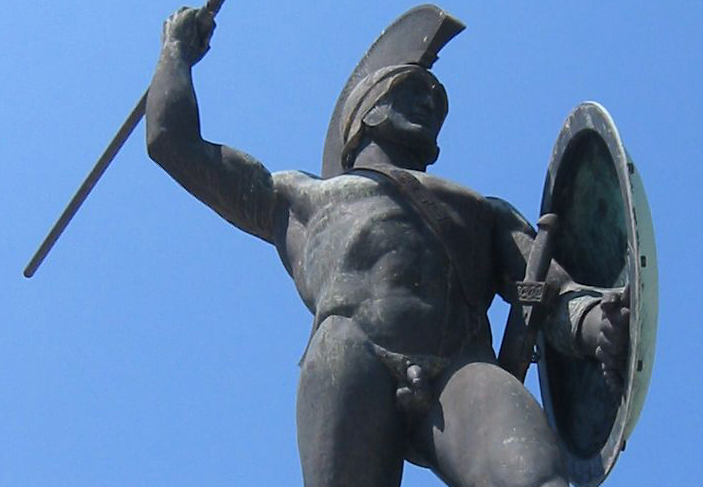



MANHOOD: A LEXICON
FIGHT IS THE FATHER OF ALL
The Ubiquity of Fighting Manhood
Fighting Manhood is the Father and Author of All
Fighting Manhood and Manly Love
Fighting Manhood and Manly Justice
Fighting Manhood and the Idea of Good


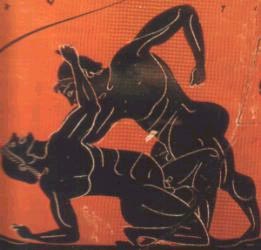
MANHOOD: A LEXICON
FIGHT IS THE FATHER OF ALL
Warriors and Warriordoms : The Ubiquity of Fighting Manhood
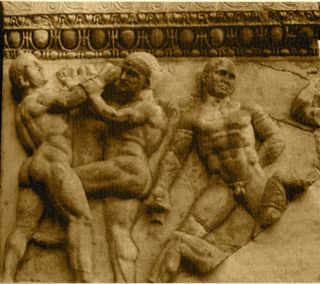
Imperial Roman Pankratiasts and Boxers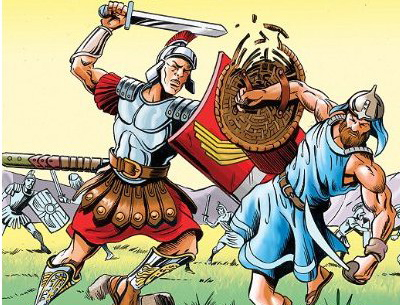
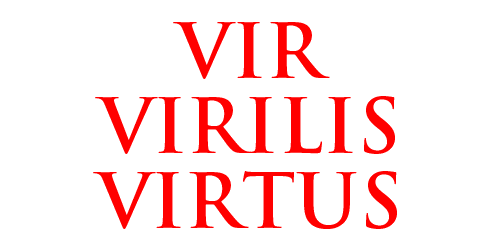
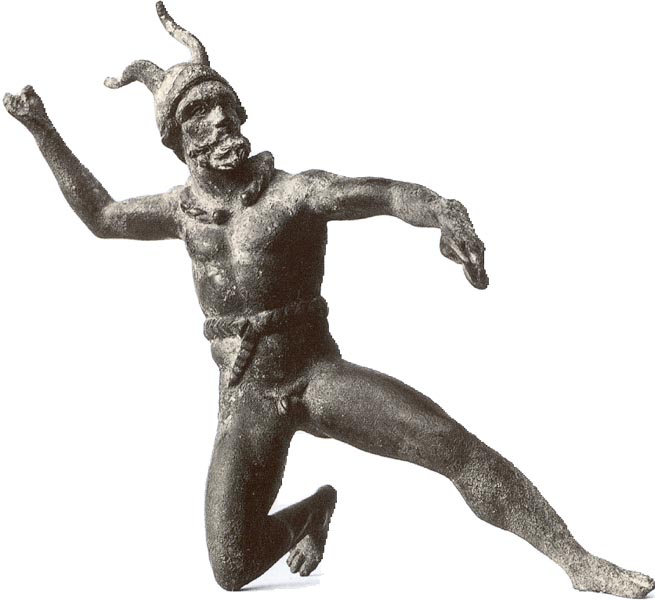
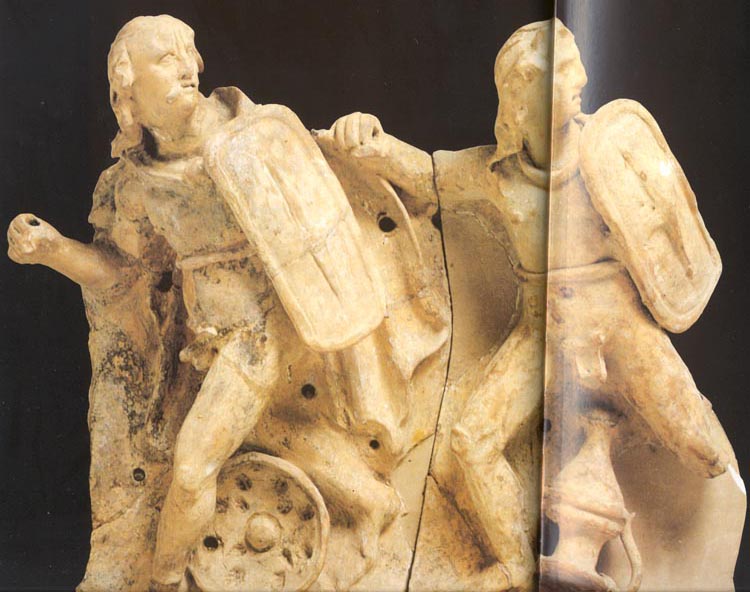
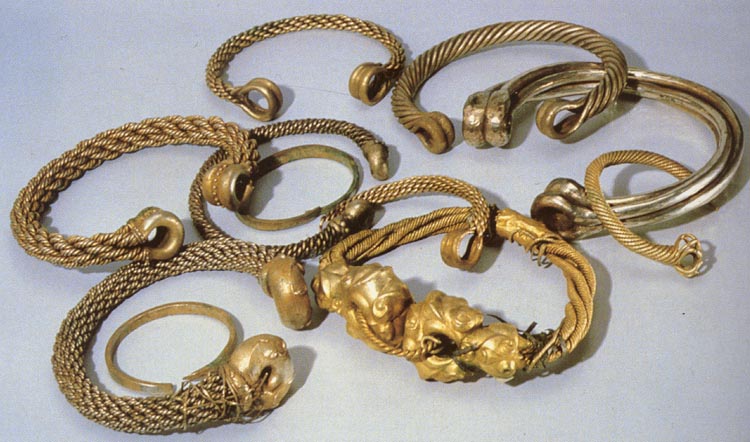
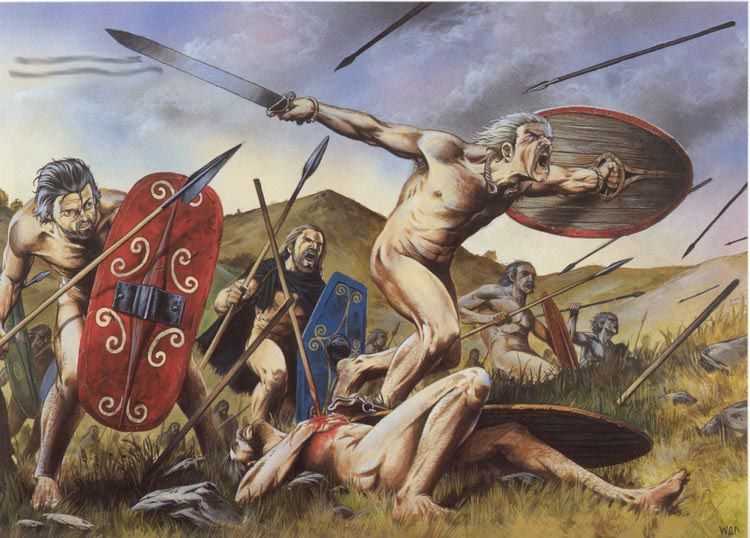

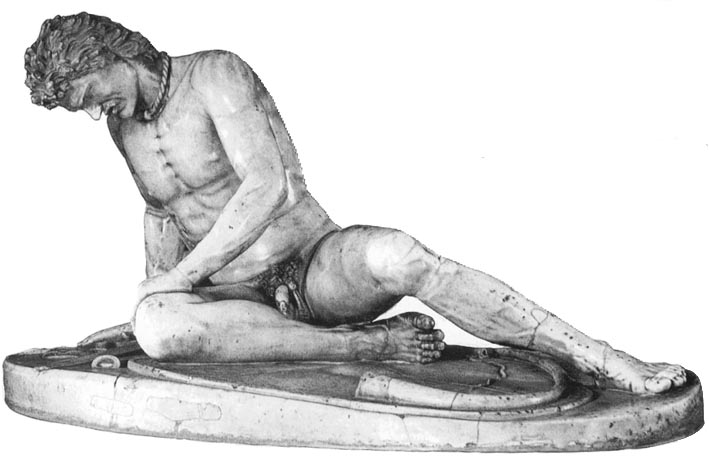
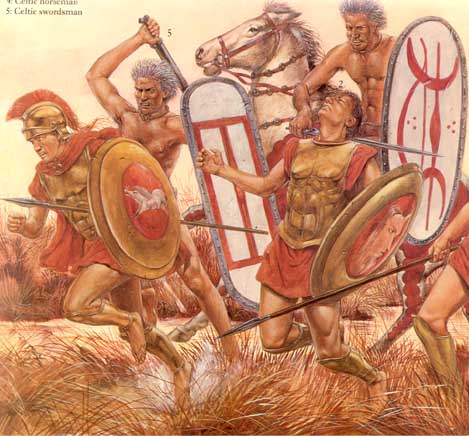
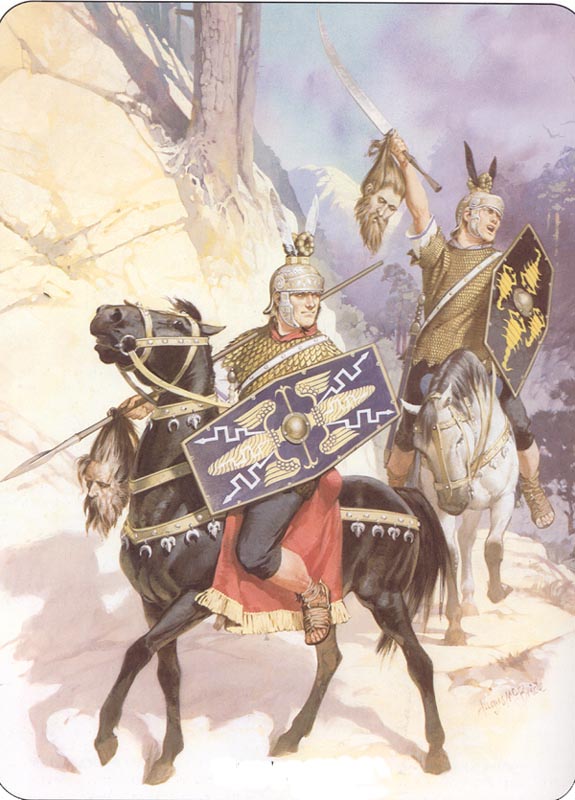



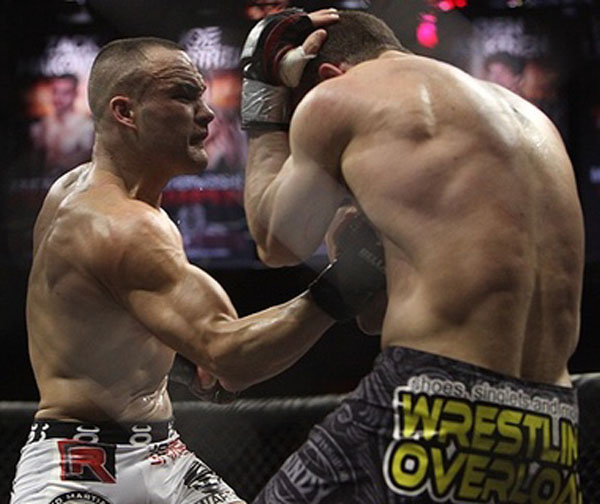
Youth in the Roman tradition is ferox, ferocious; and embodies furor, savage passion.
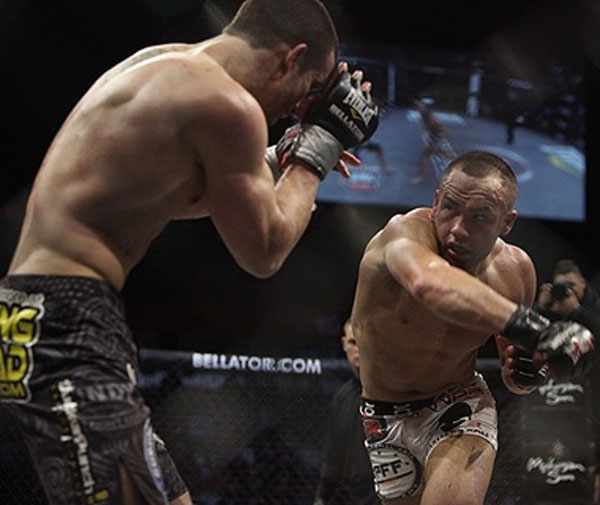
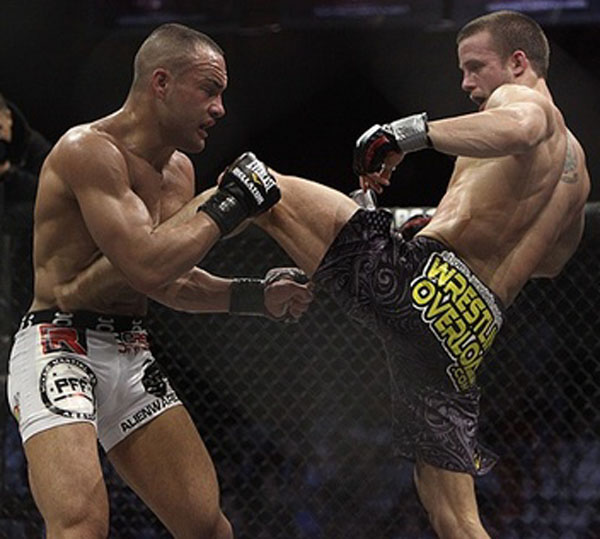
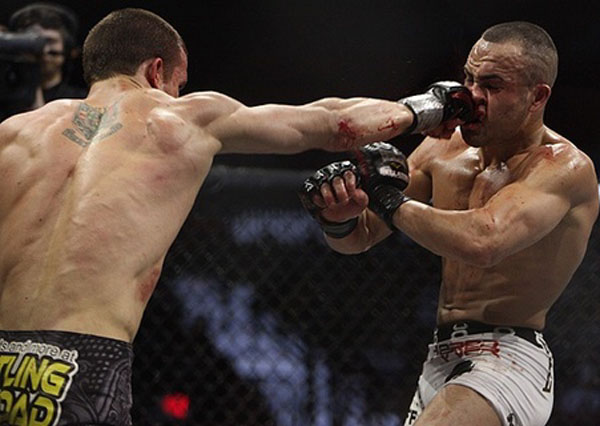
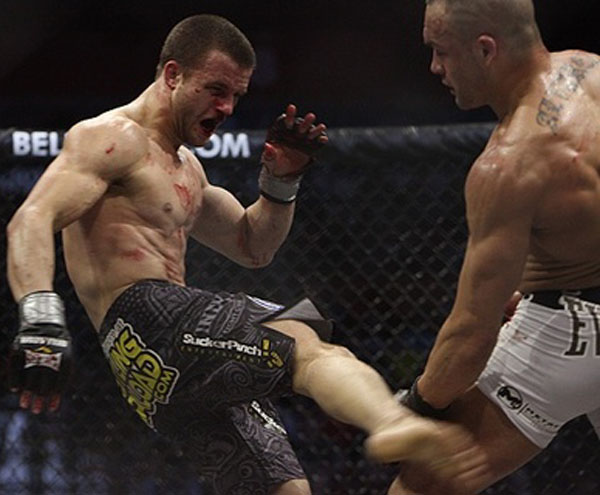
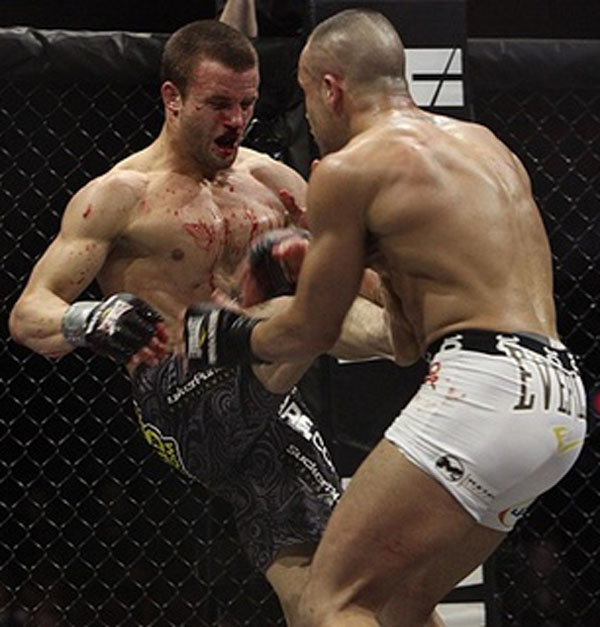
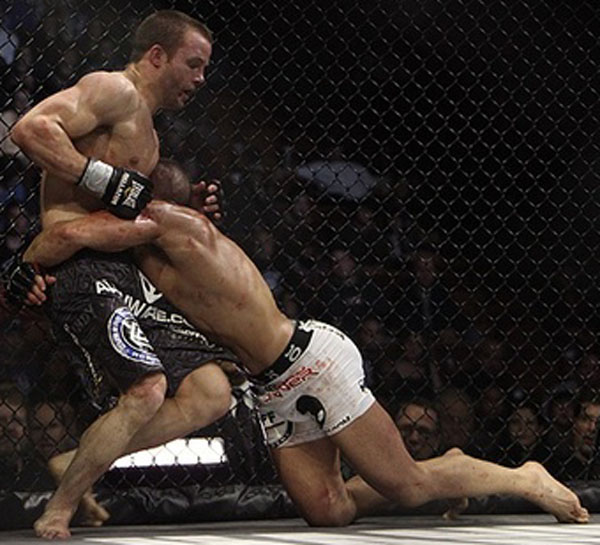
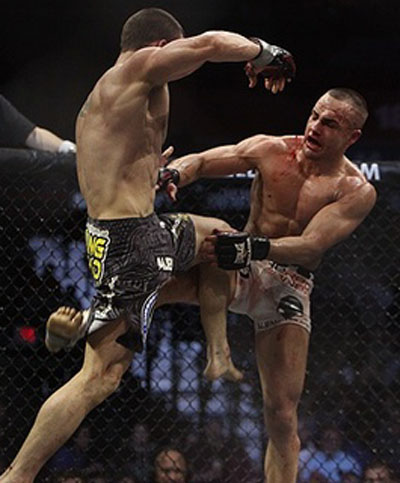
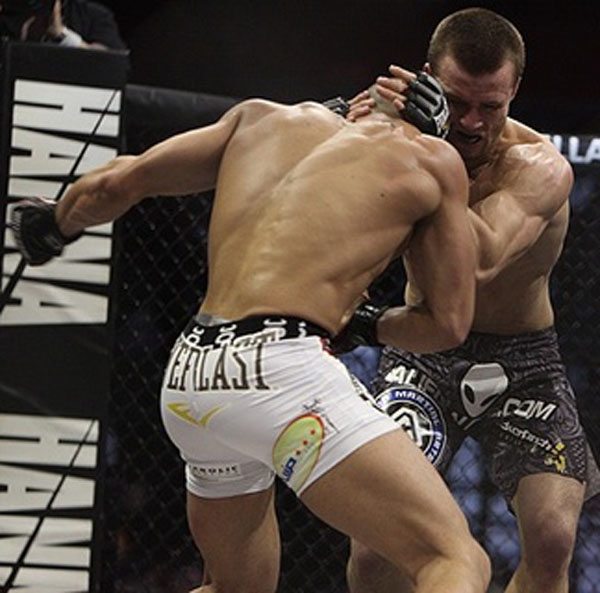
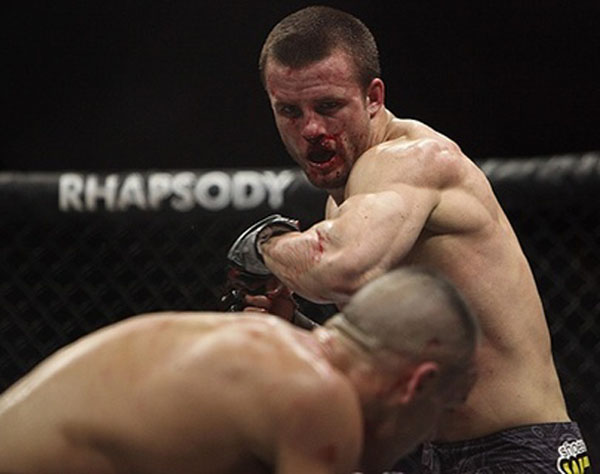
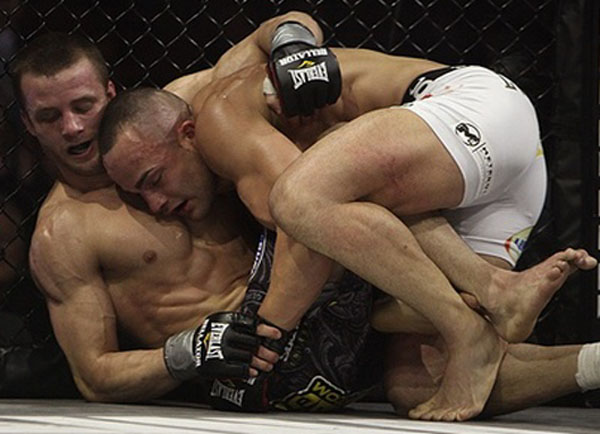
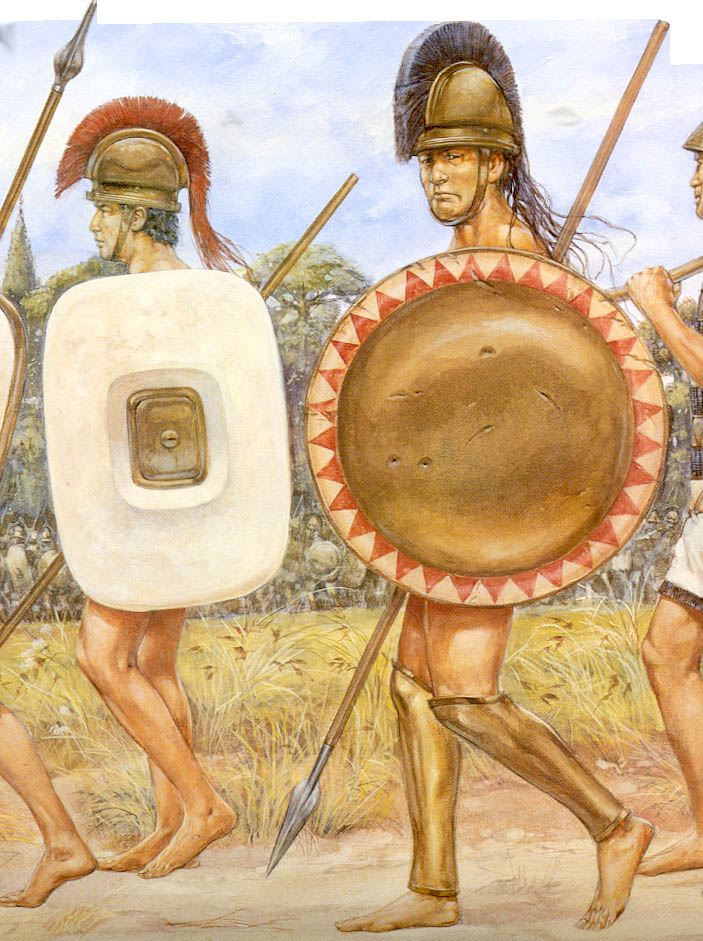

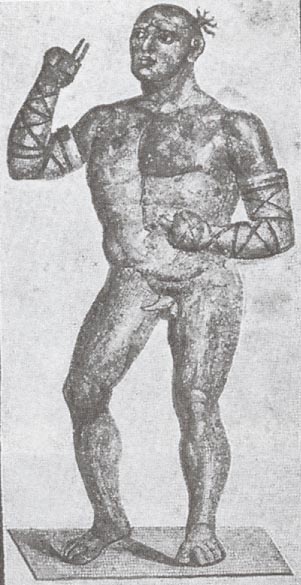
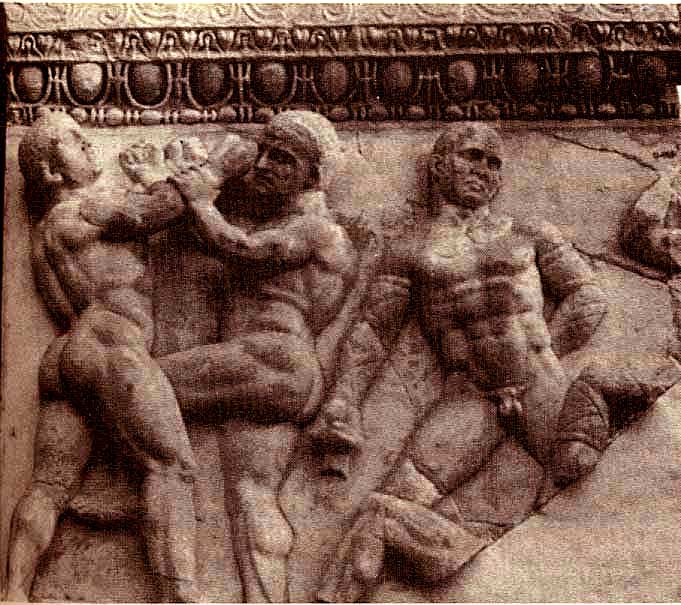
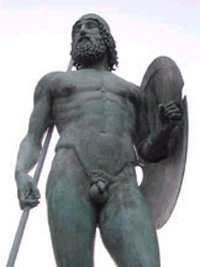
The main part of the discourse I delivered yesterday was concerned with the kind of constitution which seemed to me likely to prove the best, and the character of its citizens.
And in truth, Socrates, the polity you described was highly approved by us all.
Did we not begin by dividing off the class of land-workers in it, and all other crafts, from the class of its defenders?
Yes.
And when, in accordance with Nature, we had assigned to each citizen his one proper and peculiar occupation, we declared that those whose duty it is to fight in defence of all must act solely as Guardians of the State, in case anyone from without or any of those within should go about to molest it; and that they should judge leniently such as are under their authority and their natural friends, but show themselves stern in battle towards all the enemies they encounter.
Very true.
For we said, as I think, that the soul of the Guardians ought to be of a nature at once spirited and philosophic in a superlative degree, so that they might be able to treat their friends rightly with leniency and their foes with sternness.
Yes.
And what of their training? Did we not say that they were trained in gymnastic [nude training, much of it in Fight Sport], in music, and in all the studies proper for such men?
Certainly.
And it was said, I believe, that the men thus trained should never regard silver or gold or anything else as their own private property; but as auxiliaries, who in return for their guard-work receive from those whom they protect such a moderate wage as suffices temperate men, they should spend their wage in common and live together in fellowship one with another, devoting themselves unceasingly to virtue [areté -- Manhood], but keeping free from all other pursuits.
[S]uppose, for instance, that on seeing beautiful creatures, whether
works of art or actually alive but in repose, a man should be moved
with desire to behold them in motion and vigorously engaged in some
such exercise as seemed suitable to their physique; well, that is the
very feeling I have regarding the State we have described. Gladly
would I listen to anyone who should depict in words our State
contending against others in those struggles which States wage; in how
proper a spirit it enters upon war, and how in its warring it exhibits
qualities such as befit its education and training in its dealings
with each several State whether in respect of military actions or in
respect of verbal negotiations.
vigorously engaged in some such exercise as seemed suitable to their physique
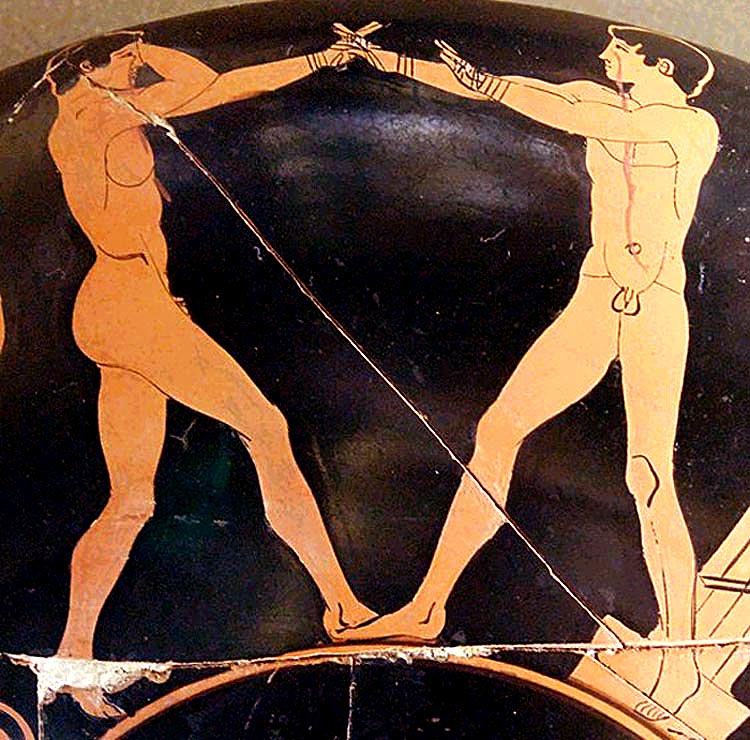
against others in those struggles which States wage . . . war and warring
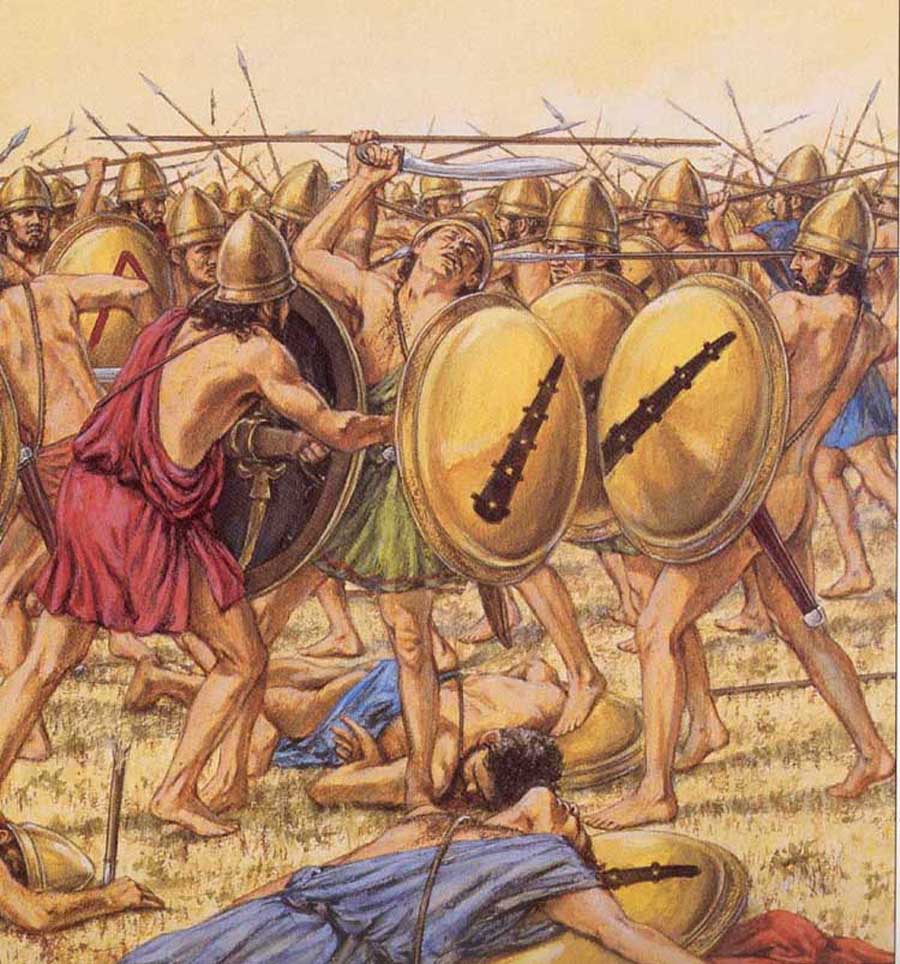
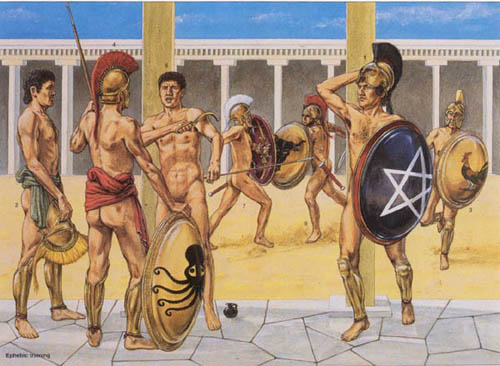
Ephebes -- Plato's "Athletes of War" -- train at the Palaistra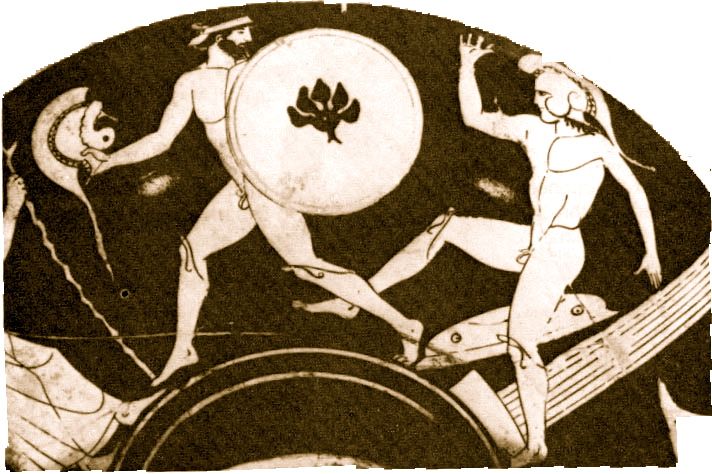
[The Spartan admiral] Lysander, after the three thousand Athenians whom he had taken prisoner [at Aegospotami] had been condemned to death by the special council of [Spartan] allies, calling Philocles, the [Athenian] general, asked him what punishment he thought should be visited upon him for having given his fellow-citizens such counsel regarding Greeks.
the whole structure of honor in warfare had been cast down.
I am come, Electra, to thy rustic court,






MANHOOD: A LEXICON
FIGHT IS THE FATHER OF ALL
Father and King : Fighting Manhood is the Father and Author of All
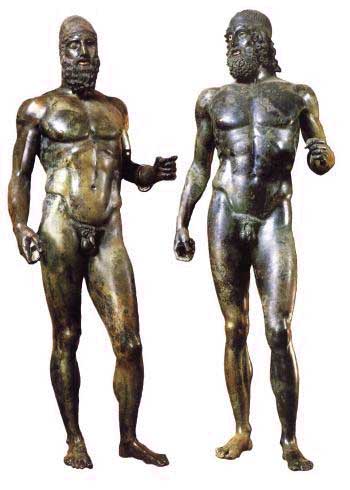
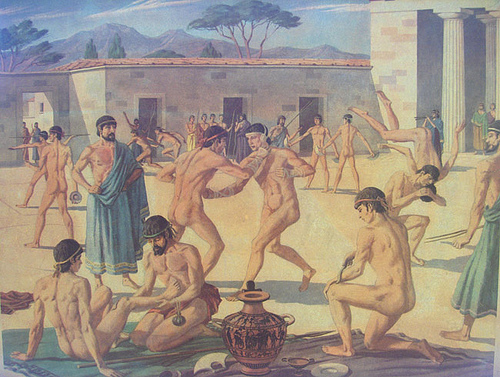
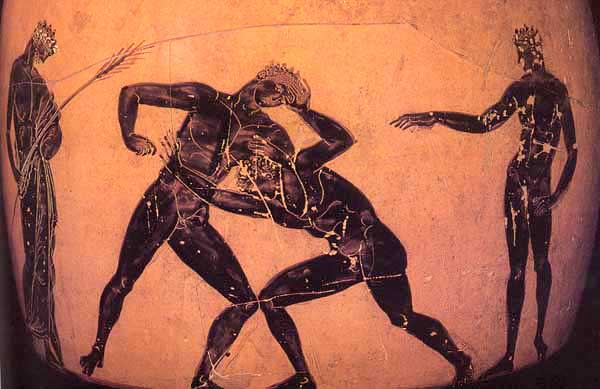
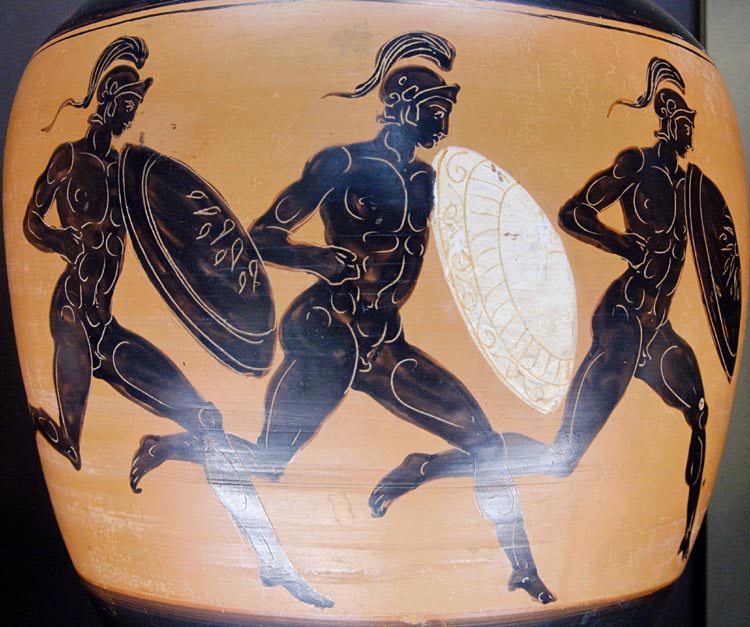
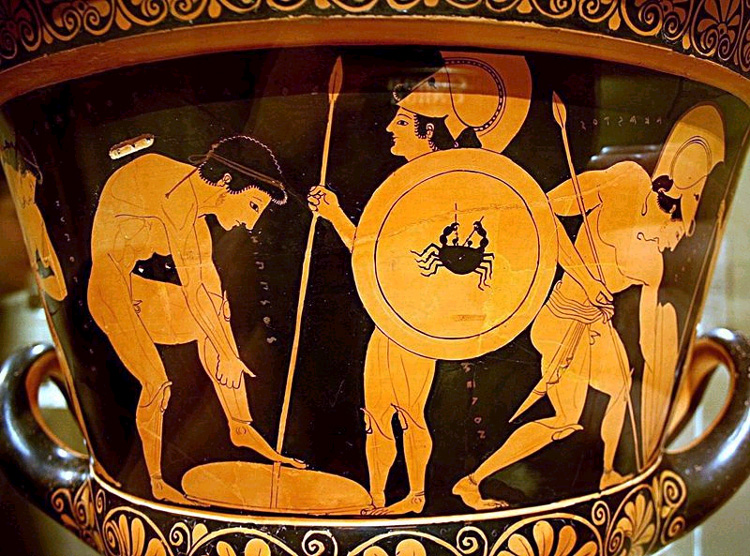
Indeed, to some historians -- notably the Swiss Jakob Burkhardt (1818 - 1897) -- this "agonal drive" was the key to understanding an entire mentality. In his unequivocal words, "All Greek life was animated by this principle."

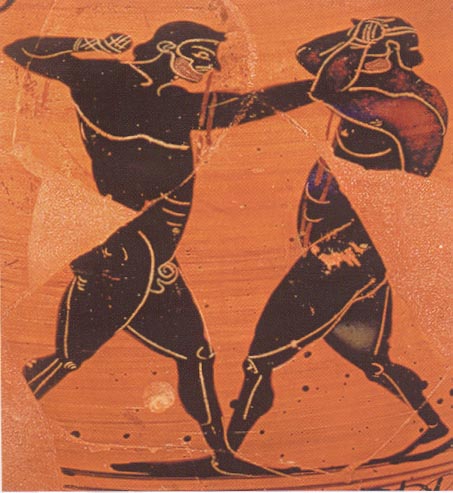



It needs be aware of the war [πολεμος = polemos = battle, fight, war] being common and justice [δικη = dike] strife [ερις = eris] and everything becoming in accordance with strife and necessity.
It needs be aware of the fight [polemos] being common and justice [dike] strife [eris] and everything becoming in accordance with strife and necessity.
Men Stuggling to Perfect Their Manhood.

From the same root [ARES] come areté, ari-, areion [better], aristos [best], the first notion of goodness being that of manhood, bravery in war; cf. Lat. virtus.
Now to discover the Maker and Father of this Universe [All] were a task indeed; and having discovered Him, to declare Him unto all men were a thing impossible.


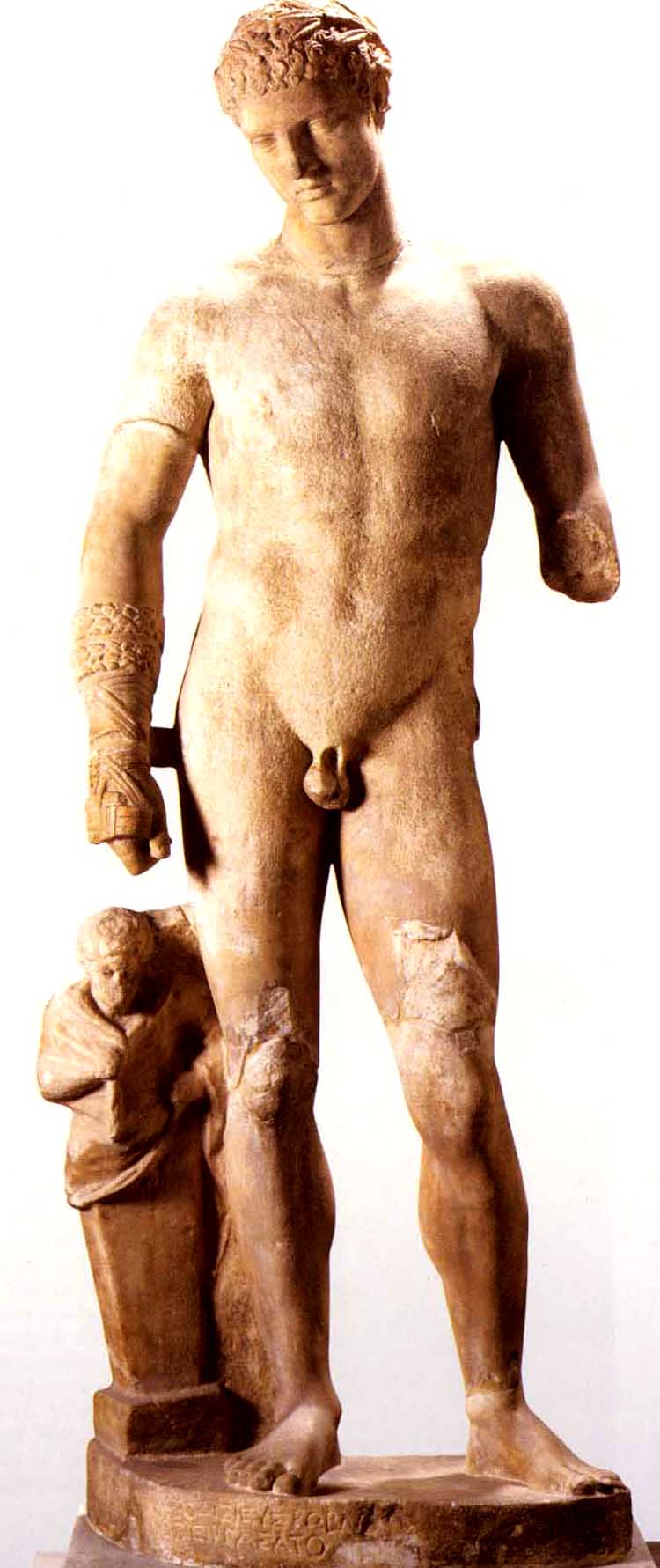




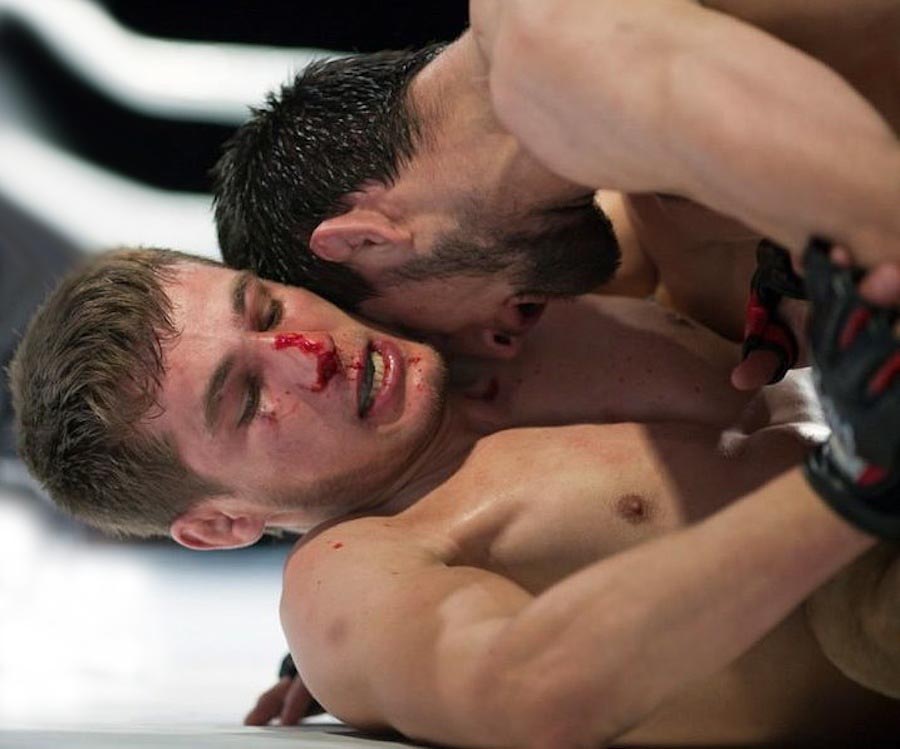

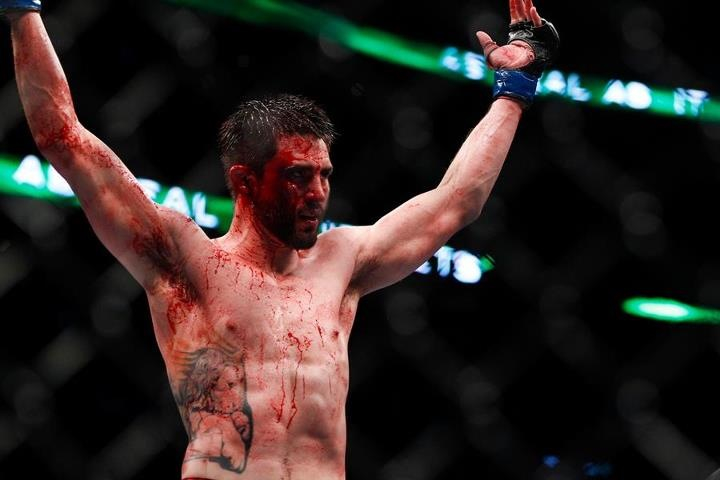


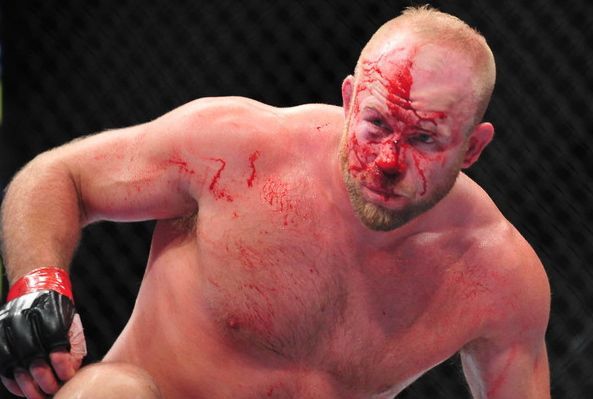

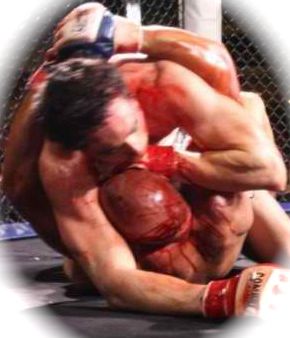


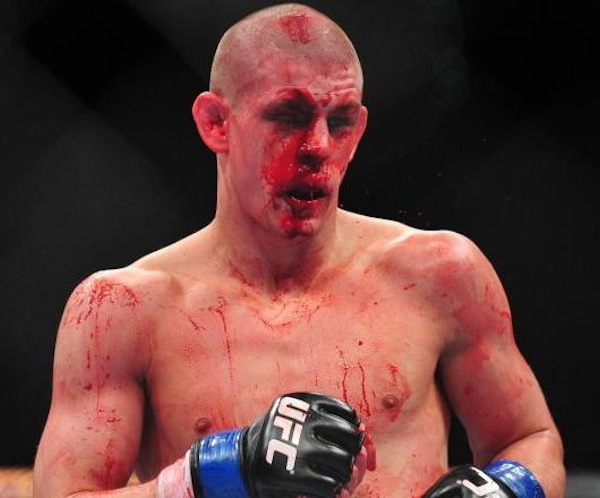

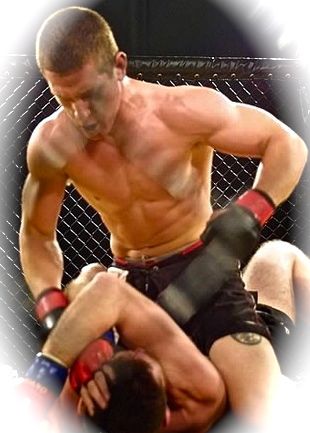



the sum of all the corporeal or mental excellences of man


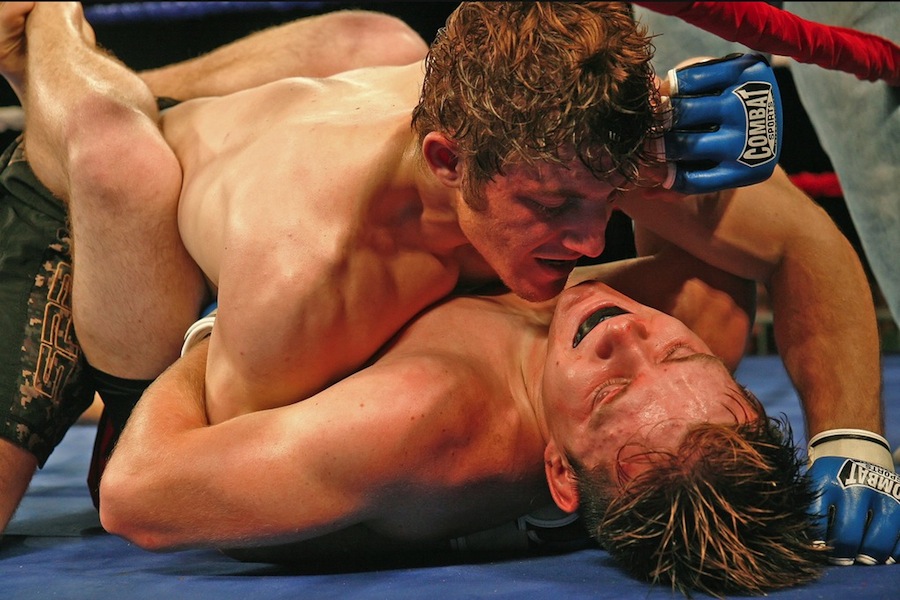


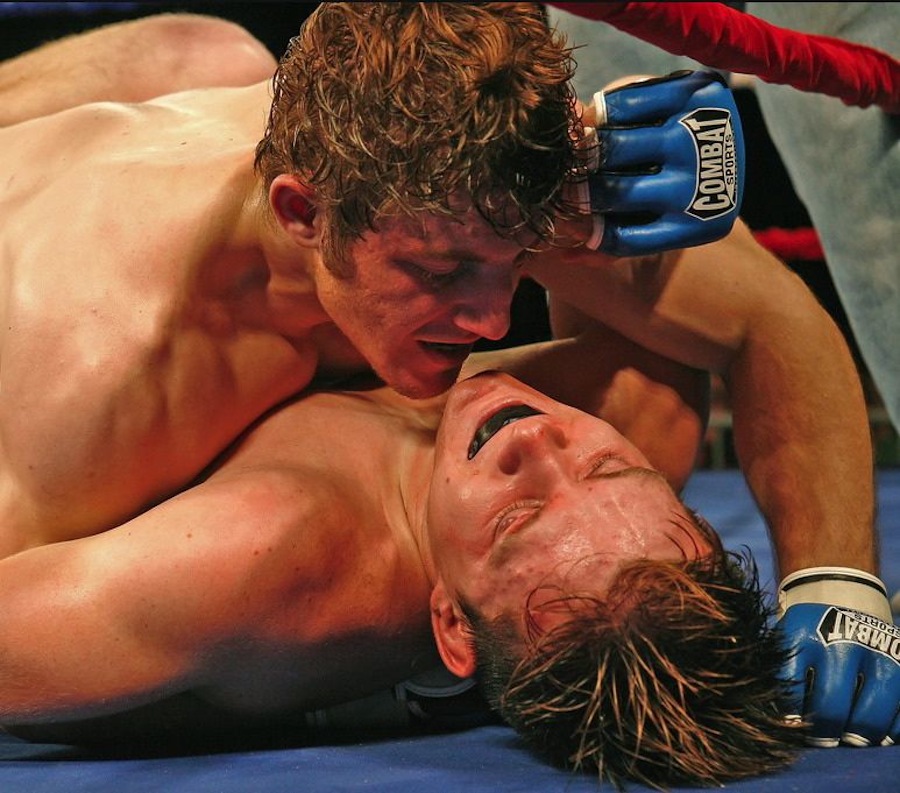

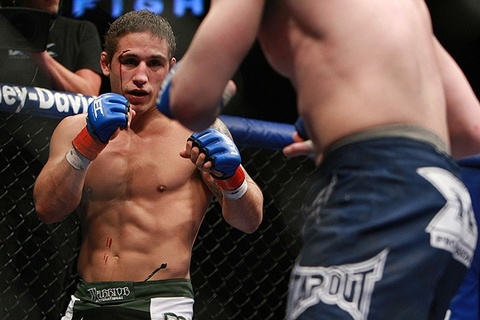

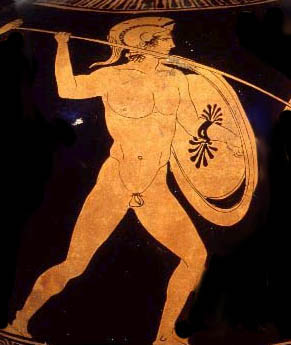


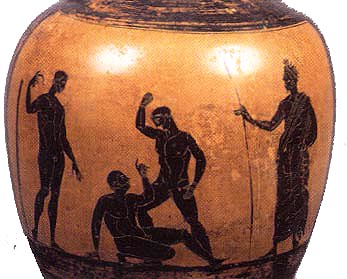
[I]t is not long since the Greeks thought it disgraceful and ridiculous, as most of the barbarians do now, for men to be seen naked [gymnos]. And when the practice of athletics [gymnasion = nude athletics] began, first with the Cretans and then with the Lacedaemonians [Spartans], it was open to the wits of that time to make fun of these practices, don't you think so?
So:
[I]t is not long since the Greeks
thought it disgraceful and ridiculous, as most of the barbarians do
now, for men to be seen naked. And when the practice of athletics [gymnasion = nude athletics]
began, first with the Cretans and then with the Lacedaemonians
[Spartans], it was open to the wits of that time to make fun of these
practices, don't you think so?
The younger men responded quickly, and more eagerly than he had expected: as a group they stripped to show their mettle, as if their clothes represented a way of life which they were all discarding in the cause of liberty.

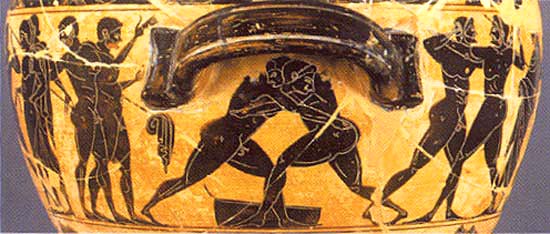
αριστος Αρης

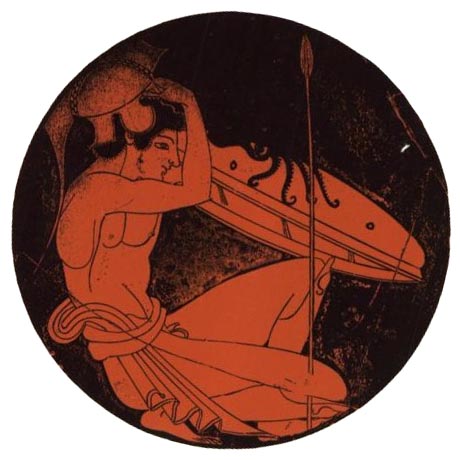
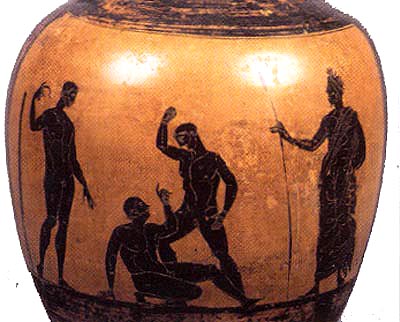
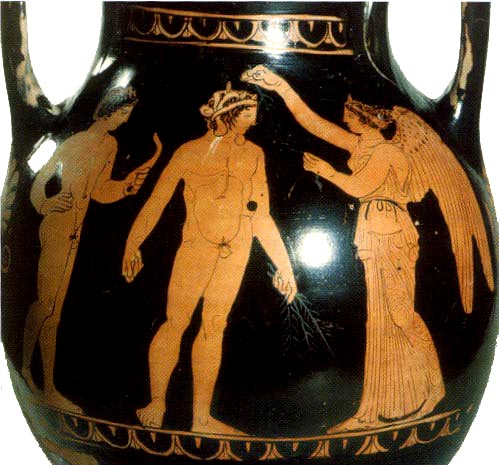
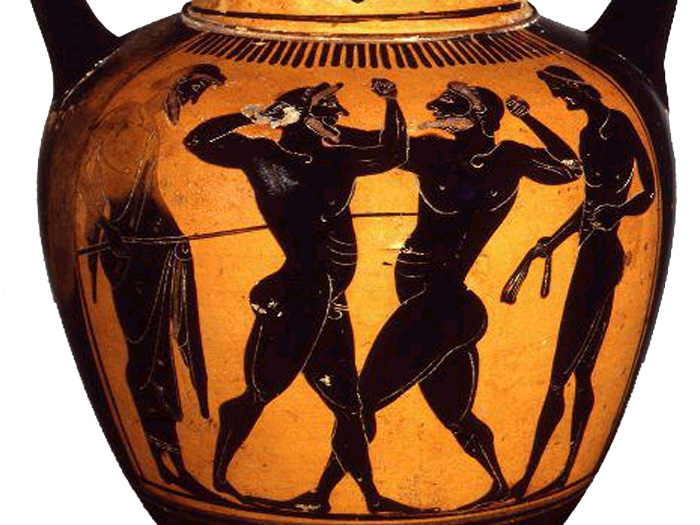
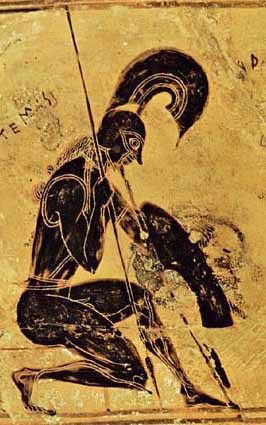

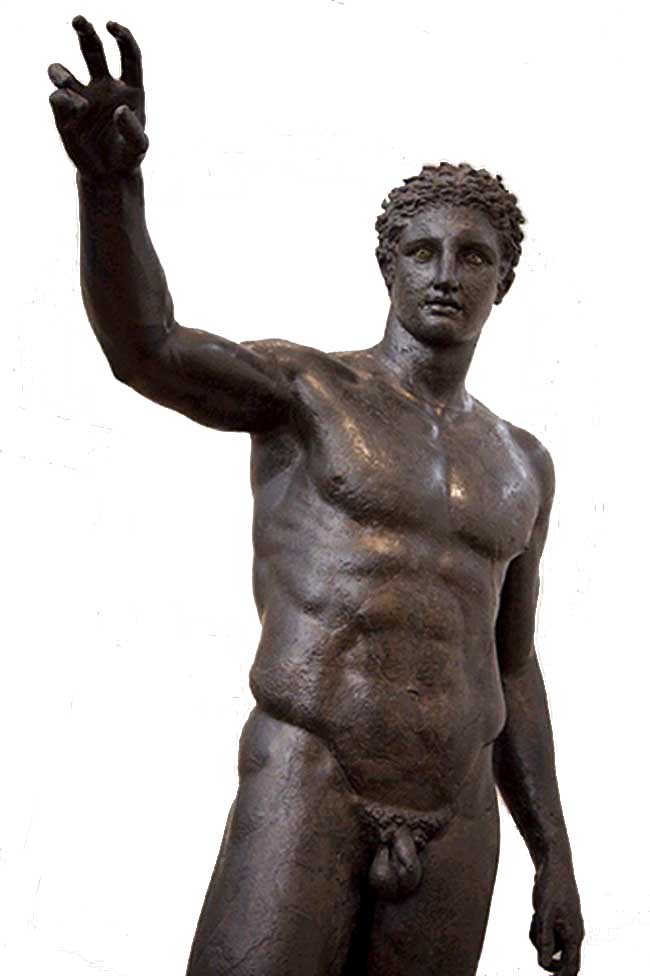

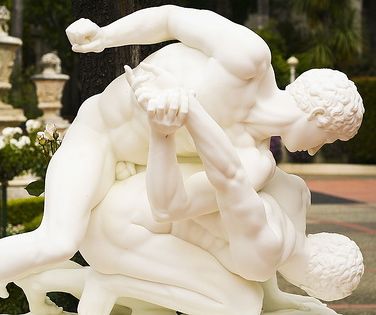
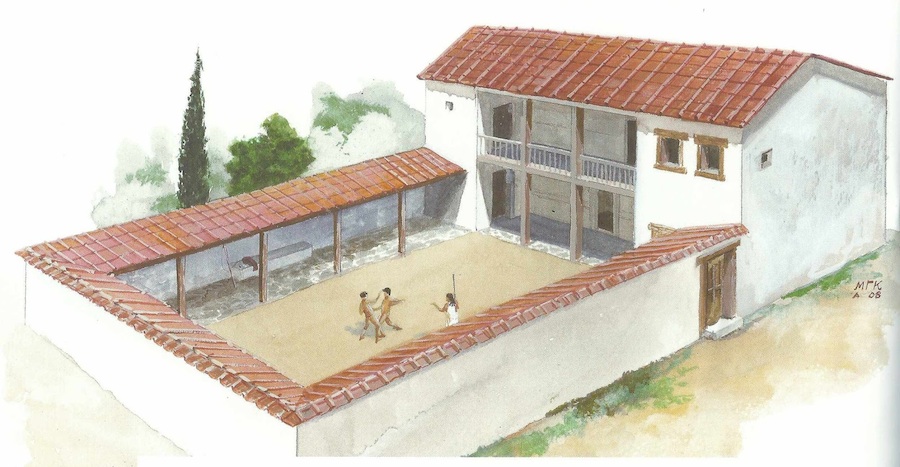
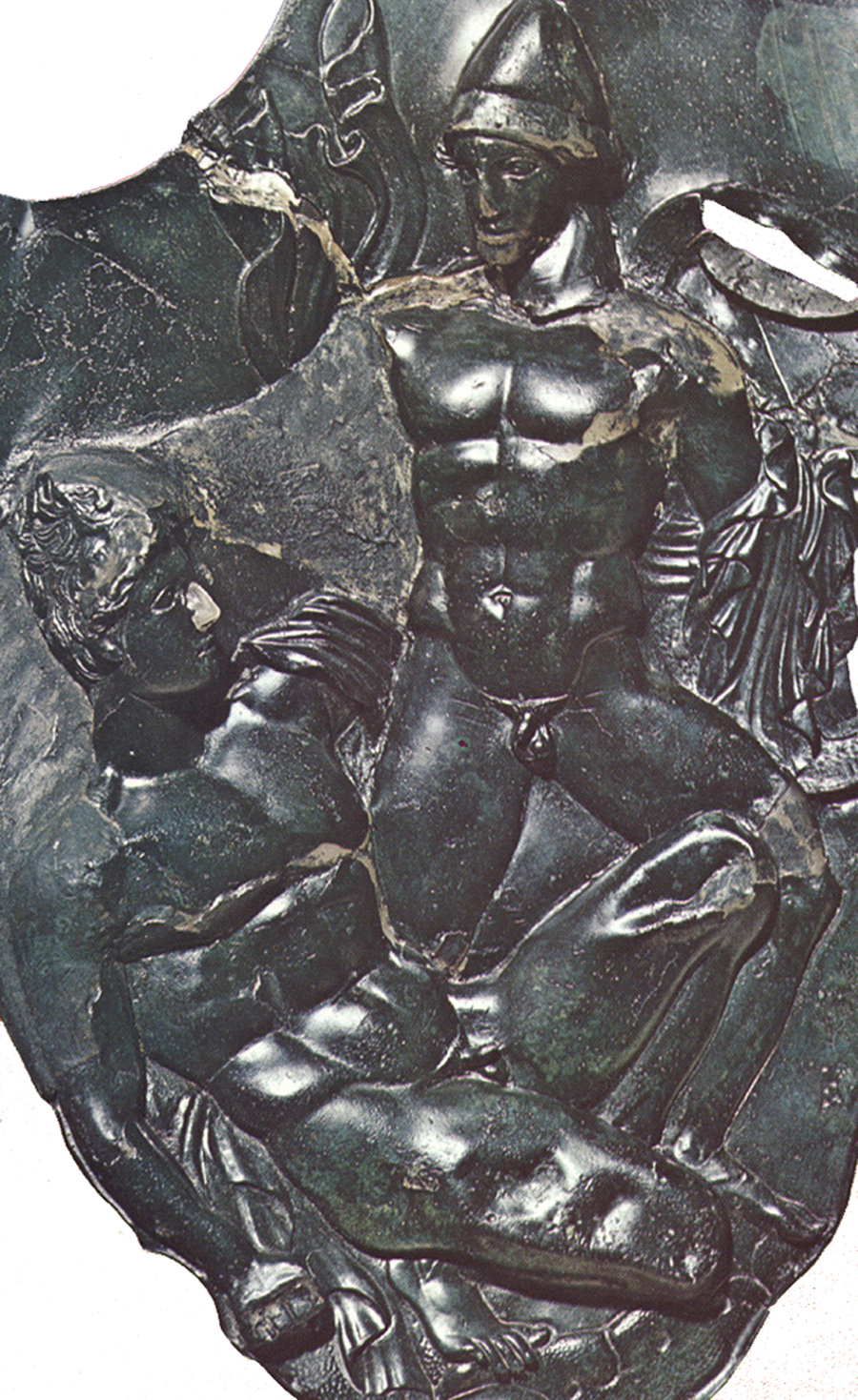
and this made it plain that he talks idly who deems anything else
ridiculous but evil,
and who tries to raise a laugh by looking to any other pattern of
absurdity than that of folly and wrong or sets up any other
standard of the beautiful [to kalon] as a mark for his seriousness than the
good [to agathon].
It's not long since the Greeks thought it disgraceful and ridiculous, as most of the barbarians do now, for men to be seen naked. And when the practice of nude male athletics began, first with the Cretans and then with the Spartans, it was open to the wits of that time to make fun of these practices.

Ares, then, if you like, would be named for his virility [to arren] and courage [to andreion = courage, Manliness, Manhood], or for his hard and unbending nature, which is called arratos; so Ares would be in every way a fitting name for the God of War.
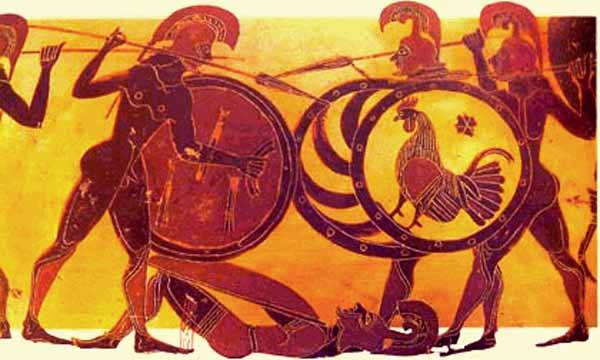
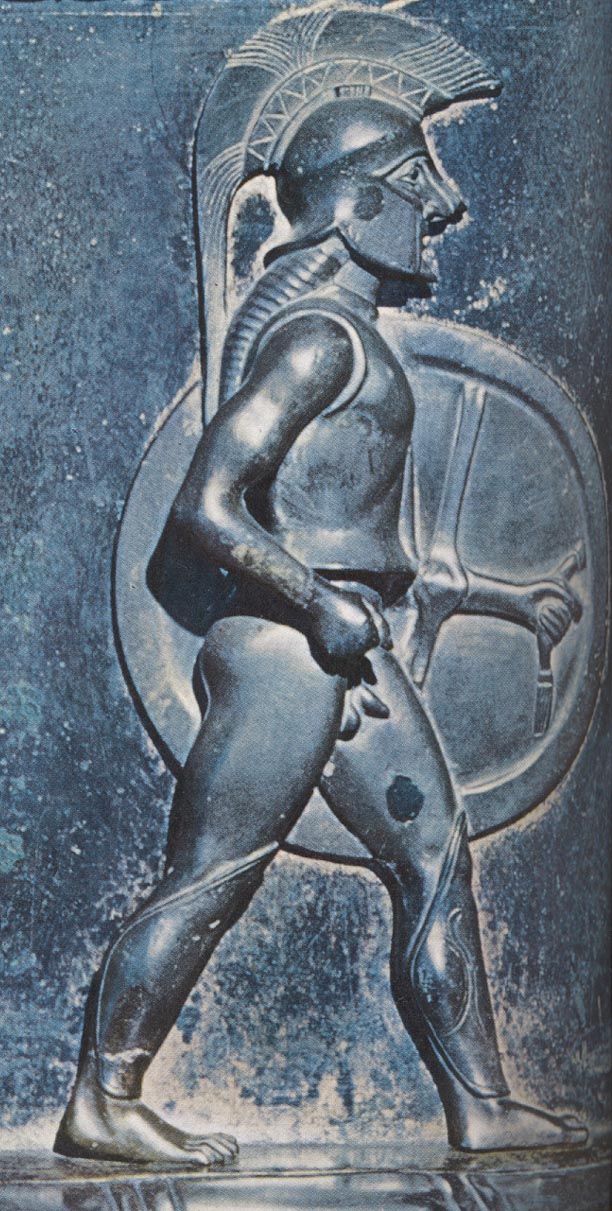














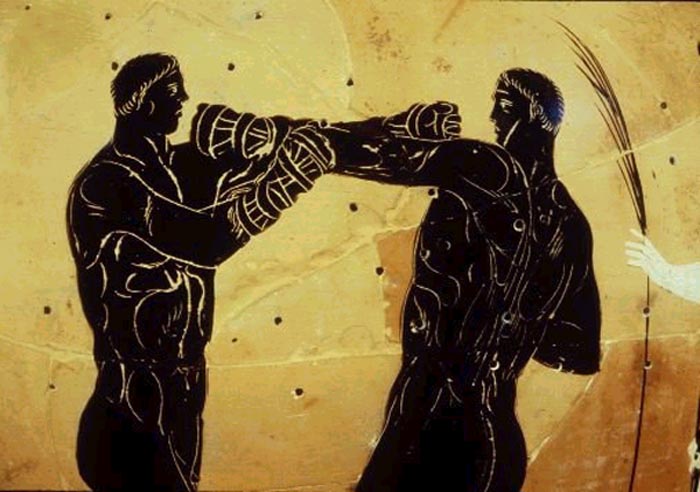






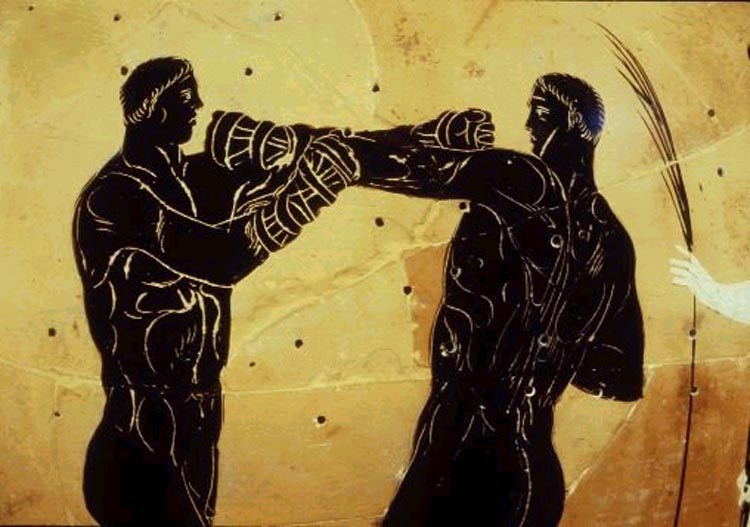








[I]n Lysis, ... Plato coined the new concept of 'the Primal Love' (πρωτον φιλον -- proton philon), and maintained it was to be assumed as the source and origin of all friendship between Men. It is because of our general love for this ultimate object of desire that we love any individual. That is what we are trying to attain or realize in every kind of association with other Men, whatever its character may be. ... The other Socratic dialogues presuppose the Idea of Good [the Supreme Good, the Highest Good] as a fixed point of reference; and so too, in the discussion of the nature of friendship, it is assumed to be the absolute and final standard. For, although Plato does not say so expressly, the understanding reader will realize that 'the primal love', for whose sake we love all other things, implies the highest value, Good in itself.




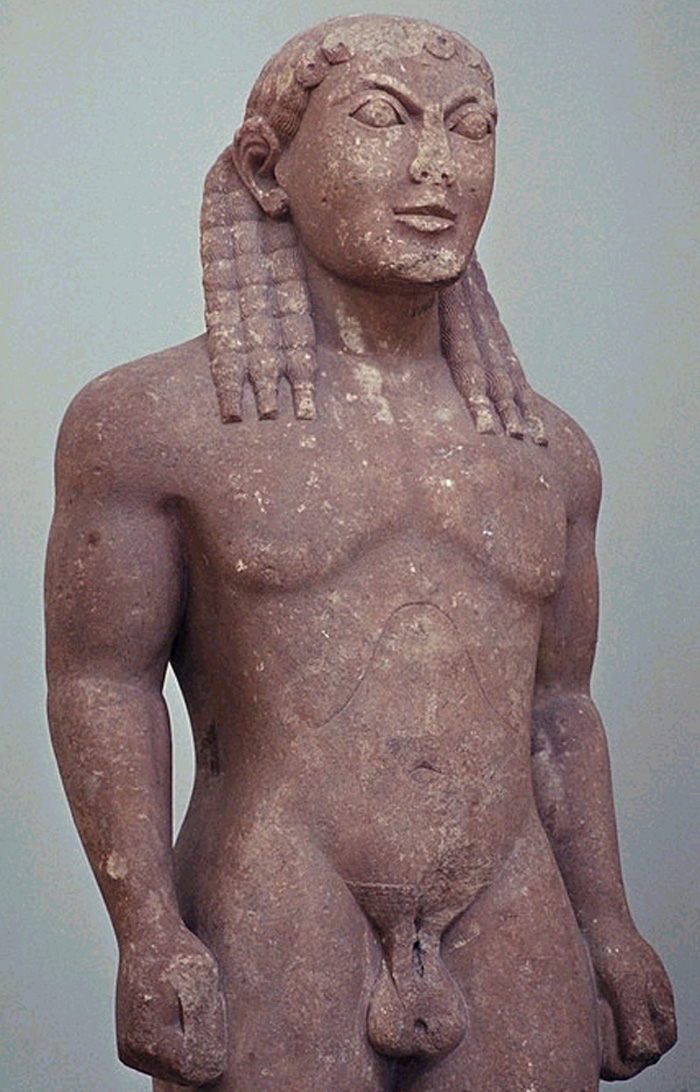












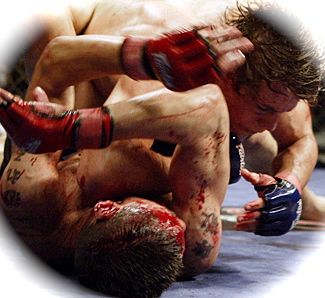




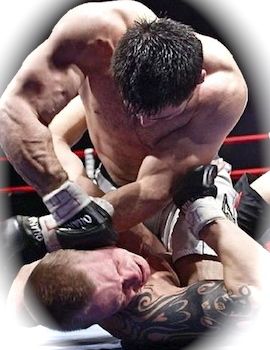




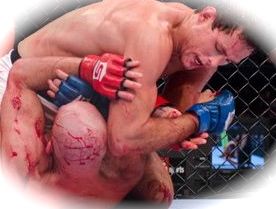

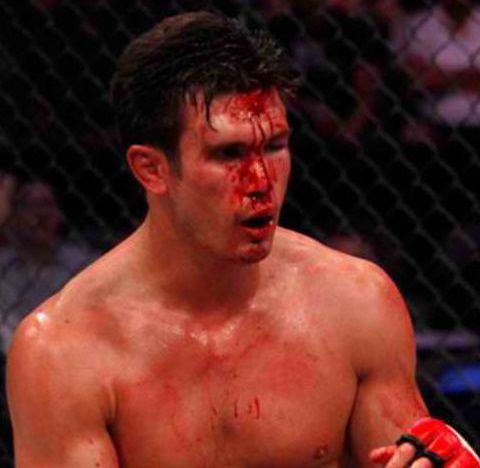

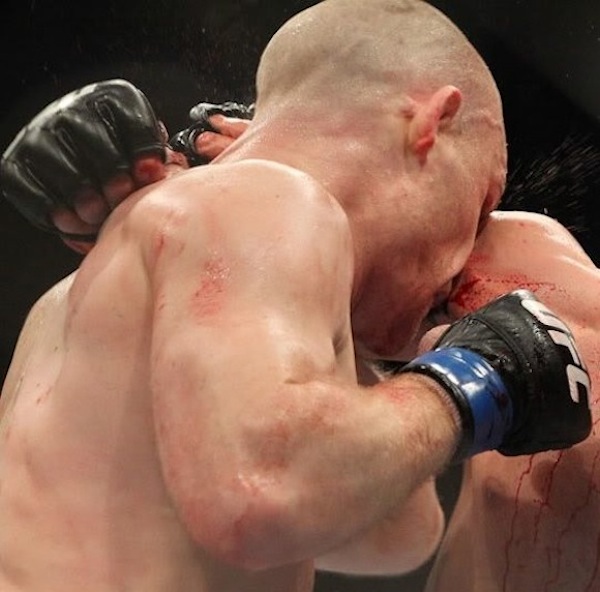



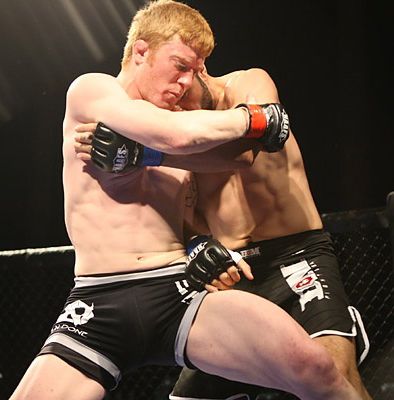
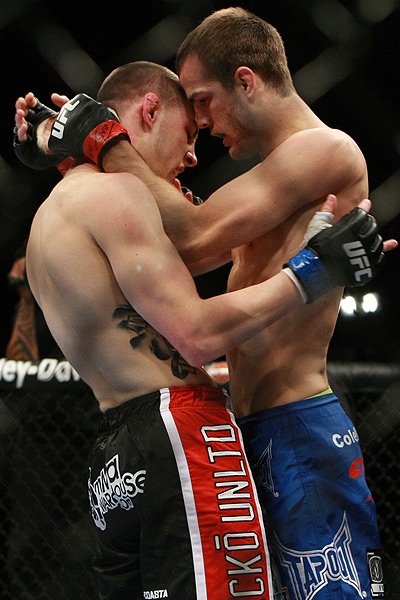
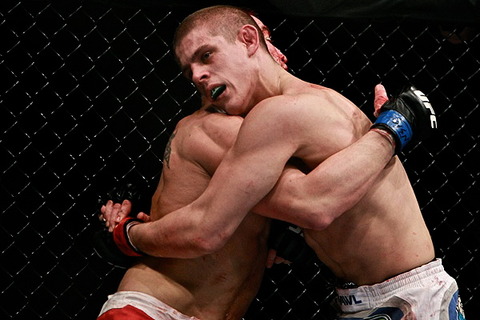
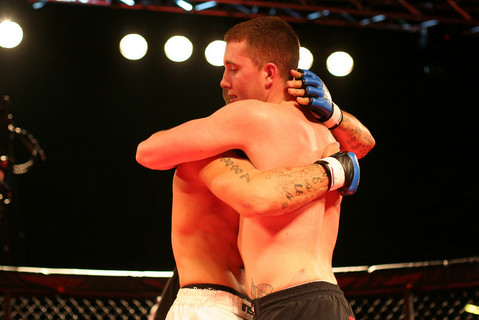
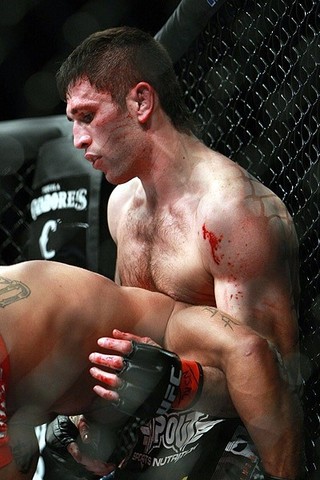
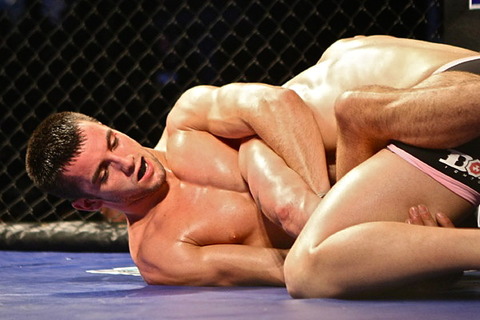
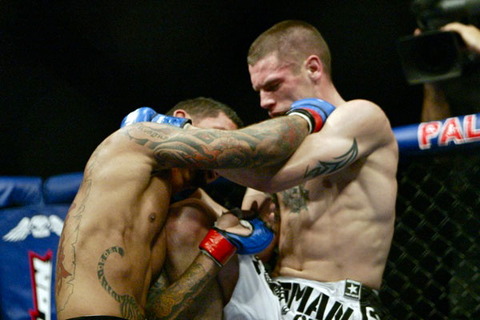
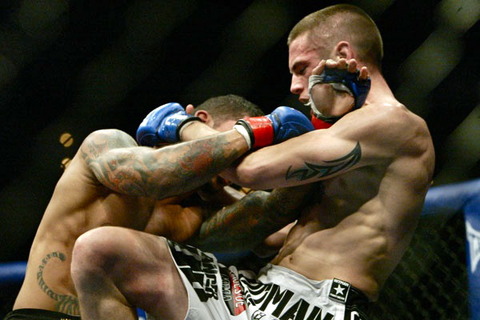
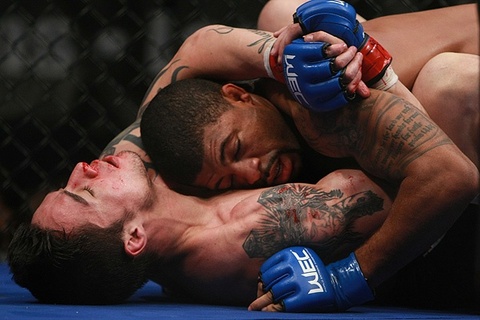
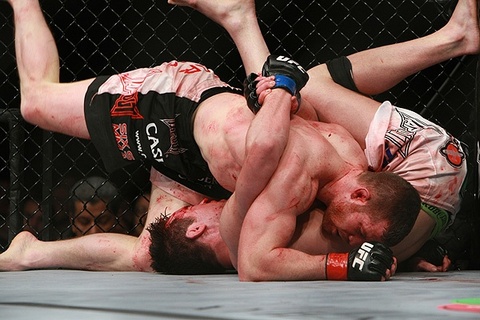
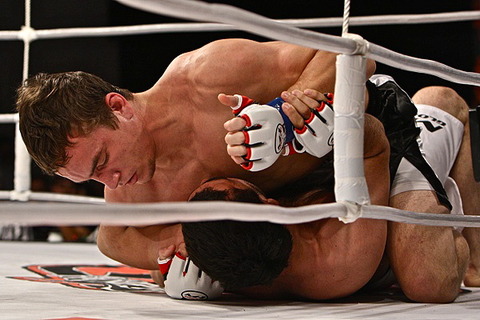
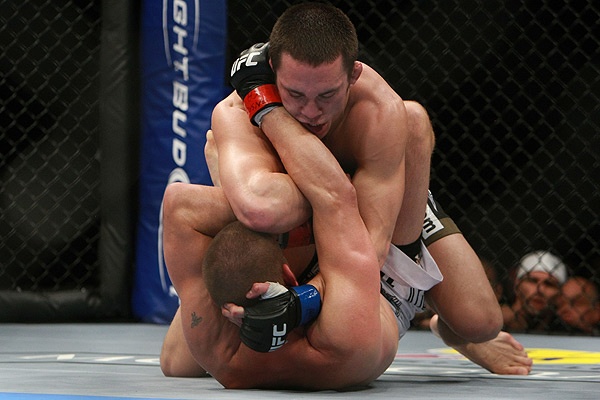
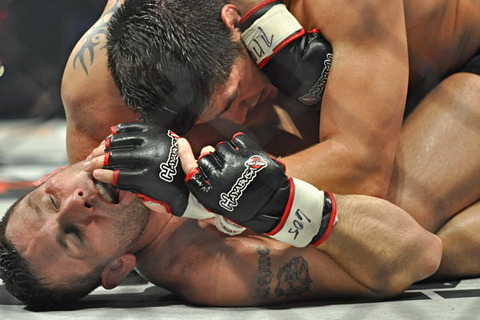
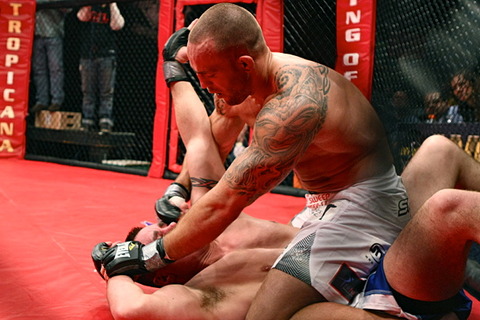
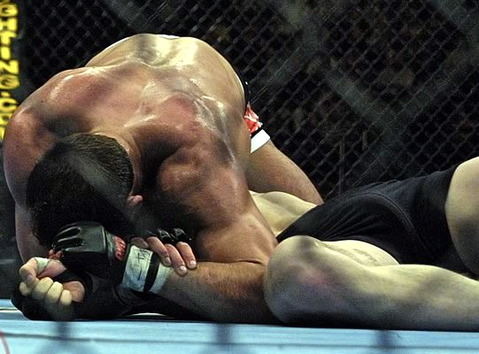
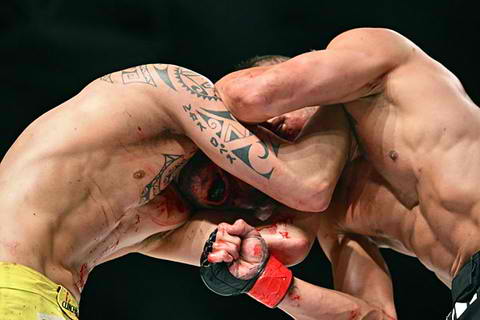







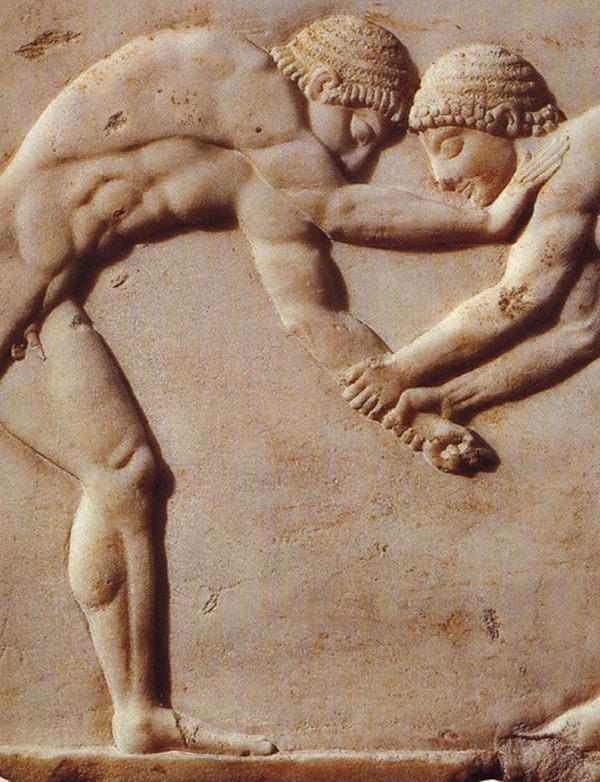
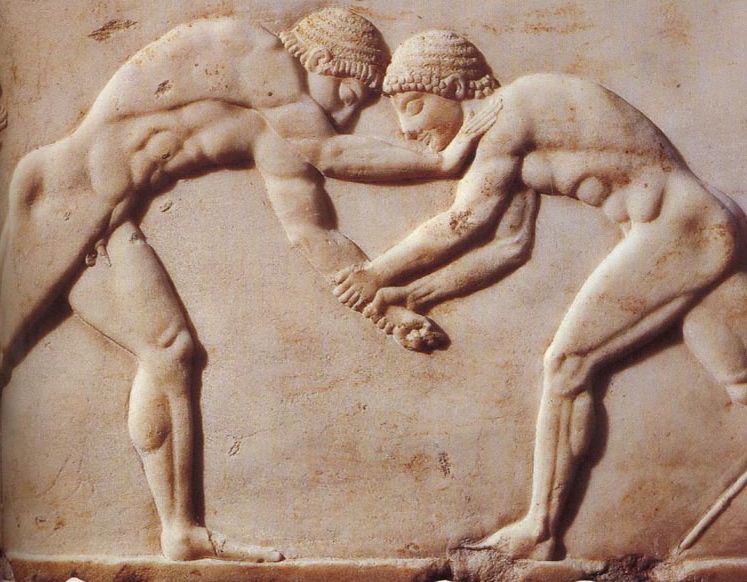






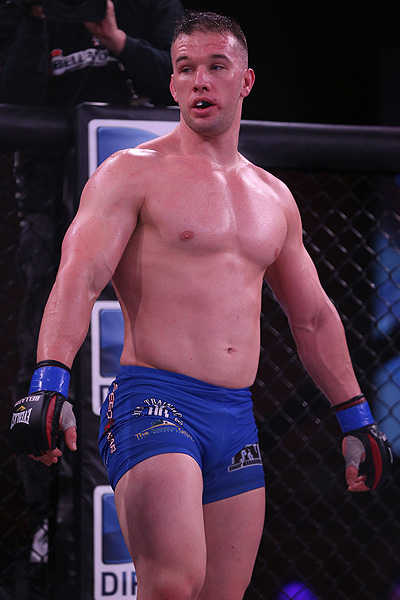
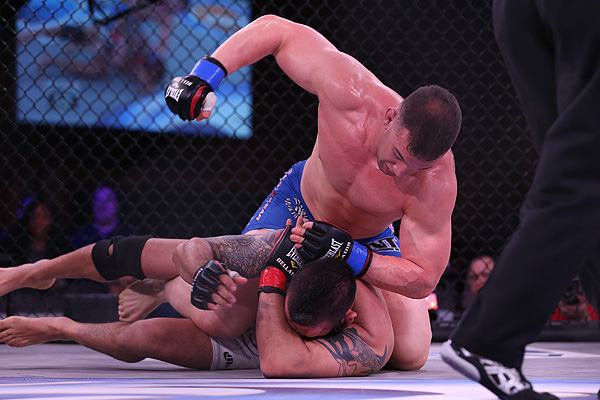
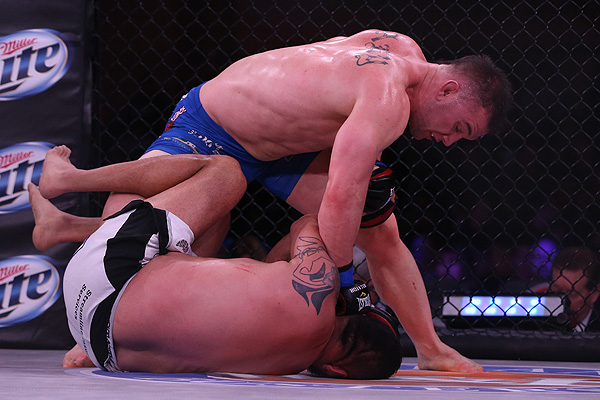
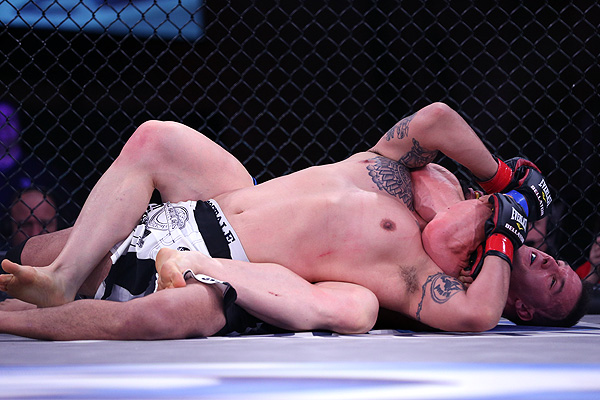


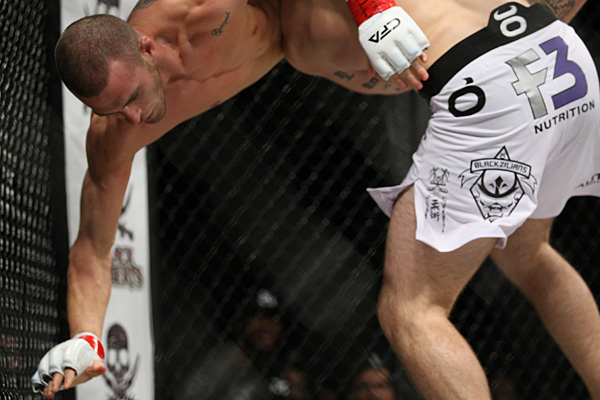
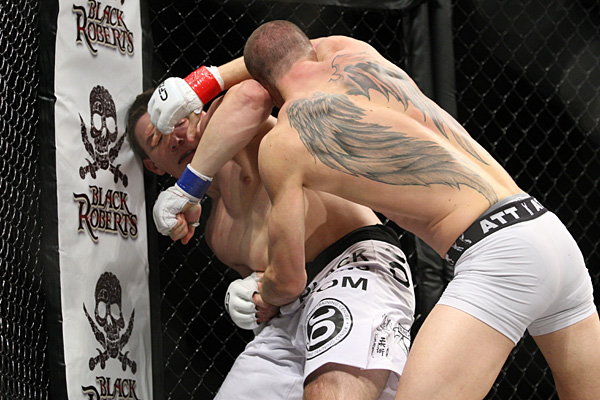
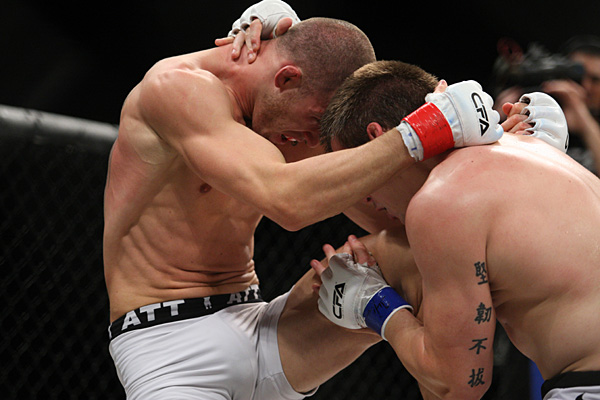
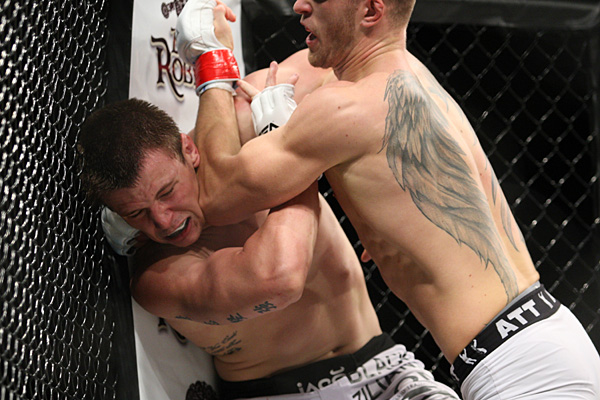
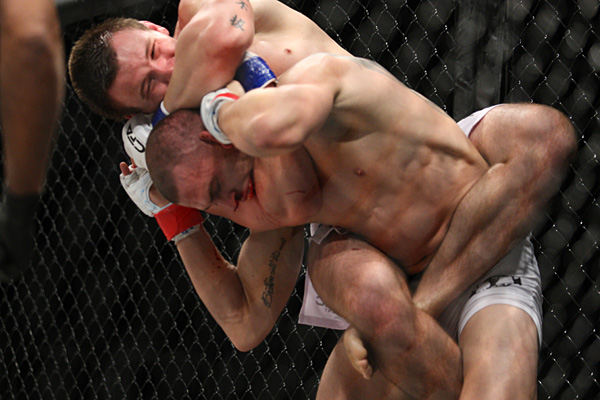
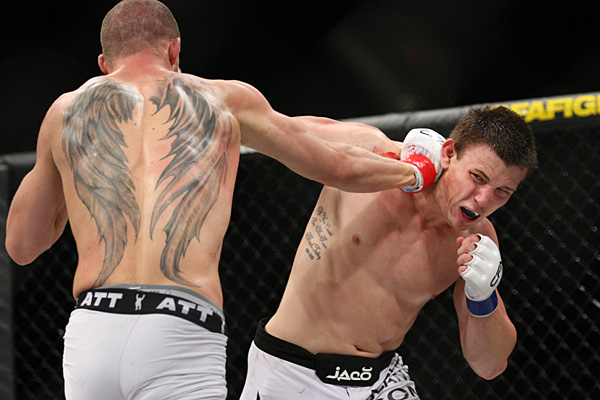
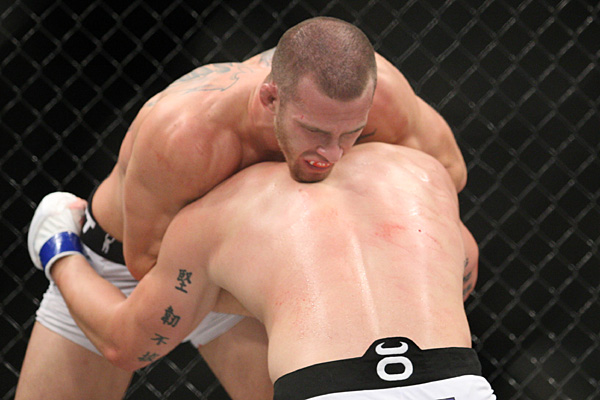
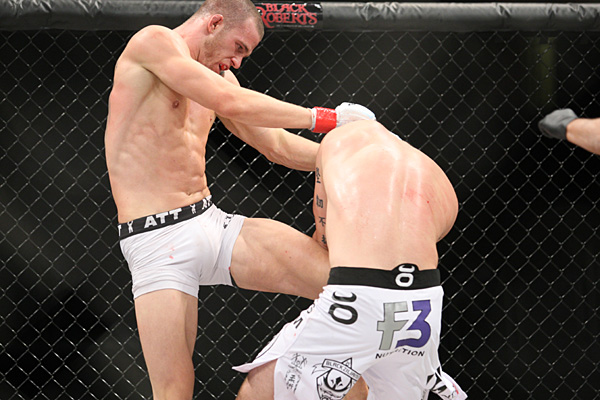
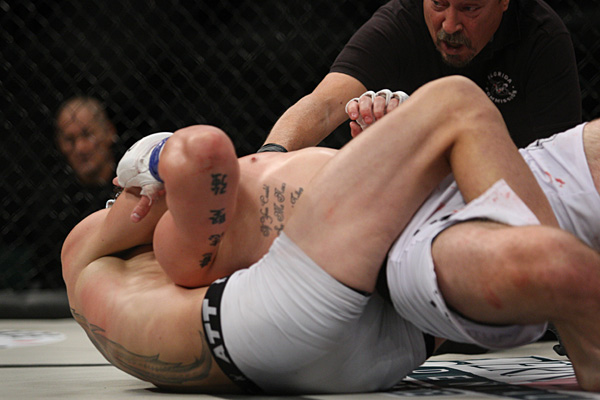

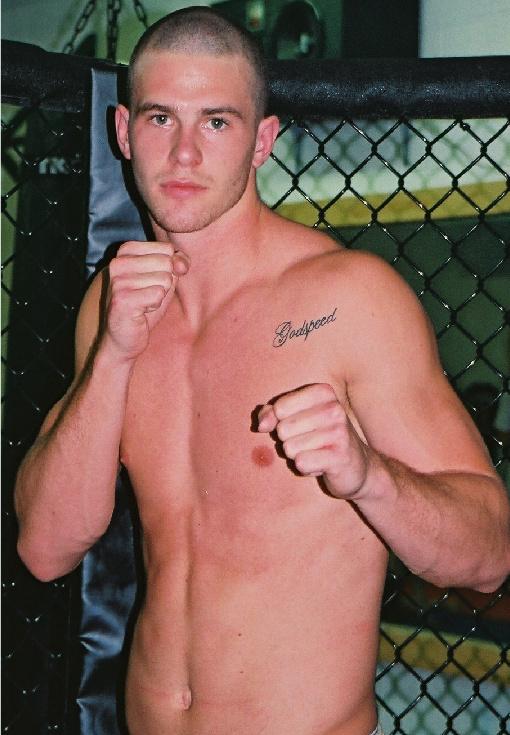



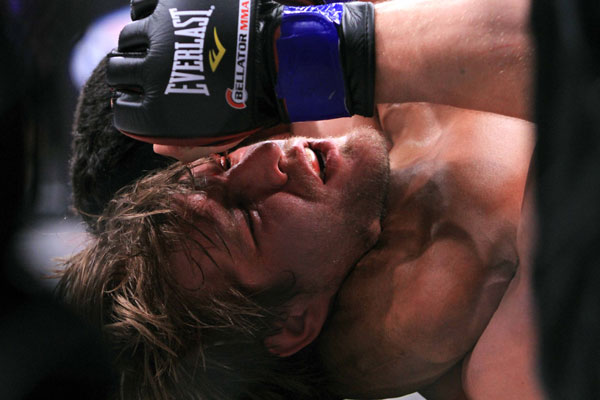

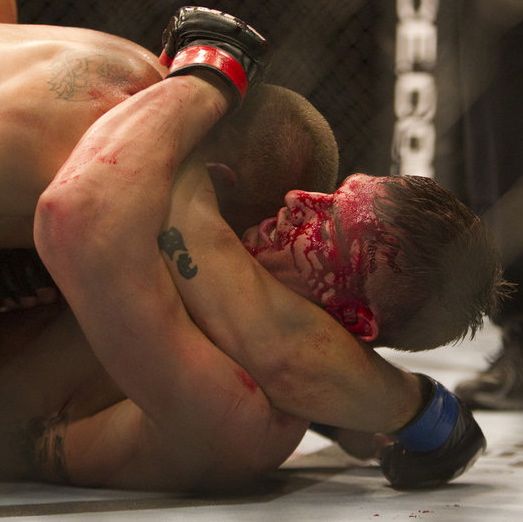

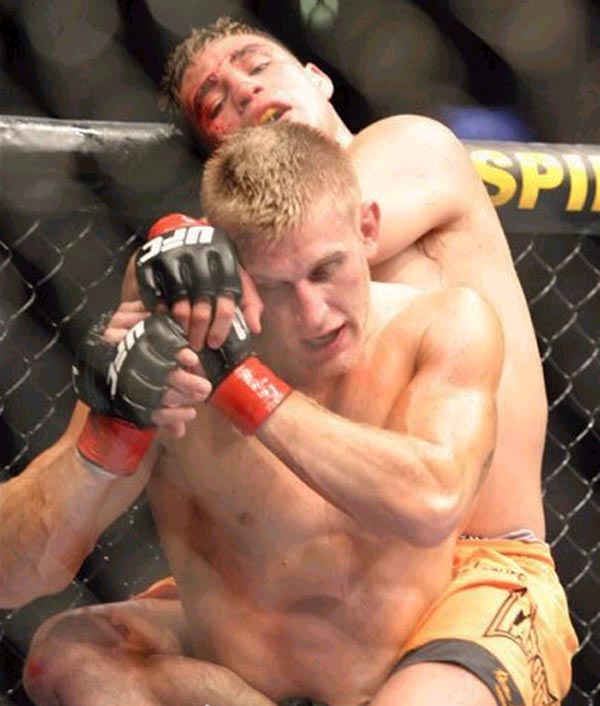

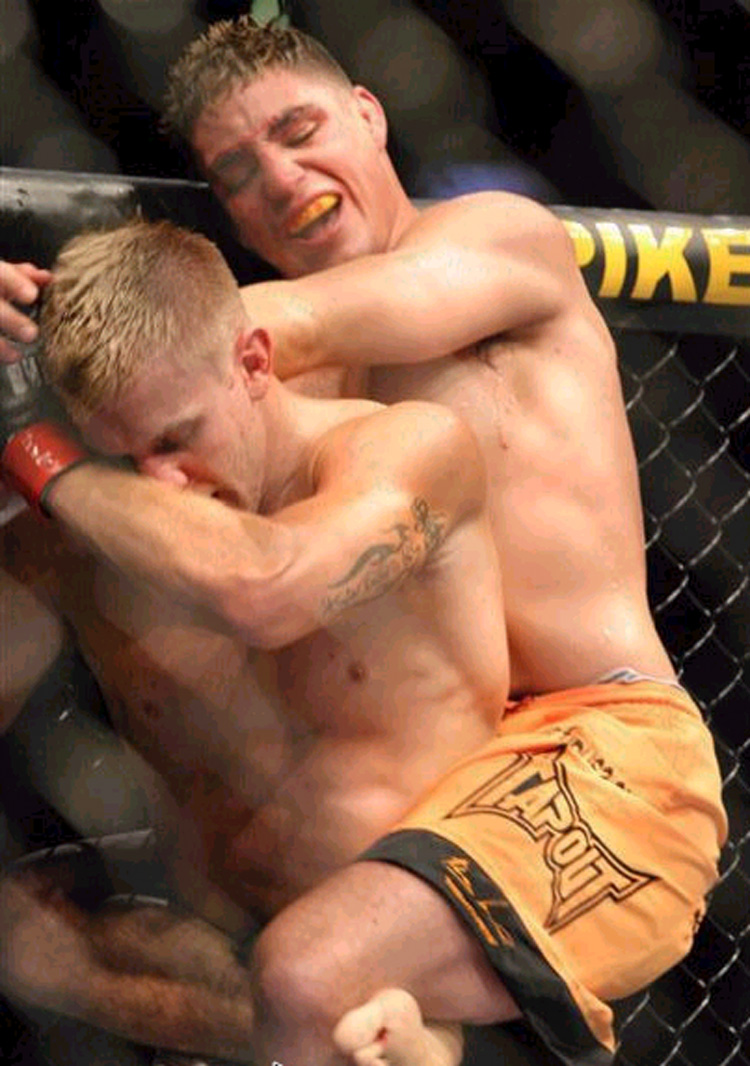






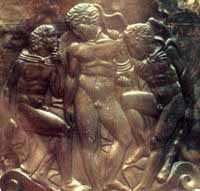
MANHOOD: A LEXICON
FIGHT IS THE FATHER OF ALL
Ares - Eros - Agon : Fighting Manhood and Manly Love
Plato is infinitely suggestive; his writings teem with ideas. But it is not the number of his ideas but his way of dealing with ideas that marks him as the world's first and greatest real philosopher. There was no lack of ideas in the society in to which Plato was born. The very air, as Pater says, was sickly with cast-off speculative atoms. He must have been early acquainted with Anaxagoras, who had been a conspicuous figure at Athens in the previous generation and whose doctrines Socrates in the Apology says can be bought from the orchestra for a
drachma at the most, and one of whose books, according to a well-known passage of the Phaedo, was read aloud in Socrates' hearing in his youth. It would be a plausible assumption that he went on from Anaxagoras to Empedocles, Parmenides, and other Presocratics. He is said to have studied Heraclitus under Cratylus. The boy Lysis admits that he has met in writers about nature the great principle that like is friendly to like, and it is not probable that the boy Plato had less intellectual curiosity. Nearly all the Presocratics are discussed, mentioned, or alluded to somewhere in Plato's writings. The conjectural reconstruction of the systems of these thinkers occupies in recent literature a space disproportionate to our real knowledge of them. It is enough for our present purpose to note that Plato could find in them more than the germ of many ideas which are supposed to be distinctively modern.
And all that breathe, are one
Slight ripple on the boundless deep
That moves, and all is gone.
Ares, then, if you like, would be named for his virility [to arren] and courage [to andreion = courage, Manliness, Manhood], or for his hard and unbending nature, which is called arratos; so Ares would be in every way a fitting name for the God of War.
From Heraclitus . . . [Plato] would derive the antithesis that pervades his own philosophy, between the experience of incessant change and the intellectual and moral necessity of the assumption of stability.
From Heraclitus to John Stuart Mill human thought has always faced the alternative of positing an inexplicable and paradoxical noumenon,
Myth gives supposition the form and color needed by our mortal and finite imaginations.
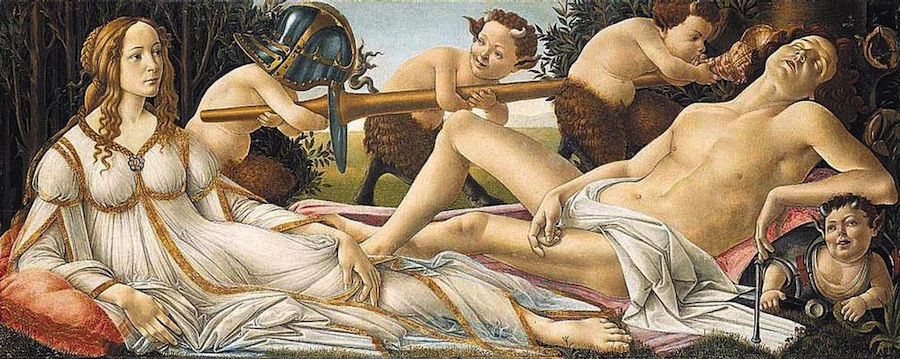
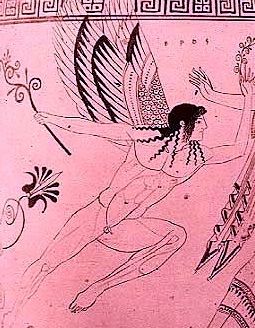
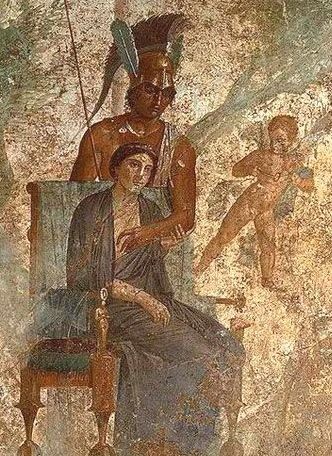
Ares and Aphrodite at Pompeii
Are the good and the beautiful and similar essences something or nothing?
For the answer that the "good" and the "beautiful" are only concepts of the mind is an evasion which commends itself to common-sense, but which will satisfy no serious thinker. If these concepts are the subjective correlates of objective realities, we return to the Platonic idea -- for Plato, it must be remembered, does not say what the ideas are, but only that they are in some sense objective and real.
for Plato, it must be remembered, does not say what the ideas are, but only that they are in some sense objective and real

![]()


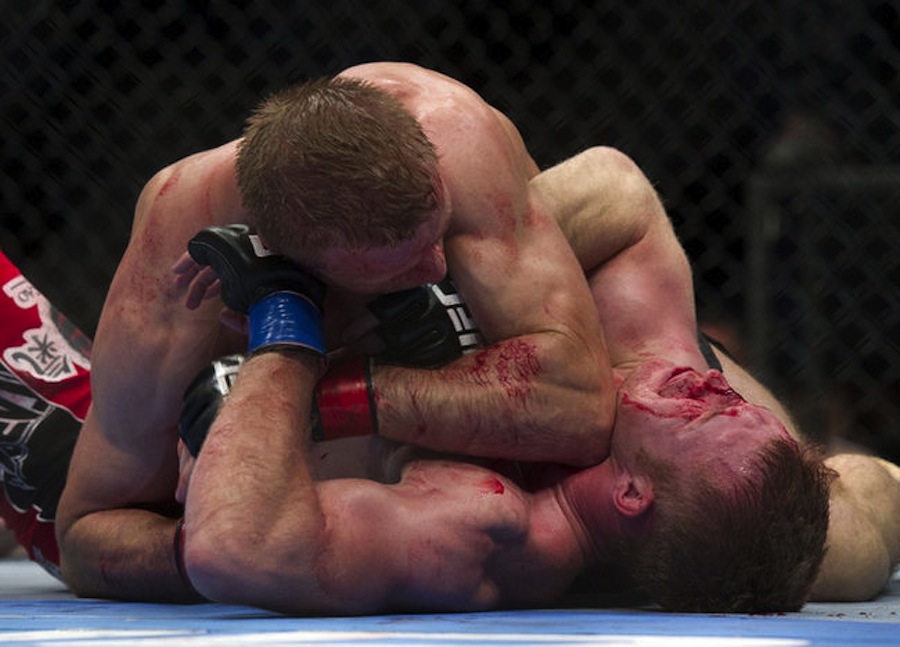
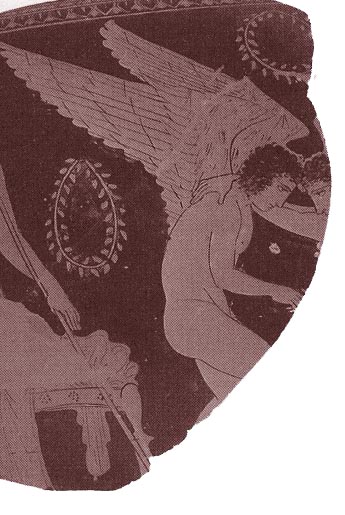

Eros and AntEros
Love is an Agon
Lovers are Agonists
Myth represents the active operations [daimonia] of the Gods.

Thou gazest on the stars, my star; ah, that I might be
Yon starry skies with thousand eyes that I might gaze on thee.
xxxEre thy fair life had fled.
Now having died thou art as Hesperus giving
xxxNew splendour to the dead.

xxxEre thy fair life had fled.
Now having died thou art as Hesperus giving
xxxNew splendour to the dead.
xxxThe web of tears and sorrow from their birth;
For thee, O Dion, when the prize was won,
xxxThey spilt our cup of hope upon the earth.
A people mourns now where thou liest low,
Dion, whose love once set my soul aglow.
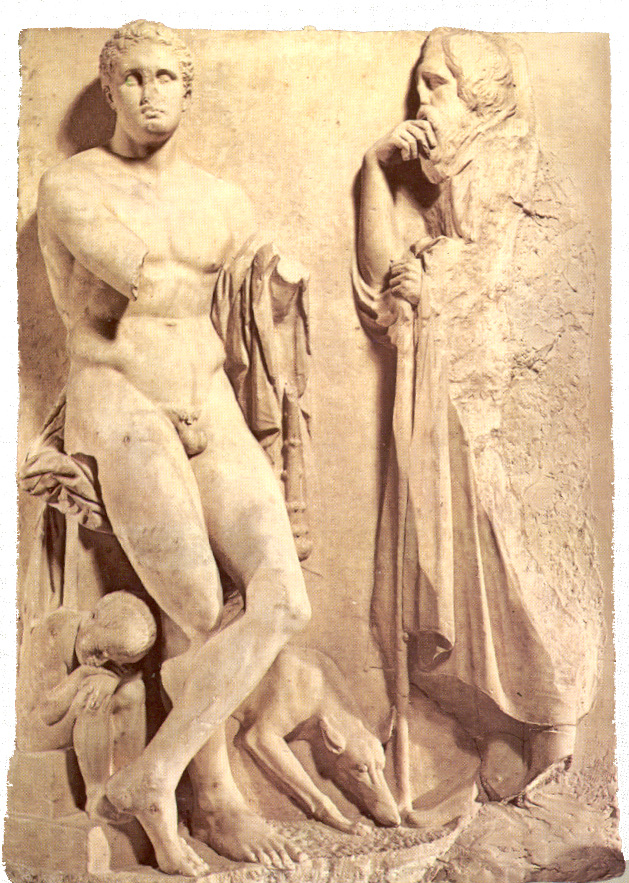
For, by the intercourse with, and, as it were, the very touch of that which is beautiful, he brings forth and produces what he had formerly conceived [intellectually, spiritually, poetically -- that which is for the betterment of Mankind]; and nourishes and educates that which is produced together with the object of his love, whose image, whether absent or present, is never divided from his mind. So that those who are thus united are linked by a nobler community and a firmer love, as being the common parents of a lovelier and more enduring progeny than the parents of other [that is, human,] children. And everyone who considers what posterity Homer and Hesiod and the other great poets have left behind them, the sources of their own immortal memory and renown, or what children of his soul Lycurgus [the Spartan law-giver] has appointed to be the guardians, not just of Lacedaimon, but of all Greece; or what an illustrious progeny of laws Solon [the Athenian law-giver] has produced, and how many admirable achievements, both among the Greeks and Barbarians, men have left as the pledges of that love which subsisted between them and the beautiful, would choose to be the parent of such children than those in an human shape. For divine honours have often been rendered to them on account of such children, but on account of those in human shape, never.
And when the other is beside him, he shares his respite from anguish, and when he is absent, he likewise shares his longing and being longed for, since he possesses a counter-love (anteros), which is the image of love (eros).
He whose soul is full of the wish to beget looks for something beautiful by which to beget. If he finds a soul which is beautiful, noble, and talented, he greets the whole man, and makes many speeches to him about areté, and the character and pursuits which a good man should have, and he sets about educating him. So in contact and association with him, he begets the offspring he had within himself for so long. Both present and absent, he remembers his partner and shares with him in bringing to perfection that which he begot, so that their parentage is a far stronger link than any share in children begotten of the body, and their love is more lasting than that of marriage, because they share in more beautiful and more immortal children.
the guardians, not just of Lakedaimon, but of all Greece

This Athenian grave stele or marker does not represent Plato and Dion,
but simply an older man and a younger, probably father and son.
Yet it could just as easily be Plato, in old age, contemplating the ghost, or his memories,
of the young, manly, acolyte of Virtue whom he'd met in Syracuse so many years before.
And if he meets, in conjunction with loveliness of form, a beautiful, generous, and gentle soul, he embraces both at once, and immediately undertakes to educate this object of his love, and is inspired with an overflowing persuasion to declare what is virtue [areté], and what he ought to be who would attain to its possession, and what are the duties which it exacts.
[it's] the highest kind of love which makes man reach out towards the highest areté [Manhood, Manly Excellence, Goodness, Virtue] through which he 'takes possession of the beautiful'.
[H]e at once lost Syracuse, [and] being in straitened circumstances and unable to support his mercenaries properly, he was put to death by Leptines and Polyperchon, who, as fortune would have it, used the shortsword with which Dion also was said to have been smitten. And it was known by its size, which was short, after the Spartan fashion, and by the style of its workmanship, being delicately and cunningly wrought.

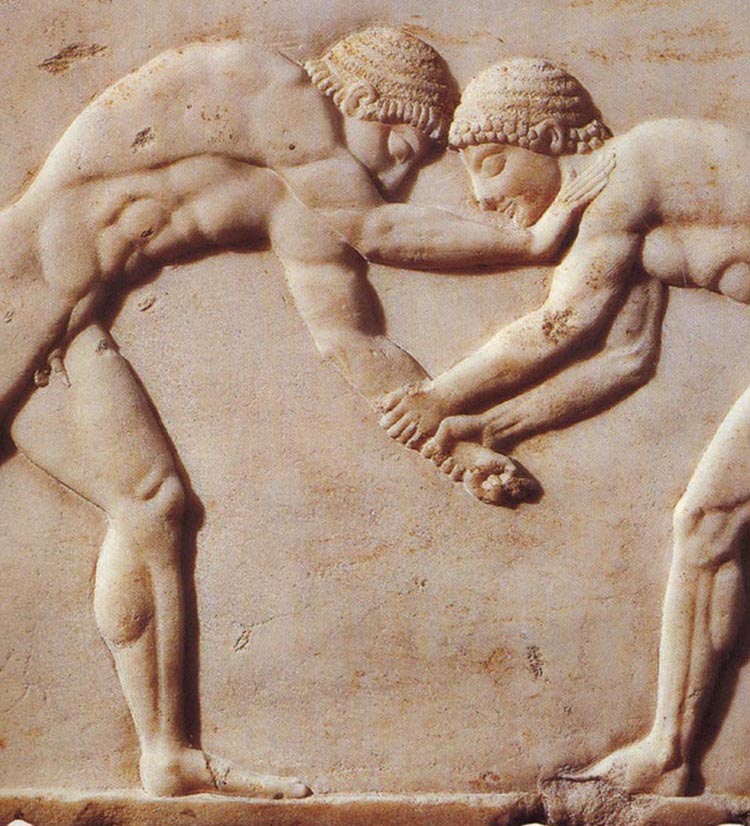





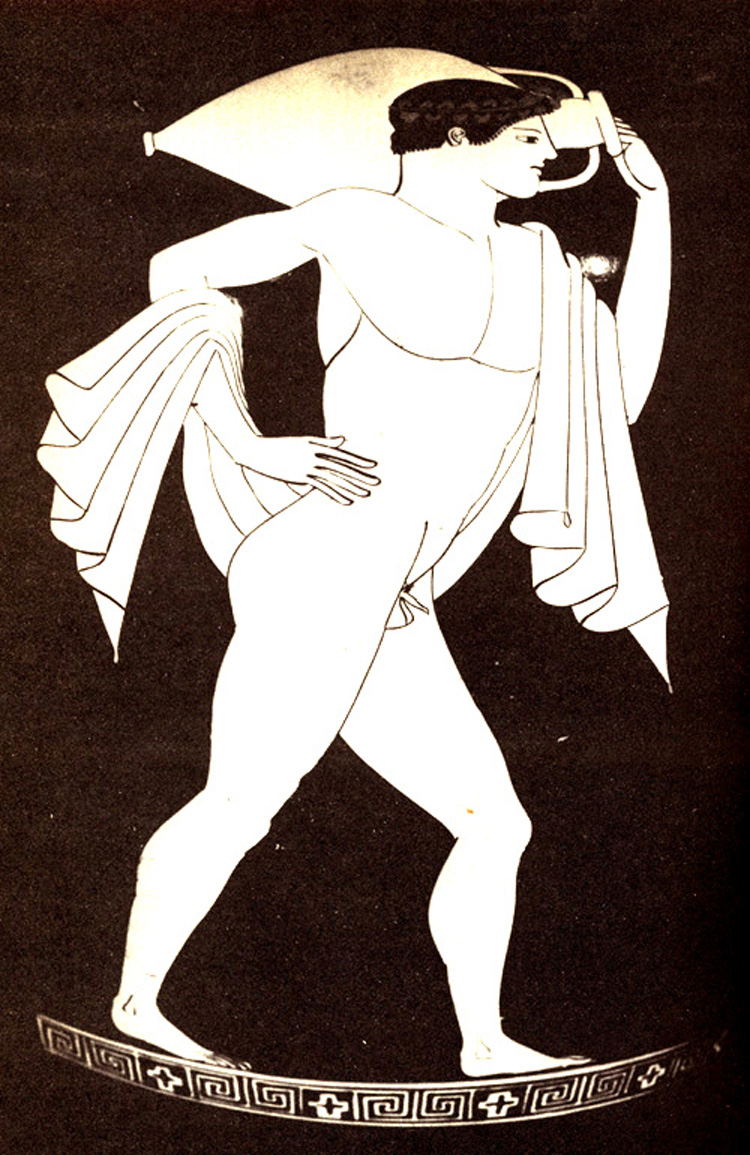





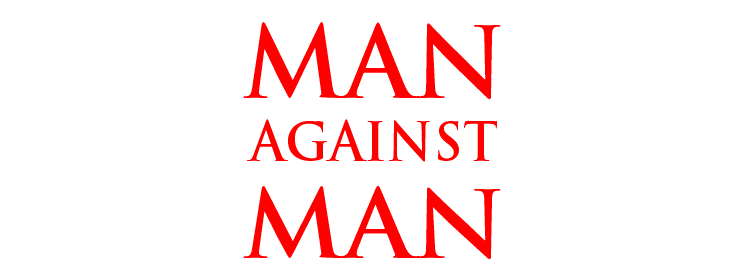
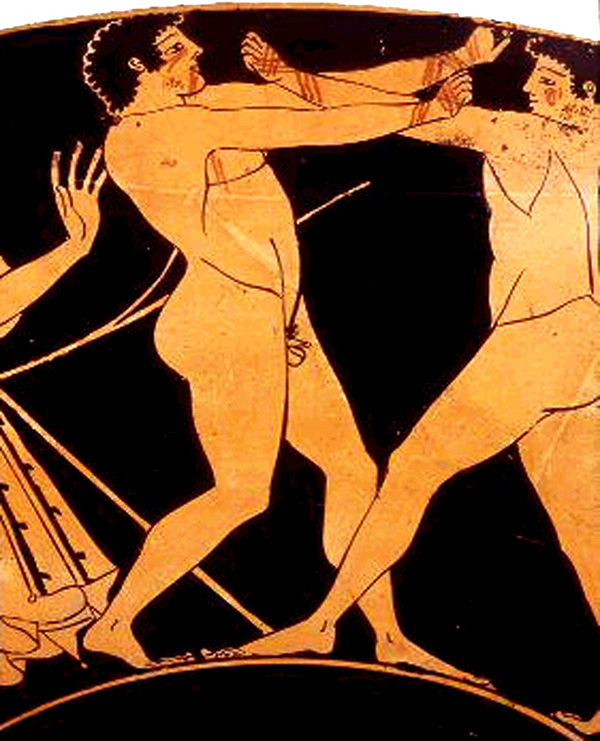
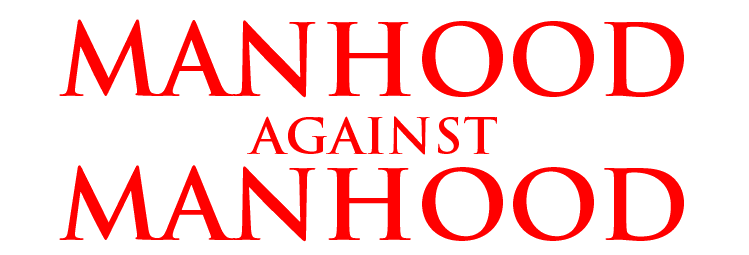



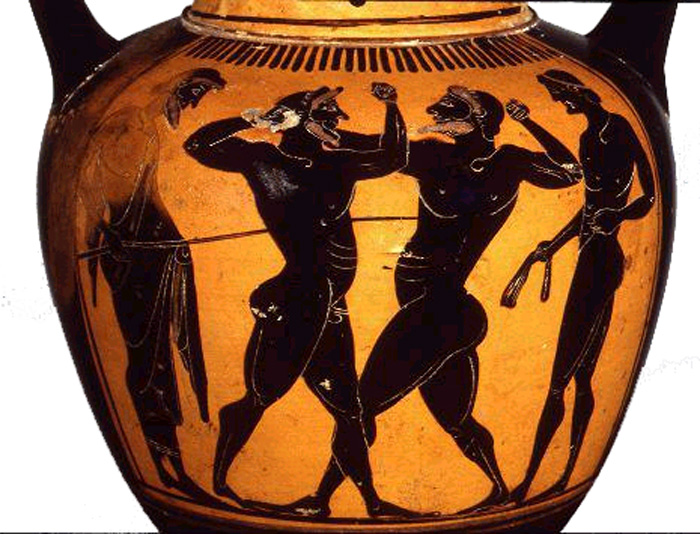
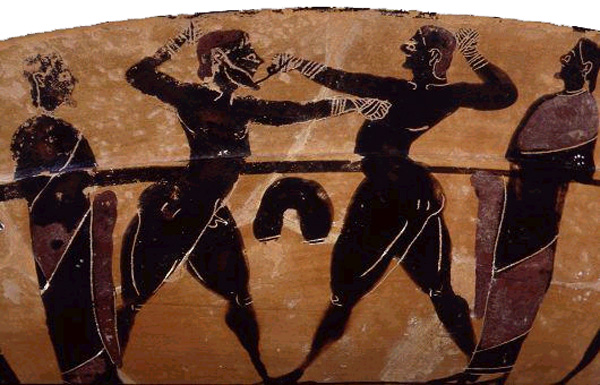

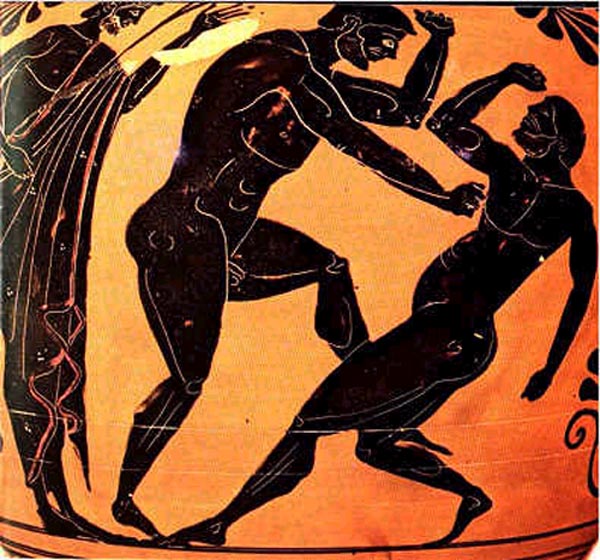
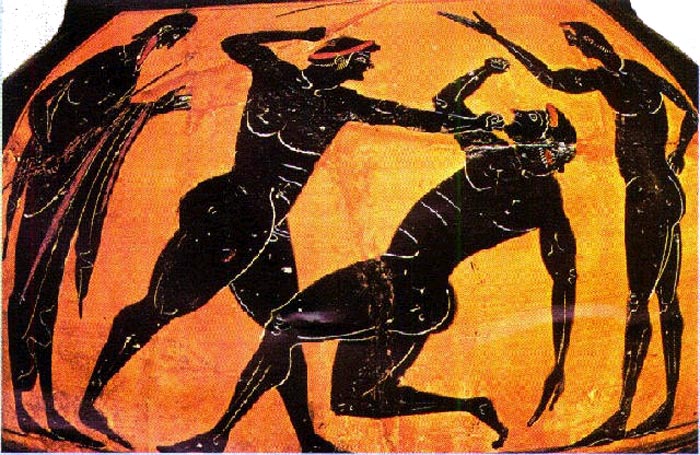
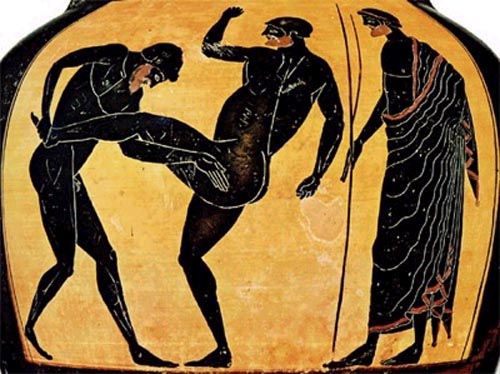
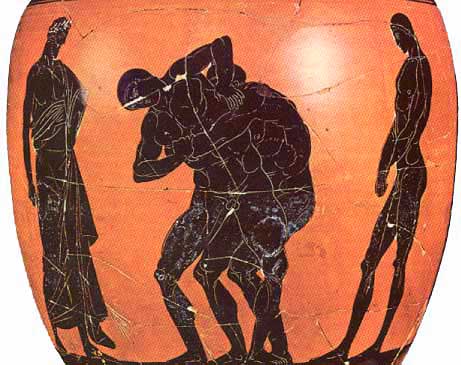
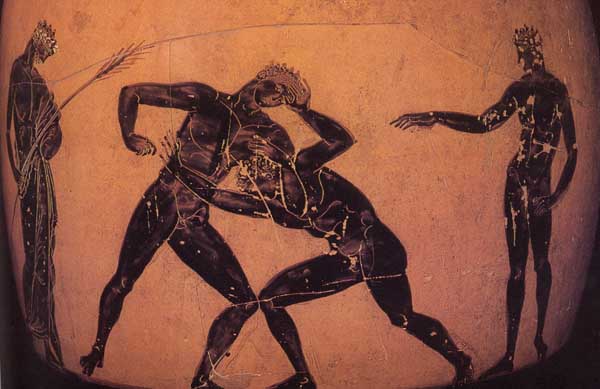
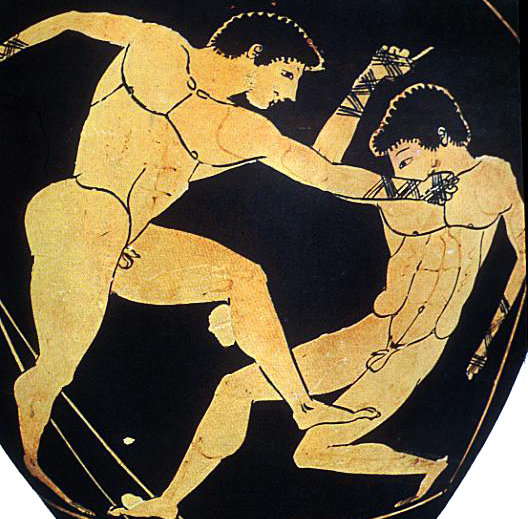
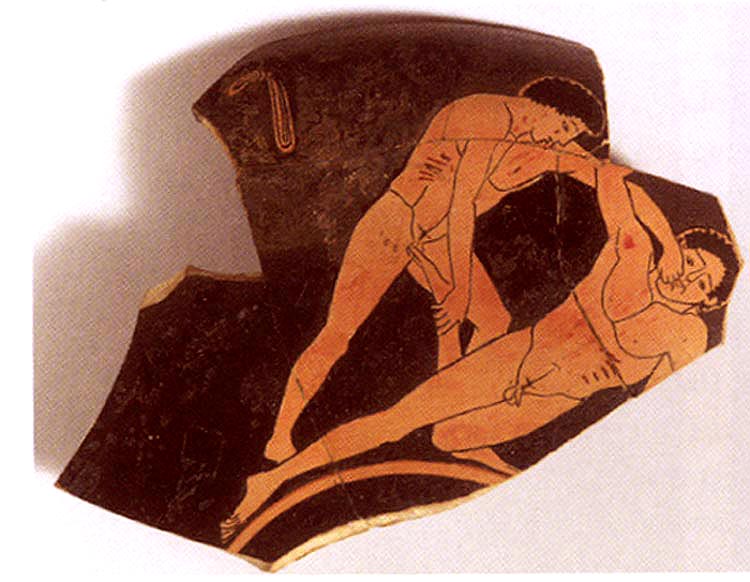









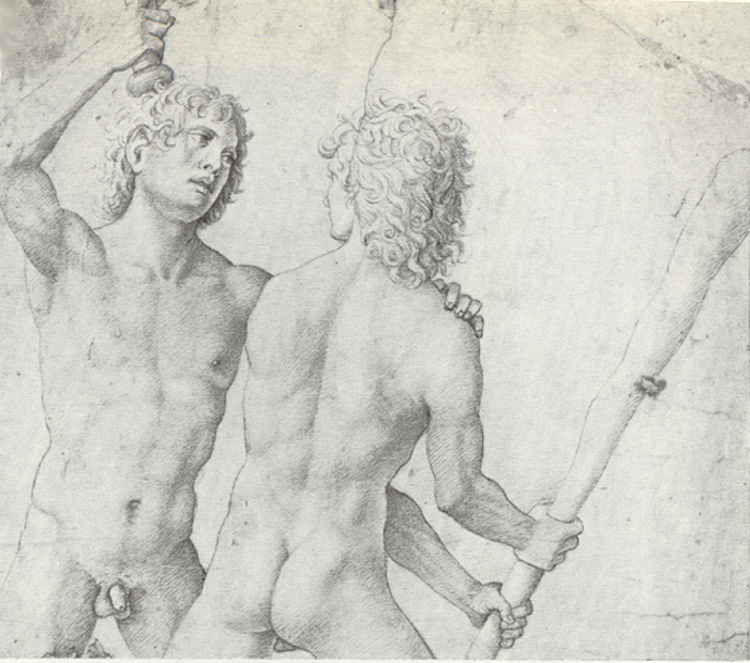


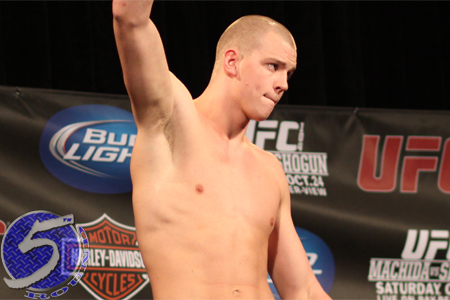
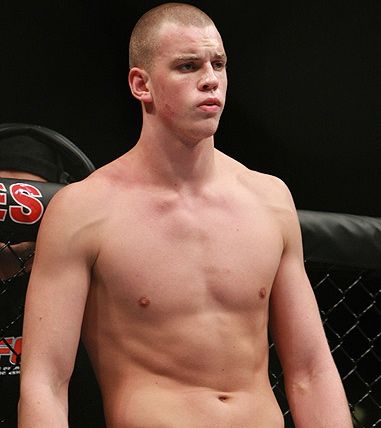
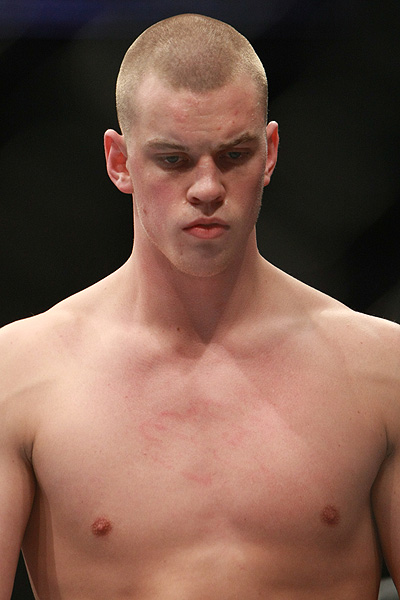
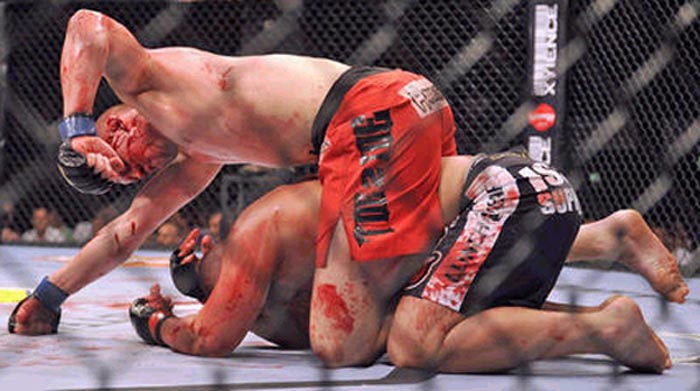
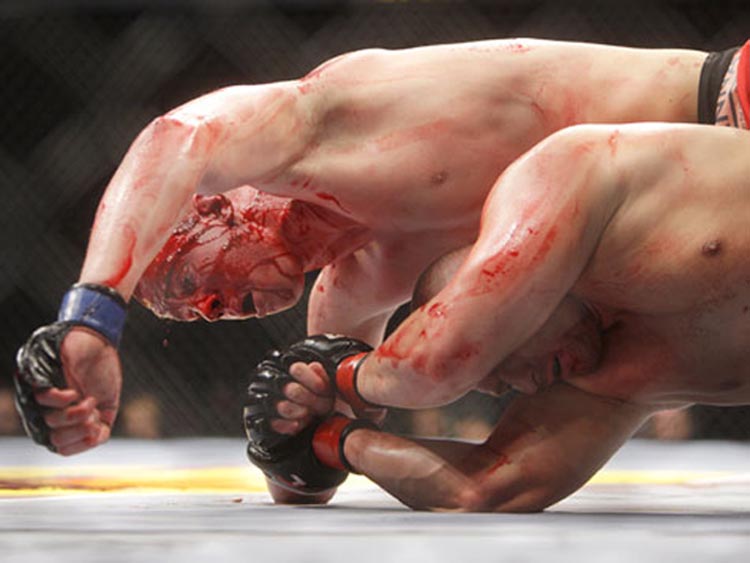
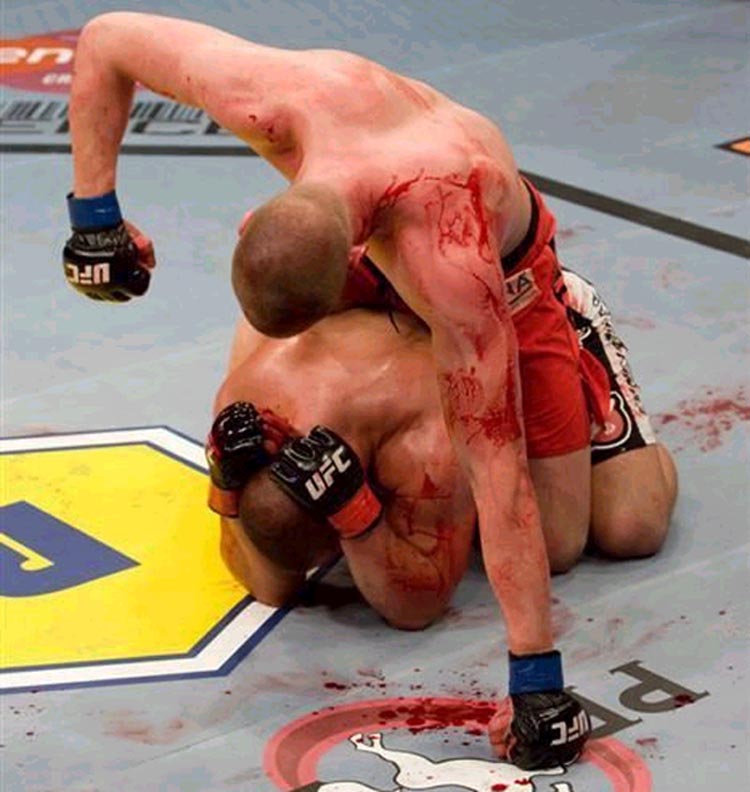
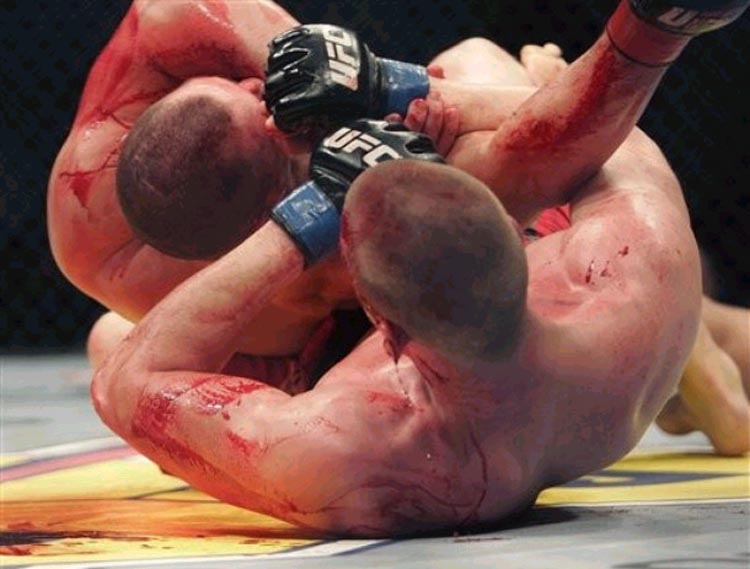
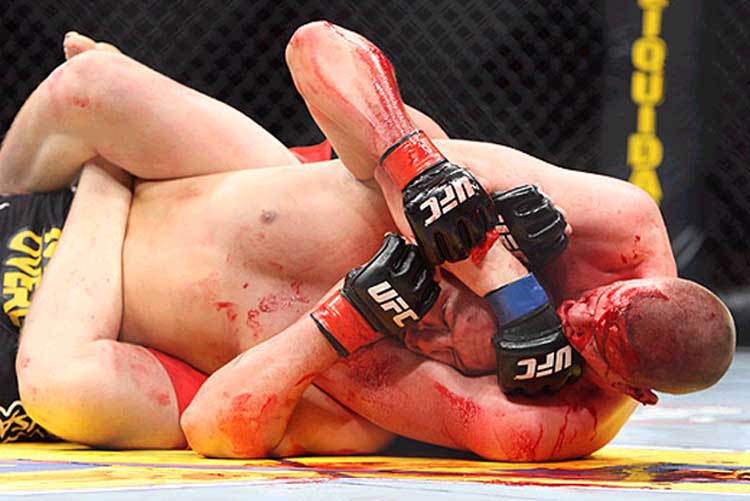
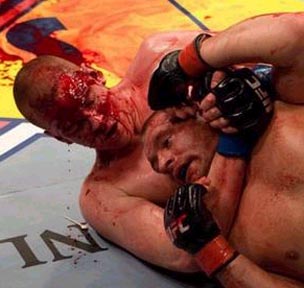
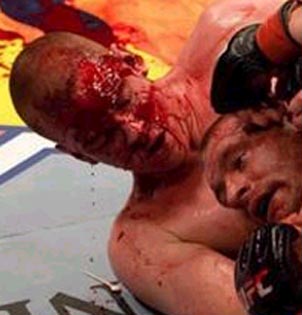
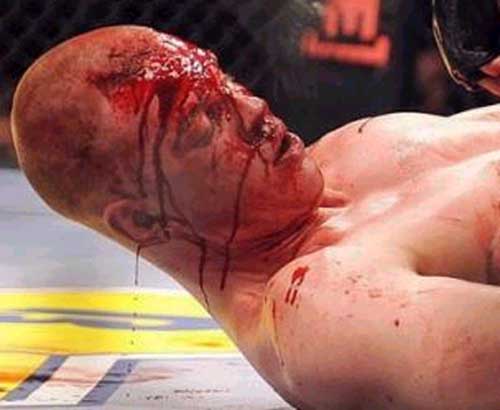
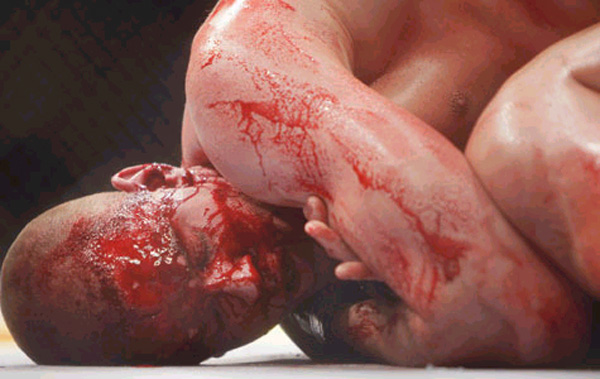
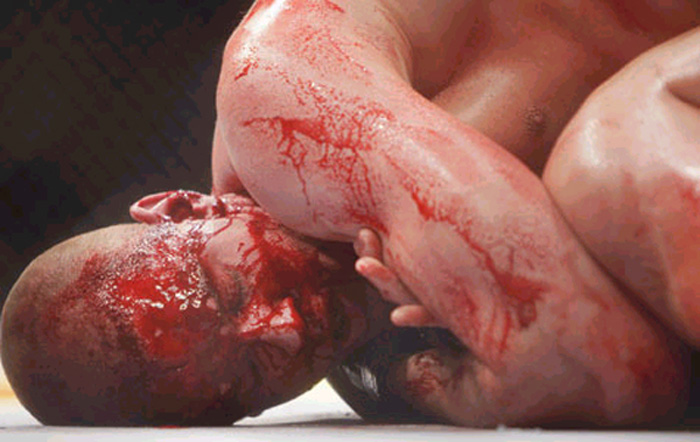
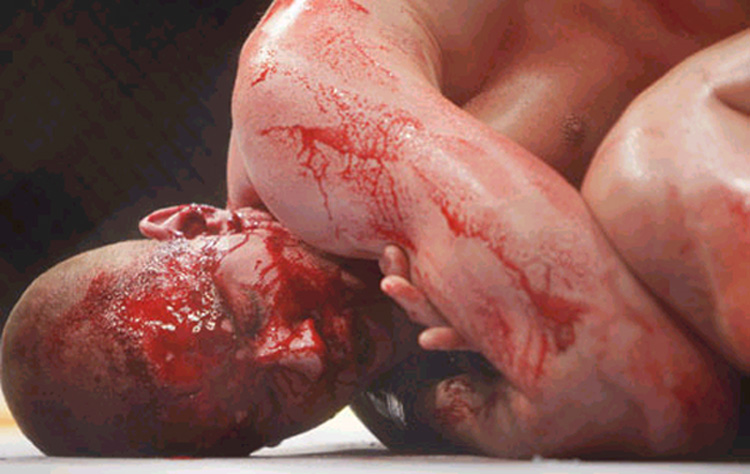
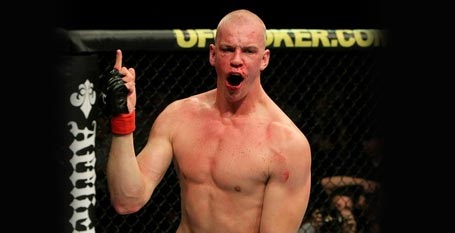



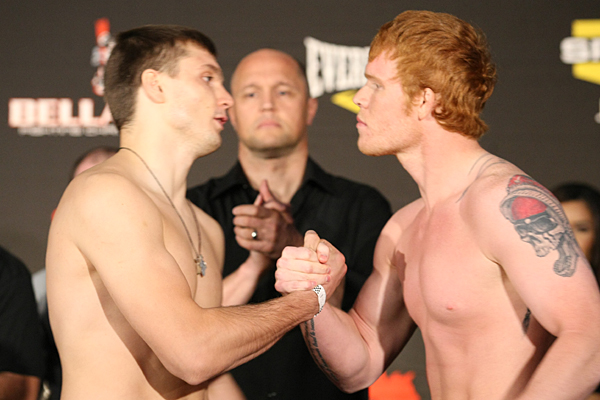


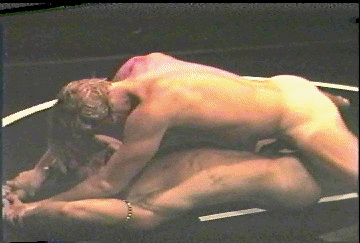





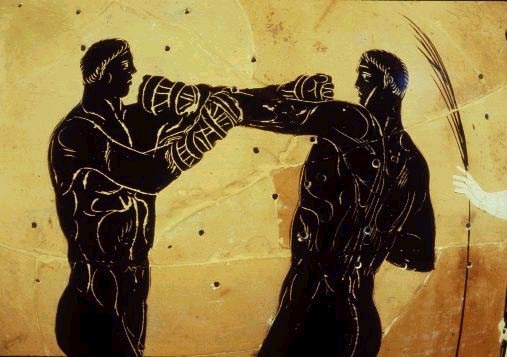






MANHOOD: A LEXICON
FIGHT IS THE FATHER OF ALL
Manly Moral Order : Fighting Manhood and Manly Justice

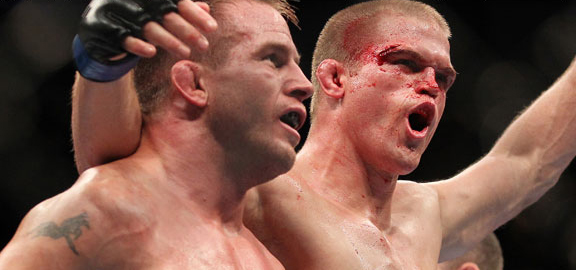

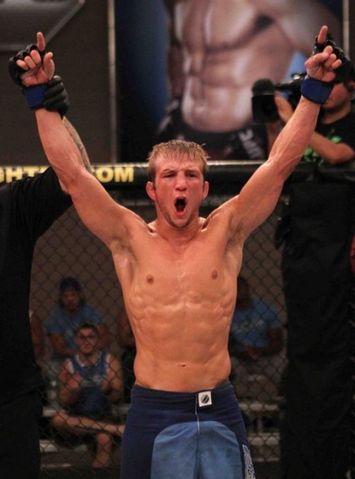
the social, political, and ethical ideals of the Republic and Laws as a whole [constitute] a Dorian [Spartan] and Pythagorean ideal of order, harmony, discipline, and restraint opposed to the laxity of the Athenian democracy





They learned to read and write for purely practical reasons; but all other forms of education they banned from the country, books and treatises being included in this quite as much as men. All their education [paideia] was directed toward prompt obedience to authority, stout endurance [karteria] of hardship [ponos], and victory or death in battle [mache].


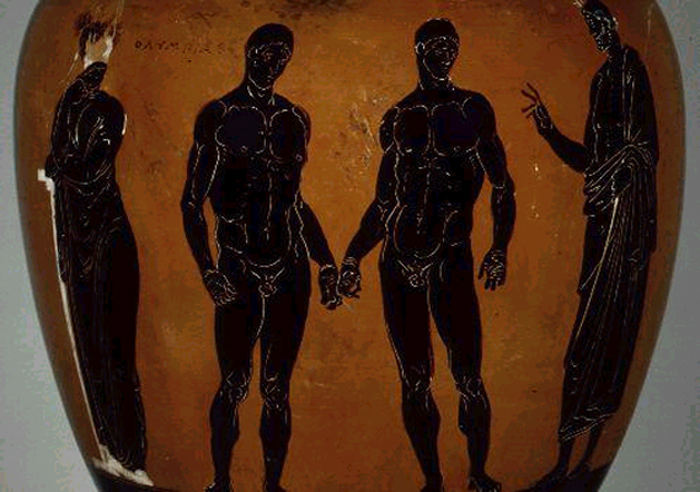


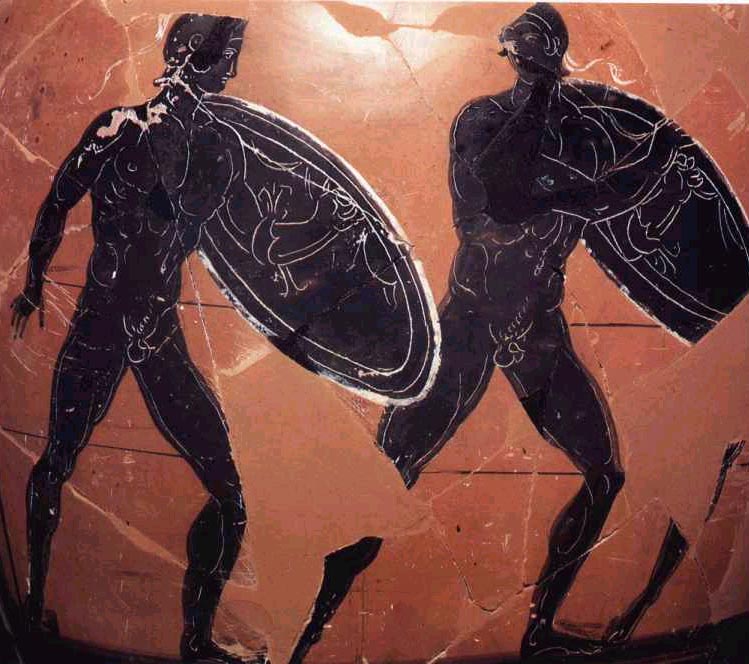







MANHOOD: A LEXICON
FIGHT IS THE FATHER OF ALL
In Union with Valour : Fighting Manhood and the Idea of Good
Your training, Stranger, has certainly, as it seems to me, given you an excellent understanding of the legal practices of Crete. But tell me this more clearly still: by the definition you have given of the well-constituted State you appear to me to imply that it ought to be organized in such a way as to be victorious in war over all other States. Is that so?
Certainly it is; and I think that our friend here shares my opinion.
No Lacedaemonian, my good sir, could possibly say otherwise.
If this, then, is the right attitude for a State to adopt towards a State, is the right attitude for village towards village different?
By no means.
It is the same, you say?
Yes.
Well then, is the same attitude right also for one house in the village towards another, and for each man towards every other?
It is.
And must each individual man regard himself as his own enemy? Or what do we say when we come to this point?
O Stranger of Athens, for I should be loth to call you a man of Attica, since methinks you deserve rather to be named after the goddess Athena, seeing that you have made the argument more clear by taking it back again to its starting-point; whereby you will the more easily discover the justice of our recent statement that, in the mass, all men are both publicly and privately the enemies of all, and individually also each man is his own enemy.
What is your meaning, my admirable sir?
It is just in this war, my friend, that the victory over self is of all victories the first [protos] and best [aristos] while self-defeat is of all defeats at once the worst [aischros] and the most shameful [kakos]. For these phrases signify that a war against self exists within each of us.
The lawgiver ought to commune with himself and reason thus -- "Come now, what men am I to rear up, when I have made ready the whole State [polis]? Are they not to be competitors in the greatest of contests, wherein their antagonists will be numberless?" "Most certainly," one would rightly reply. What then? Suppose we had been rearing boxers [puktes] or pancratiasts [pankratiastes] or competitors in any similar branch of athletics [agonisma], should we have gone straight into the contest [agon] without previously engaging in daily combat [prosmachomai] with someone? If we were boxers, for a great many days before the contest we should have been learning how to fight, and working hard, practicing in mimicry all those methods we meant to employ on the day we should be fighting for victory, and imitating the real thing as nearly as possible: thus, we should don padded gloves instead of proper ring-gloves, so as to get the best possible practice in giving blows and dodging them; and if we chanced to be very short of training-mates [syn-gymnastes], do you suppose that we should be deterred by fear of the laughter of fools from hanging up a lifeless dummy and practicing on it? Indeed, if ever we were in a desert, and without either live or lifeless training-mates, would we not have recourse to shadow-fighting of the most literal kind, against ourselves? Or what else should one call the practice of pugilistic posturing?
There is no other name for it, Stranger, than the one you have just given to it.
What then? Is the fighting force of our State to venture to come forward every time to fight for their lives, their children, their goods, and for the whole State, after a less thorough preparation than the competitors we have been describing? And so is their lawgiver, through fear lest these training-bouts may appear ridiculous to some, to refrain from laying down laws whereby he will ordain field-operations, of which the minor kind, without heavy arms, will take place daily, if possible, -- and to this end both the choristry [military dancing] and all the gymnastic [nude physical training] shall be directed -- while the others, as a major kind of gymnastics in full armor, he shall order to be held at least once a month? In this latter kind they will engage in contests with one another throughout the whole country, contending in the capturing of forts and in ambuscades and in all forms of mimic warfare; in fact, they shall do literal fighting with balls and darts as nearly real as possible -- though the points of the darts shall be made less dangerous -- in order that their games of combat may not be devoid of some element of alarm, but may provide terrors and indicate to some extent who is stout-hearted [euphuchos] and who not: to the former the lawgiver shall duly assign honors [timé -- Worth], to the latter degradation [a-timé], that thus he may prepare the whole State to be serviceable throughout life in the real contest. Moreover, if a man gets killed in these sham fights, inasmuch as the murder is involuntary, he shall pronounce the slayer to be pure of hands, when he has been legally purified; for he will reflect that, when a few men die, others equally good will grow up in their place, whereas, once fear is, so to speak, dead, he will be unable to find a test to distinguish, in all such cases, the good from the bad -- and that is a far greater evil than the other for a State.
We, at least, Stranger, would certainly agree that every State should both ordain and practice these things.
Are we all aware of the reason why such military dancing and such contests [agonia] do not at present exist anywhere in the States, except to a very small extent? Shall we say that this is due to the ignorance of the populace and of those who legislate for them?
Possibly.
Not so, by any means, my ingenious Clinias! What we ought to say is that there are two causes, and both most weighty ones.
What are they?
The first springs from a lust for wealth which allows a man no leisure time for attention to anything else save his own private property; and when the soul of every citizen hangs upon this, it is incapable of attending to matters other than daily gain. Whatsoever science or pursuit leads to this, every man individually is most ready to learn and to practice; but all else he laughs to scorn. This we must assert to be one particular cause why a State is unwilling to be in earnest about this, or any other, fine [to agathon] and noble [kalos] pursuit; and why, on the other hand, every individual, because of his greed for silver and gold, is willing to toil at every art and device, noble or ignoble, if he is likely to get rich by it -- willing, too, to perform actions both holy and unholy -- nay, utterly shameful -- without a scruple, provided only that he is able to sate himself to repletion, like a beast, with all manner of foods and drinks and wenchings.
True.
Then let this which I describe be laid down as one cause which hinders the States from adequately practicing either military operations or any other noble pursuits [kalon -- ta kala] and which turns men who are of a quiet nature into traders, ship-owners, and servants, while of the bold [andreios -- Manly] it makes pirates, burglars, temple-robbers, mercenaries, and tyrants.
Manhood is despised.
In the first place, none [of the Guardians, the Warrior Caste of the Republic,] must possess any private property save the indispensable. Secondly, none must have any habitation or treasure-house which is not open for all to enter at will. Their food, in such quantities as are needful for athletes of war sober [sophron] and brave [andreios -- Manly], they must receive as an agreed stipend from the other citizens as the wages of their guardianship, so measured that there shall be neither superfluity at the end of the year nor any lack. And resorting to a common mess like soldiers on campaign they will live together.
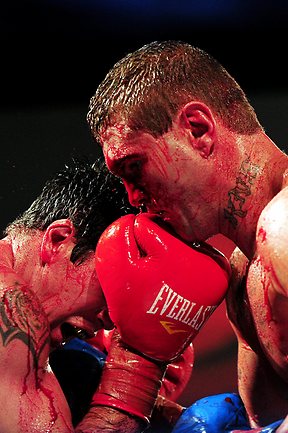

We arrived yesterday evening from the army at Potidaea [the Battle of Potidaea was fought in 432 BC, when Socrates was thirty-seven years old], and I sought with delight, after an absence of some time, my wonted conversations. Accordingly I went into the wrestling-school [palaistra] of Taureas [a trainer], opposite Basile's shrine, and there I came upon quite a number of people, some of whom were unknown to me, but most of whom I knew. And as soon as they saw me appear thus unexpectedly, they hailed me from a distance on every side; but Chaerephon, like the mad creature that he is, jumped up from their midst and ran to me, and grasping me by the hand --
Just in from the country, Terpsion, or did you come some time ago?
Quite a while ago; and I was looking for you in the market-place and wondering that I could not find you.
Well, you see, I was not in the city.
Where then?
As I was going down to the harbor I met Theaetetus being carried to Athens from the camp at Corinth.
Alive or dead?
Just barely alive; for he is suffering severely from wounds, and, worse than that, he has been taken with the sickness that has broken out in the army.
You mean the dysentery?
Yes.
What a man he is who you say is in danger!
A noble man [kalon kai agathon -- a noble, morally beautiful, brave and good man], Terpsion, and indeed just now I heard some people praising him highly for his conduct in the battle.
That is not at all strange; it would have been much more remarkable if he had not so conducted himself. But why did he not stop here in Megara?
He was in a hurry to get home; for I begged and advised him to stop, but he would not. So I went along with him, and as I was coming back I thought of Socrates and wondered at his prophetic gift, especially in what he said about him. For I think he met him a little before his own death, when Theaetetus was a mere boy, and as a result of acquaintance and conversation with him, he greatly admired his qualities. . . .
I assure you that among all the young men I have ever met -- and I have had to do with a great many -- I never yet found one of such marvelously fine qualities. He is quick to learn, beyond almost anyone else, yet exceptionally gentle, and moreover brave [andreios -- Manly] beyond any other; I should not have supposed such a combination existed, and I do not see it elsewhere.
What a man he is who you say is in danger!
A noble man [kalon kai agathon -- a noble, morally beautiful, brave and good man], Terpsion, and indeed just now I heard some people praising him highly for his conduct in the battle.
That is not at all strange; it would have been much more remarkable if he had not so conducted himself.
"O children, that you are born of valiant [agathos] sires is clearly shown by the facts now before you: we, who might have ignobly lived choose rather to die nobly, before we bring you and those after you to disgrace, and before we bring shame upon our own fathers and all our earlier forebears, since we deem that life is unworthy [un-timé] to be lived for the man who brings shame upon his own, and that such an one has no friend amongst gods or man, either here on earth, or under the earth when he is dead.
To our sons this message:
To our sons this message:
From the same root [ARES] comes areté ... the first notion of goodness being that of manhood, bravery in war; cf. Lat. virtus.
goodness, excellence, of any kind, esp. of manly qualities, manhood, valour, prowess.
O children, that you are born of valiant [agathos] sires . . .
Manhood, manliness, strength, vigor, bravery, courage, excellence; Valour, gallantry, fortitude; Goodness, moral perfection, high character, virtue; Worth, merit, value, strength
O children, that you are born of valiant [agathos] sires is clearly shown by the facts now before you: we, who might have ignobly lived choose rather to die nobly. . .
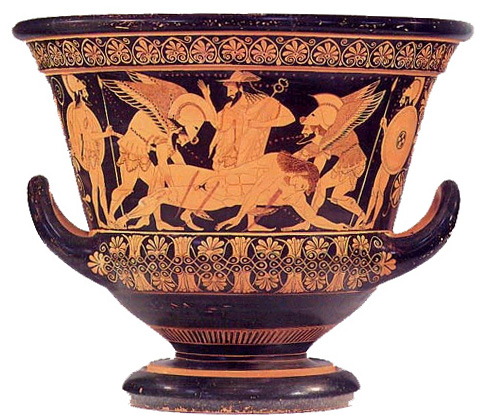
The God Hermes directs Death and Sleep
to carry the body of Sarpedon,
a Warrior who died nobly at Troy,
to his native land for funeral rites.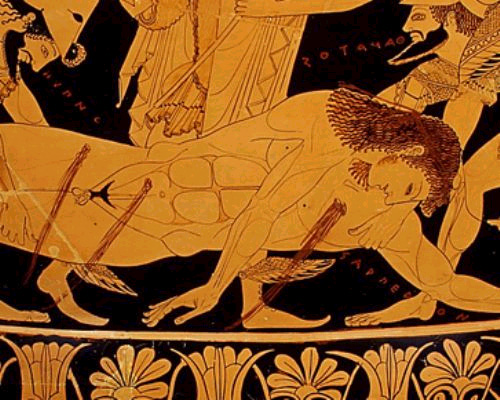

Notice the two Warriors flanking the scene.
This is a "krater" -- a vessel for mixing wine and water
which would have been the centerpiece at a Symposion --
an all-male and Manly celebration -- a banquet and drinking party.
whatsoever else you practice -- whatever else you do -- you must do it in union with valor, [areté -- Fighting Manhood], being well assured that when divorced from this all possessions and pursuits are base and ignoble.
neither does wealth bring honor to its possessor if combined with cowardice [an-andria -- want of manhood, UN-manliness] -- for such an one is rich for another rather than for himself -- nor do beauty and strength appear comely, but rather uncomely, when they are attached to one that is cowardly and base
every form of knowledge when sundered from justice [dikaios] and the rest of virtue [areté -- Fighting Manhood] is seen to be plain roguery rather than wisdom.
whatsoever else you practice -- whatever else you do -- you must do it in union with valor [areté -- Manhood]
every form of knowledge when sundered from justice [dikaios] and the rest of virtue [areté -- Fighting Manhood] is seen to be plain roguery rather than wisdom.
Virtue is one [that is, unitary] because each of the virtues is a form of knowledge, or because each, when taken in the highest sense, involves all the others.
every form of knowledge --
each, when taken in the highest sense, involves all the others.
whatsoever else you practice you must practice it in union with valor [areté -- Manhood], being well assured that when divorced from this all possessions and pursuits are base and ignoble.

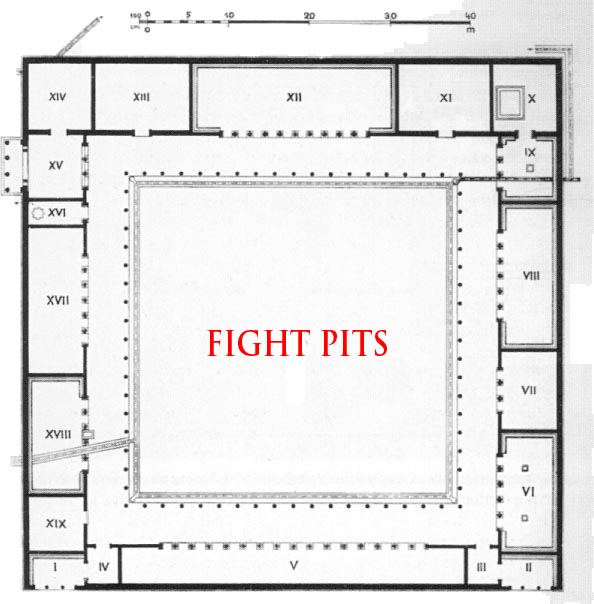
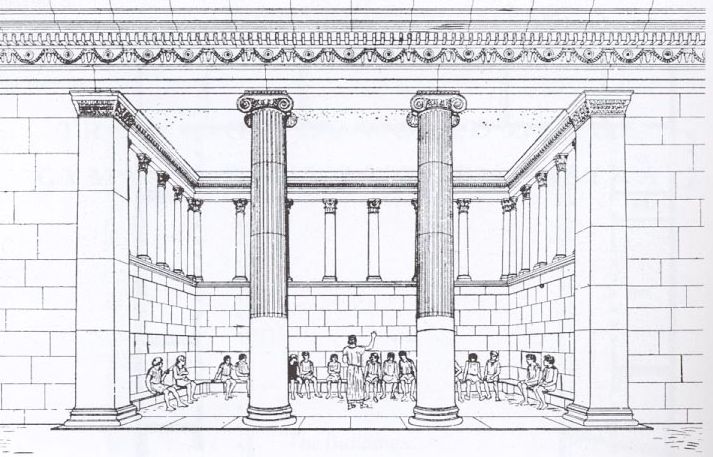
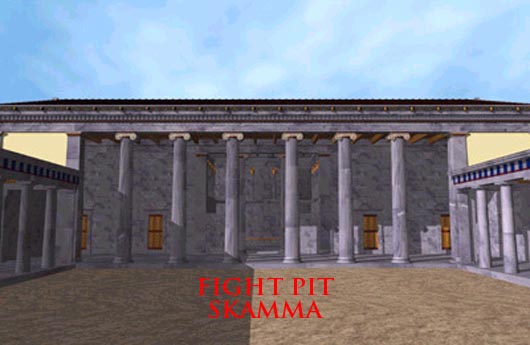
[T]he Sensible [sophron = sensible, temperate, having control over the sensual desires, self-controlled σωφρων sophrosyne] Man will do what is fitting as regards both Gods and Men; for he could not be sensible if he did what was unfitting. That must needs be so. And again, when he does what is fitting as regards Men, his actions will be Just [dikaios], and as regards the Gods, Pious [hosios]; and he who does what is Just and Pious must needs be a Just and Pious Man. That is so. And surely he must be Brave [andreios = Manly] also: for you know a sound or temperate mind is shown, not by pursuing and shunning what one ought not, but by shunning and pursuing what one ought, whether they be things or people or pleasures or pains, and by steadfastly persevering in one's duty; so that it follows of strict necessity, Callicles, that the Temperate [sophron] Man, as shown in our exposition, being Just [dikaios] and Brave [andreios = Manly] and Pious [hosios], is the perfection of a Good Man; and that the Good Man does well and fairly whatever he does and that he who does well is blessed and happy, while the wicked man or evil-doer is wretched.
so that the Self-Controlled Man, being Just and Manly and Pious, is the Perfection of a Good Man
so that the Manly Man, the Man in full possession of his Fighting Manhood, being Just and Self-Controlled and Pious, is the Perfection of a Good Man
Courage [andreios = Manliness] is, presumably, one part of virtue [areté].
Certainly.
Now that you have heard the argument, judge for yourself whether you would welcome as housemate [syn-oikos] or neighbor a man who is extremely courageous, but licentious rather than temperate [sophron = self-controlled].
Don't suggest such a thing!
Well then, a man wise in arts and crafts, but unjust [a-dikia].
Certainly not.
But justice, surely, is not bred apart from temperance [sophrosyne].
Impossible.
Nor is he whom we recently proposed as our type of wisdom, the man who has his feelings of pleasure and pain in accord with the dictates of right reason and obedient thereto.
No, indeed.

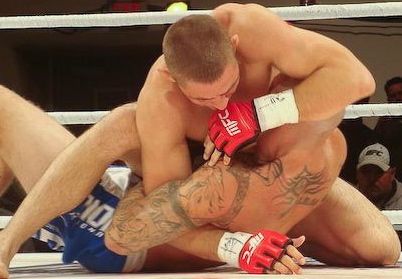



Whatever else you practice you must practice it in union with Manhood, being well assured that when divorced from this all possessions and pursuits are base and ignoble.
Whatever else you practice you must practice it in union with Manhood, being well assured that when divorced from this all possessions and pursuits are base and ignoble.
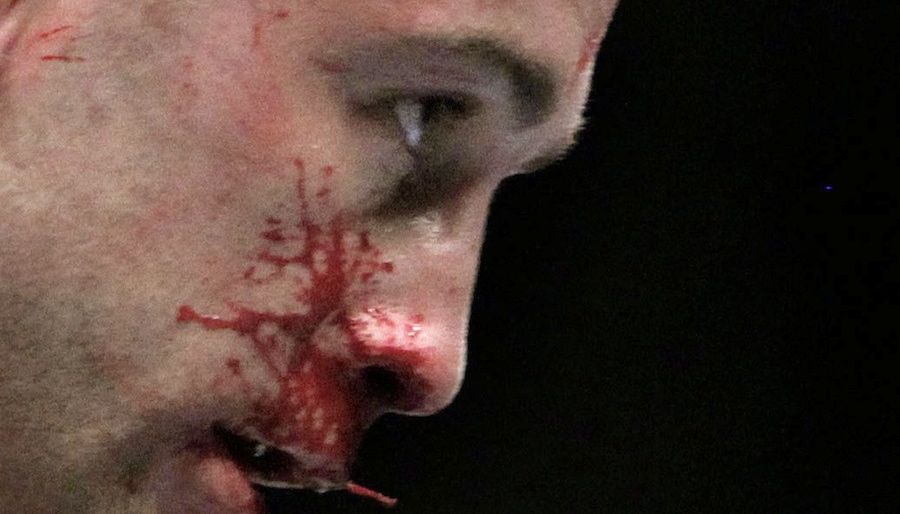





The whole soul consists of three parts, reason, spirit, and desire. The excellence [areté] of reason is wisdom [phronesis], of spirit courage [andreia -- Manliness], of desire, temperance [sophrosyne], of the whole soul justice [dikaiosyne, from dikaios].
The whole soul consists of three parts, reason, spirit, and desire. The Manhood [areté] of reason is wisdom [phronesis], of spirit courage [andreia -- Manliness], of desire, temperance [sophrosyne], of the whole soul justice [dikaiosyne, from dikaios, just, well-ordered].
Reason must make a right judgment, spirit must, in obedience to reason, despise seeming dangers, and desire must pursue not seeming pleasure but reasonable pleasure.
Manly Reason must make a Manfully right judgment, Manly spirit must, in obedience to Manly reason, despise seeming dangers, and desire must pursue not seeming pleasure but Manfully reasonable pleasure.
"Then will not law-suits and accusations against one another vanish, one may say, from among them, because they have nothing in private possession but their bodies, but all else in common? So that we can count on their being free from the dissensions that arise among men from the possession of property, children, and kin."
there could not rightly arise among them any law-suit for assault or bodily injury. For between age-fellows[1] and comrades we shall say that to defend oneself, to repel an assault is morally beautiful and just, well-ordered, and righteous, thereby compelling them to keep their bodies in condition.
[1] Cf. [compare] A.J.P. vol. xiii. p. 364, Aeschines iii. 255, Xenophon Rep. Lac. 4. 5, Laws 880 A.
For between comrades we shall say that to defend oneself, to repel an assault is morally beautiful and just



there could not rightly arise among them any law-suit for assault or bodily injury. For between age-mates and comrades we shall say that to defend oneself, to repel an assault is both morally beautiful and just, well-ordered, and righteous, thereby compelling them to keep their bodies in condition.





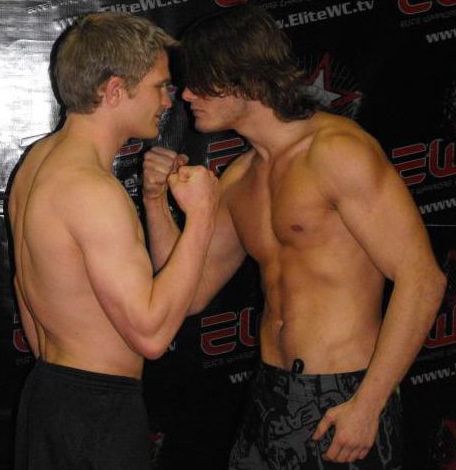

Contemporary Bare Knux Fighter after a Fight
Might one of Plato's Guardians have looked like this?
Yes!
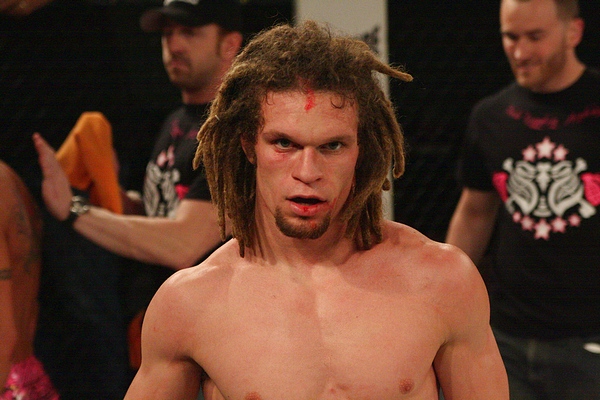
Ares Hypostatized: Manhood is God

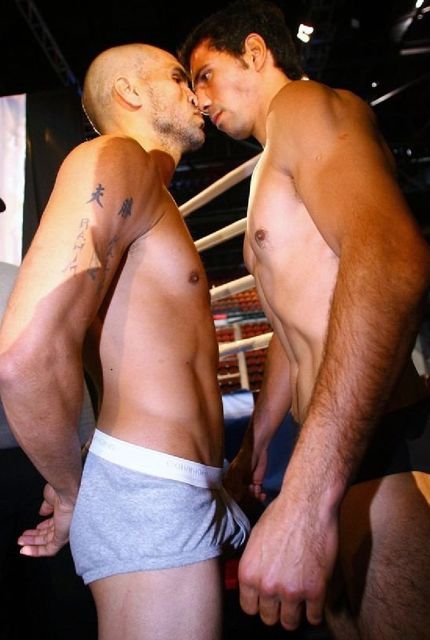
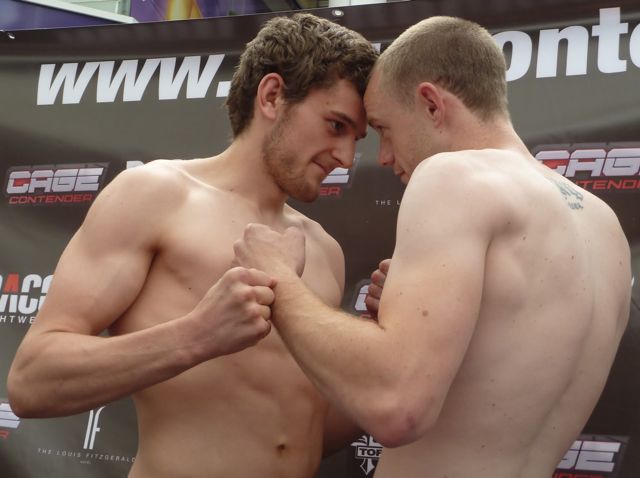
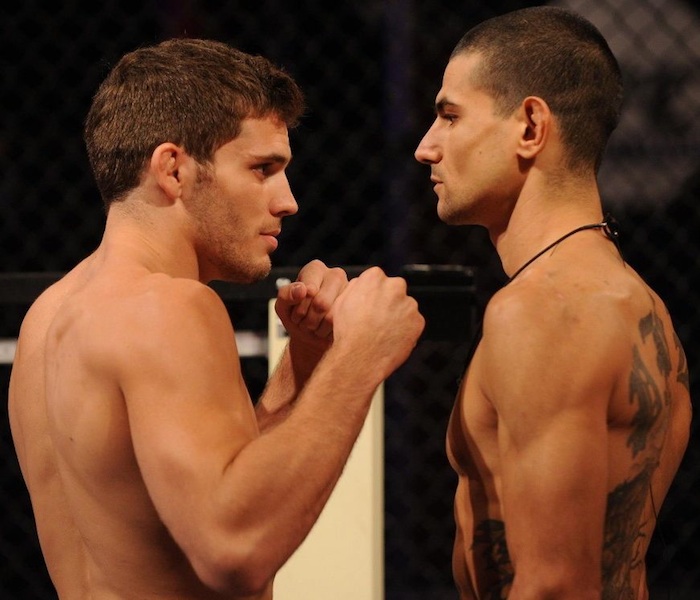
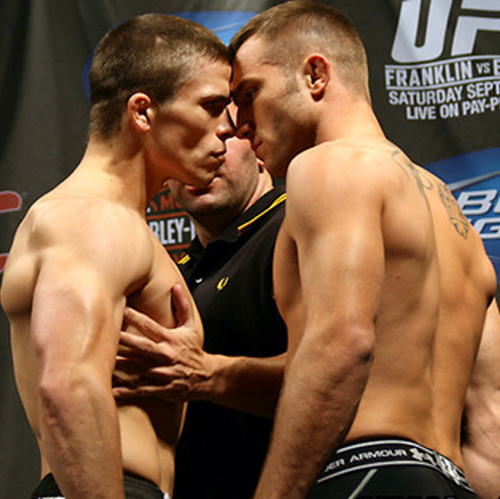
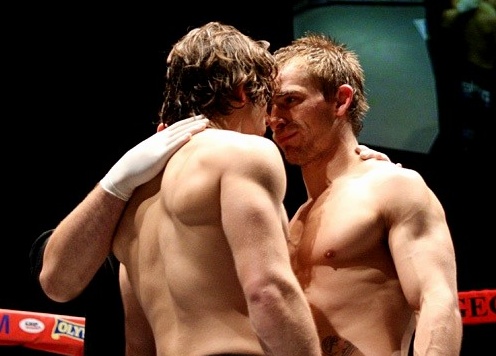
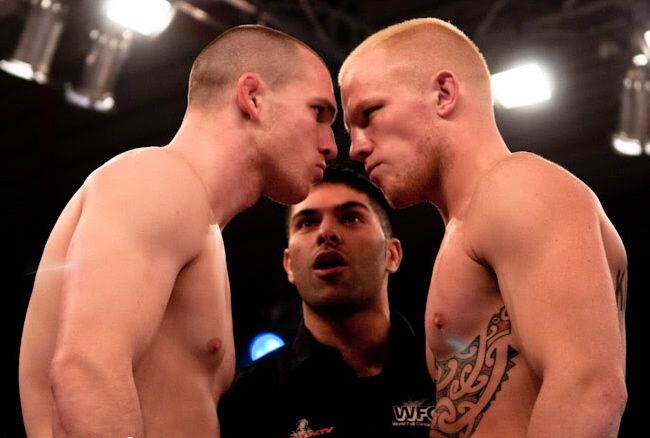
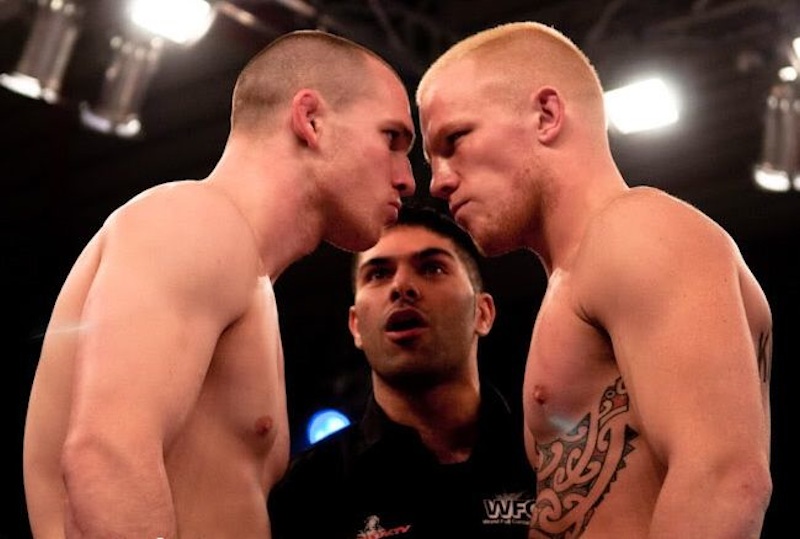
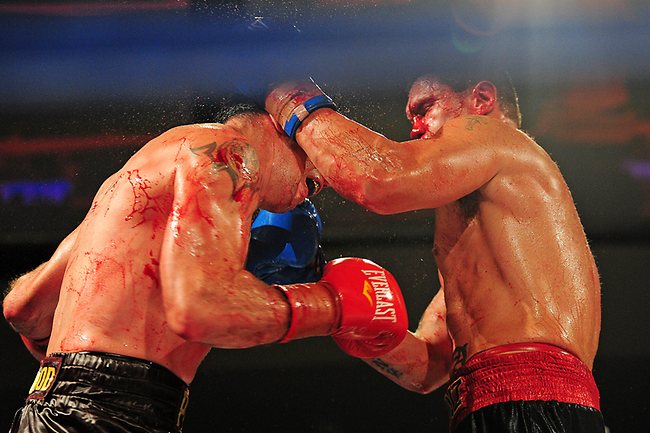
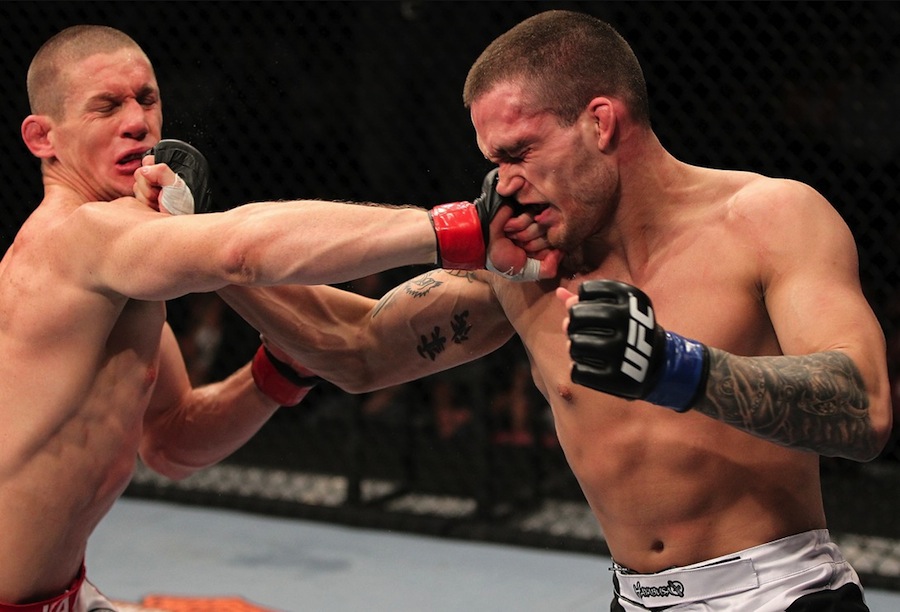
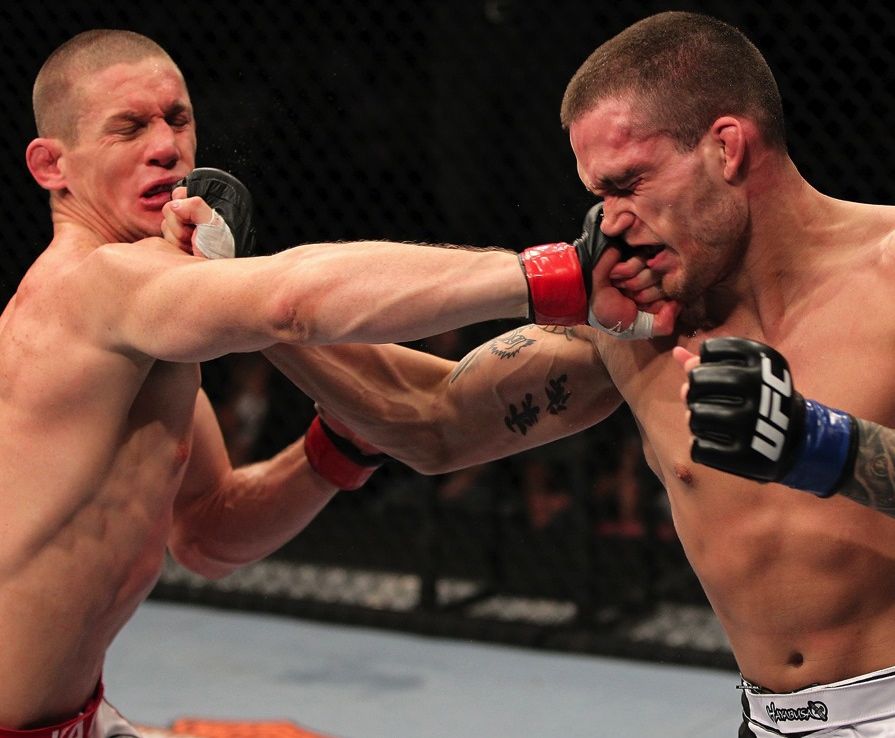

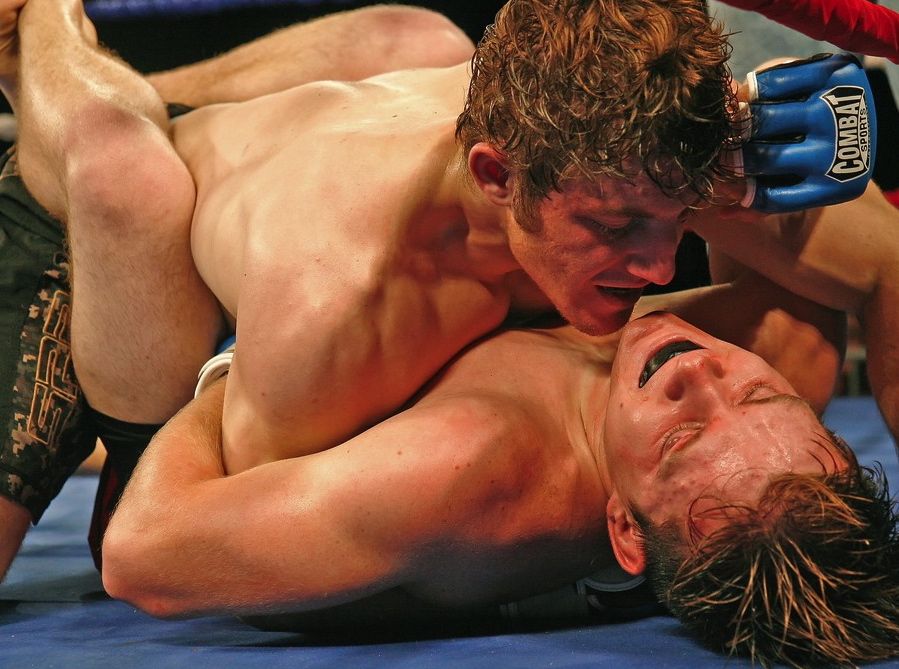

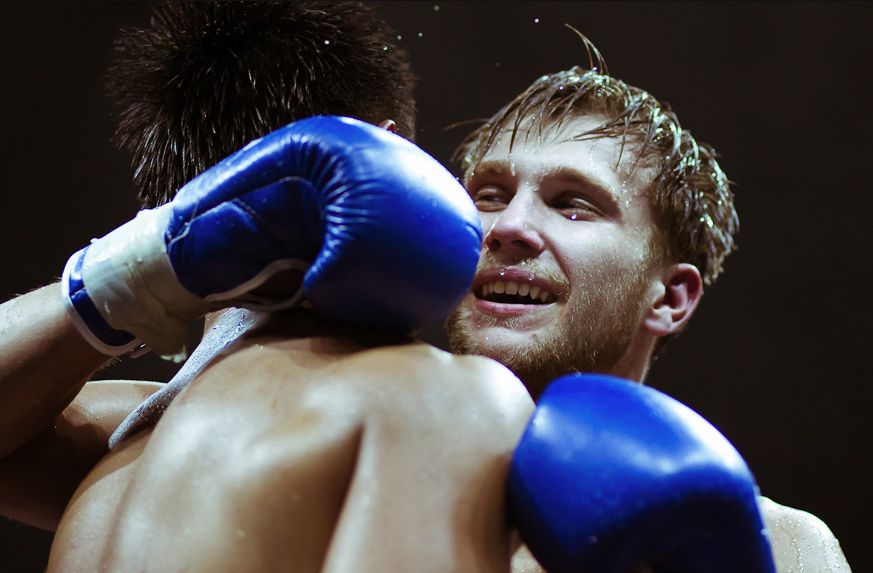
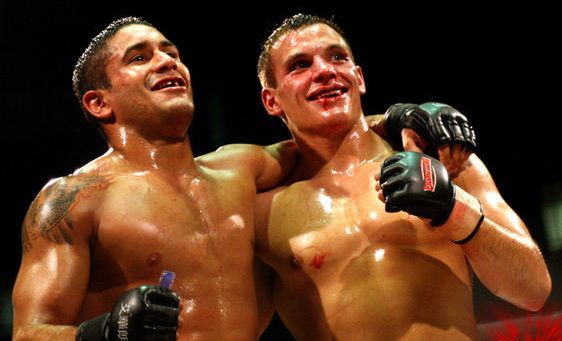

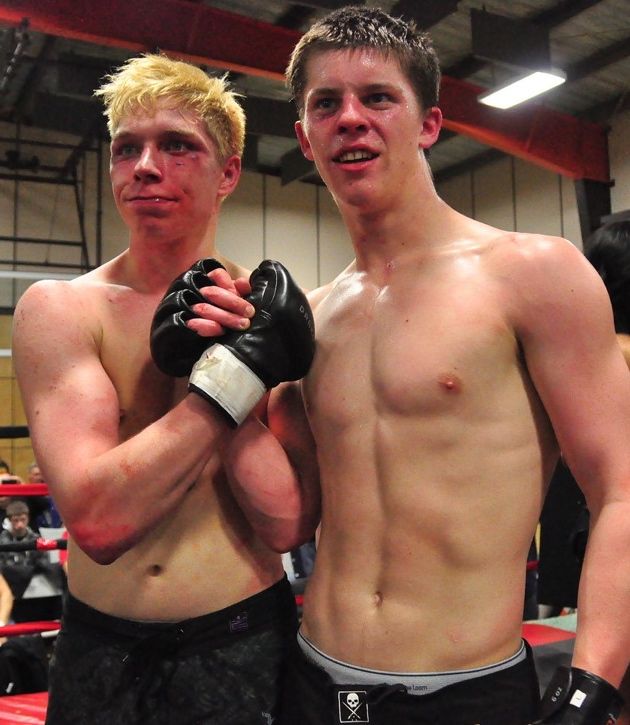


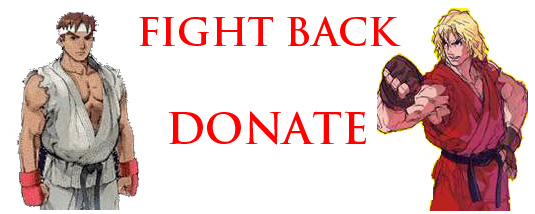
to
Contents.
to 


![]()

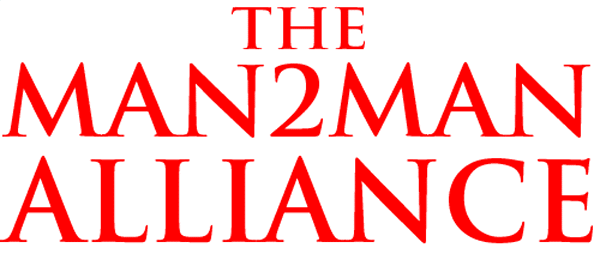






who reject anal penetration, promiscuity, and effeminacy
among men who have sex with men








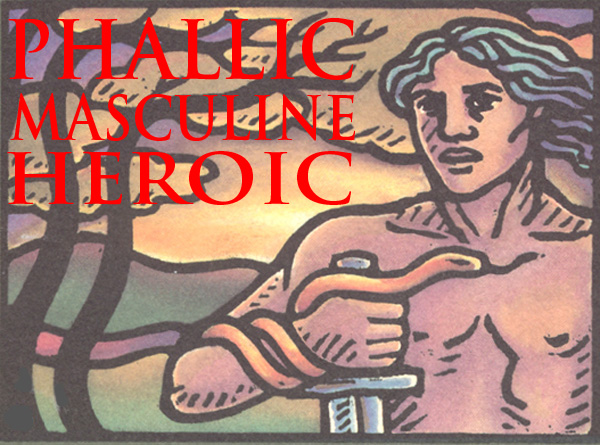


![]()

Who Celebrate, Exalt, and Worship
Fighting Manhood
In the Divine and Sacred Person of
L o r dxA r e s,
The Warrior God
God of Fight, God of Manhood, God of Fighting Manhood

| Heroes Site Guide | Toward a New Concept of M2M | What Sex Is | In Search of an Heroic Friend | Masculinity and Spirit |
| Jocks and Cocks |
Gilgamesh | The Greeks | Hoplites! | The Warrior Bond | Nude Combat | Phallic, Masculine, Heroic | Reading |
| Heroic Homosex Home | Cockrub Warriors Home | Heroes Home | Story of Bill and Brett Home | Frot Club Home |
| Definitions | FAQs | Join Us | Contact Us | Tell Your Story |

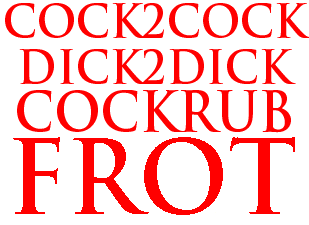

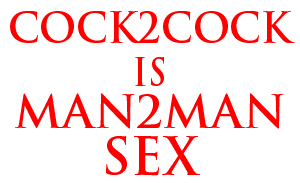
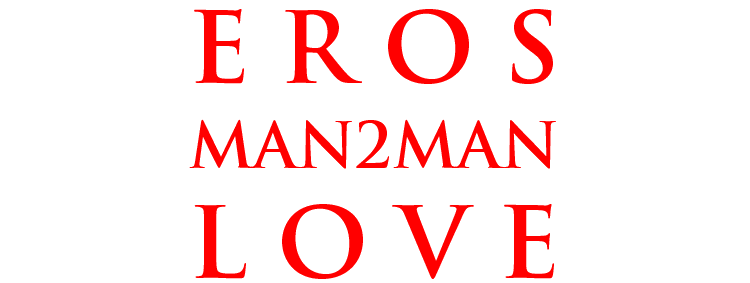
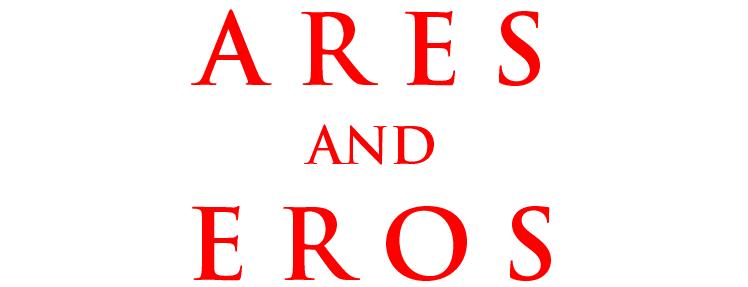
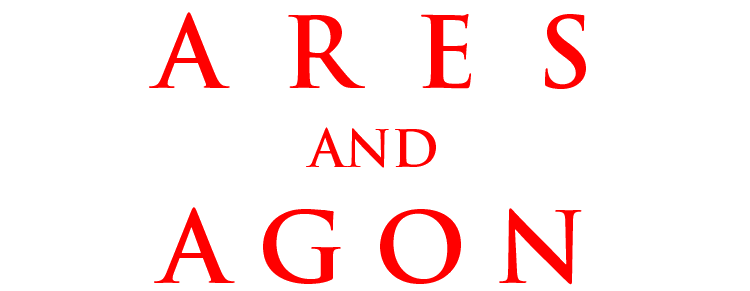
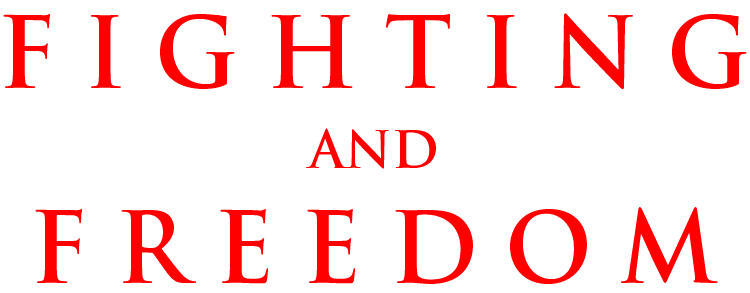
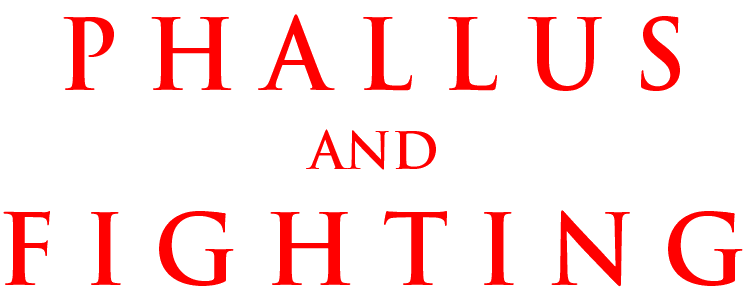
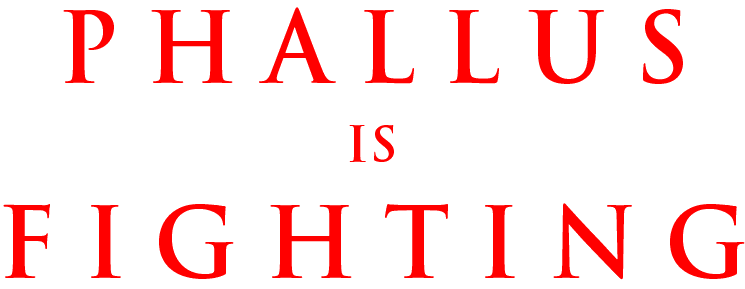
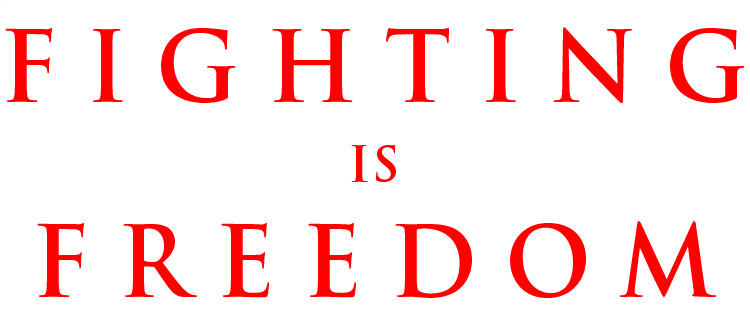
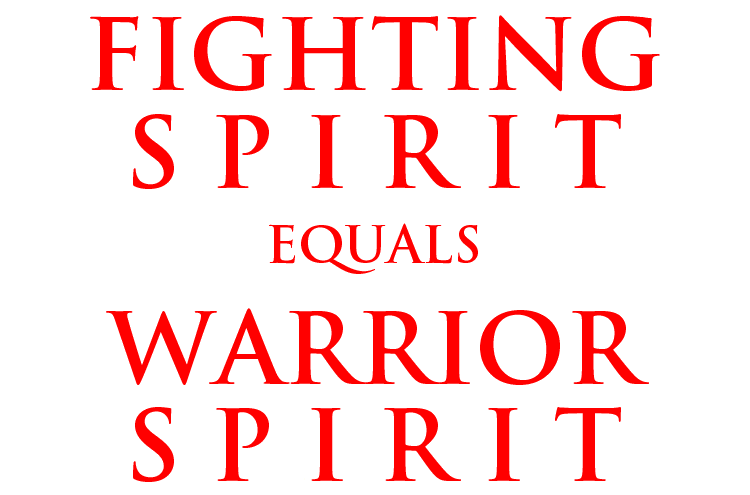

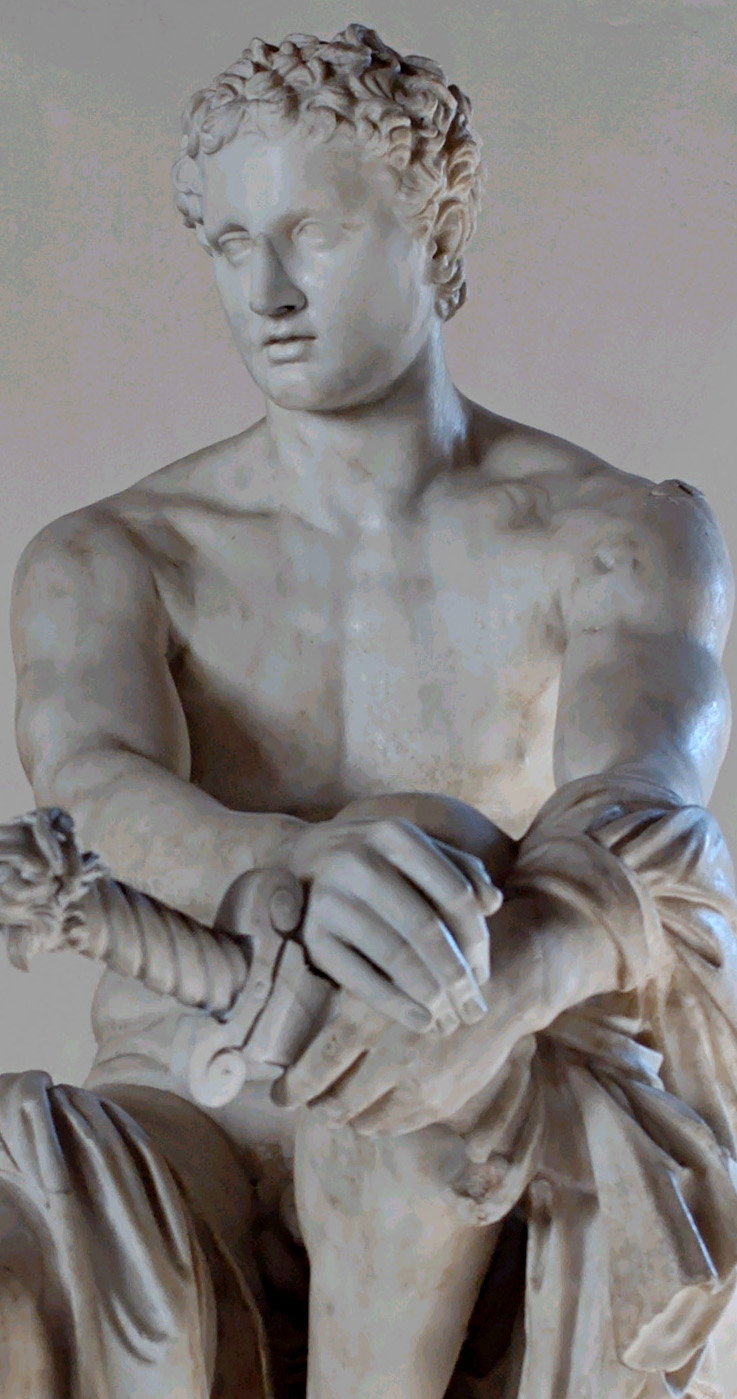



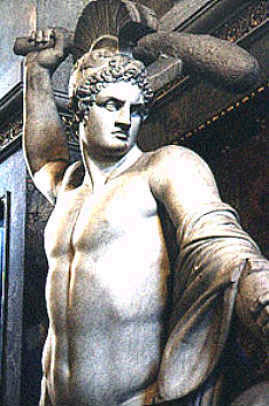
































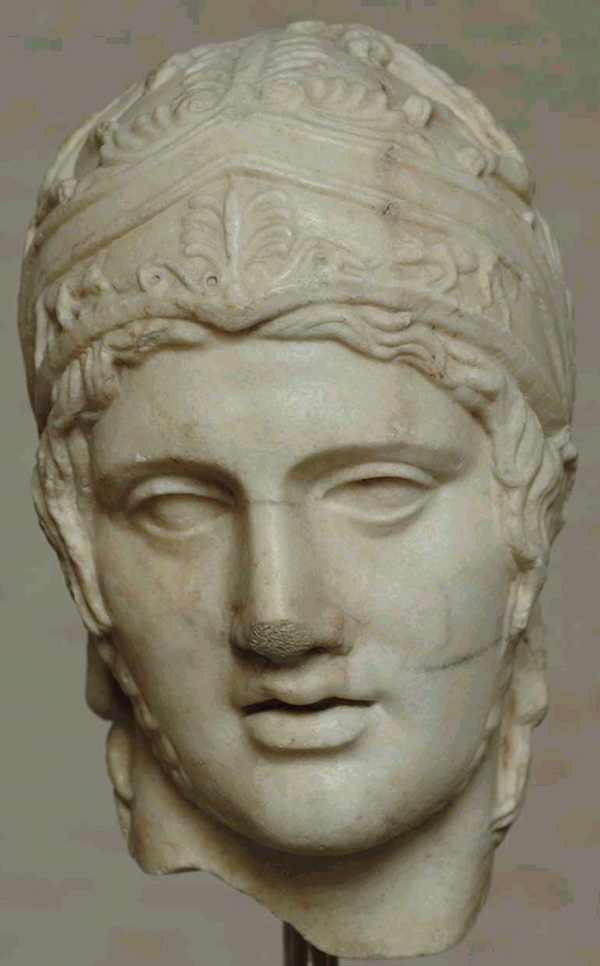














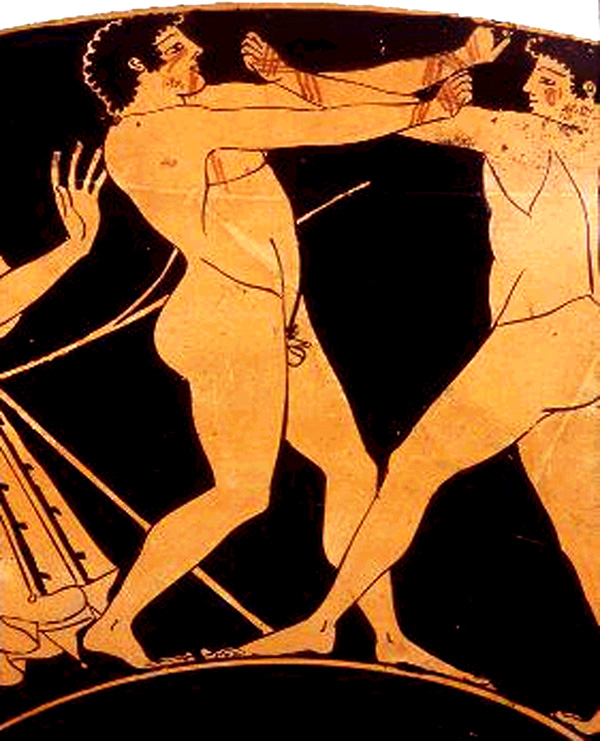


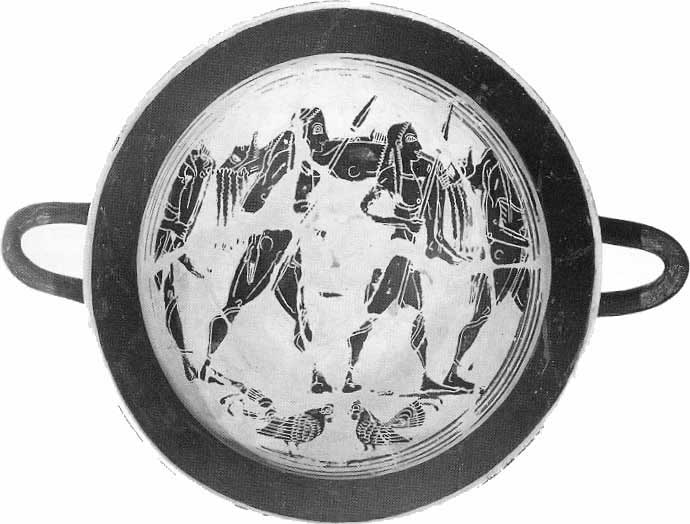














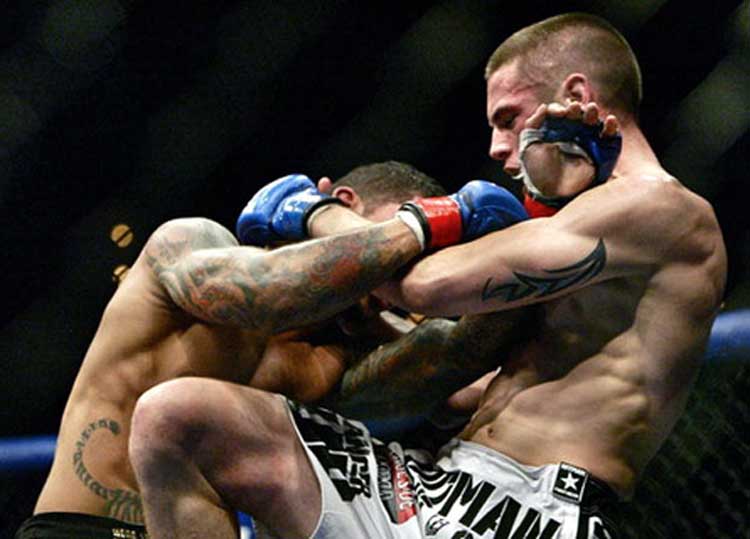
















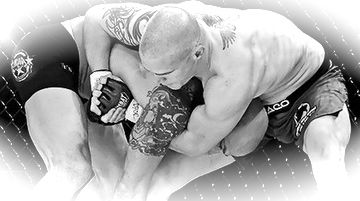
Recently I've been reading John Milton, the great English poet and defender of the Puritan and Parliamentary Revolution.
I've been reading his prose pieces -- which were written to advance that Revolutionary cause.
If you think I'm dogmatic and militant -- you should read Milton.
But his militancy helped bring about the freedoms we have today.
If an army went into battle without proper training and organisation they would lose. Historic example, in the English Civil War (1642 to 1646) the army of King Charles 1st was better organised and won most of the first battles; however Oliver Cromwell trained and organised the men fighting on Parliament's side into the New Model Army, and they won! If they had not been so organised the King would have carried on as the dictator he had been. Maybe eventually we would have got the freedoms that we enjoy now but it would have come more slowly and the monarch would have given them very grudgingly; so organisation is as you say vital to winning.









MANHOOD: A LEXICON
Word ListAncient Greek Words:
Manhood, manliness, strength, vigor, bravery, courage, excellence; Valour, gallantry, fortitude; Goodness, moral perfection, high character, virtue; Worth, merit, value.
Manhood, manliness, strength, vigor, bravery, courage, excellence; Valour, gallantry, fortitude; Goodness, moral perfection, high character, virtue; Worth, merit, value --

While the games were being held at Olympia, an old man was desirous of seeing them, but could find no seat. As he went to place after place, he met with insults and jeers, and nobody made room for him. But when he came opposite the Spartans, all the boys and many of the men arose and yielded their places. Whereupon the assembled multitude of Greeks expressed their approbation of the custom by applause, and commended the action beyond measure; but the old man, shaking "His head grey-haired and grey-bearded," and with tears in his eyes, said, 'Alas for the evil days ! Because all the Greeks know what is right and fair [ta kala -- The Noble Warrior Way of Manly Moral Beauty], but the Spartans alone practise it.'

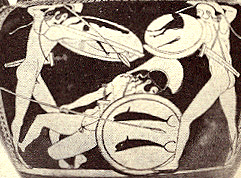
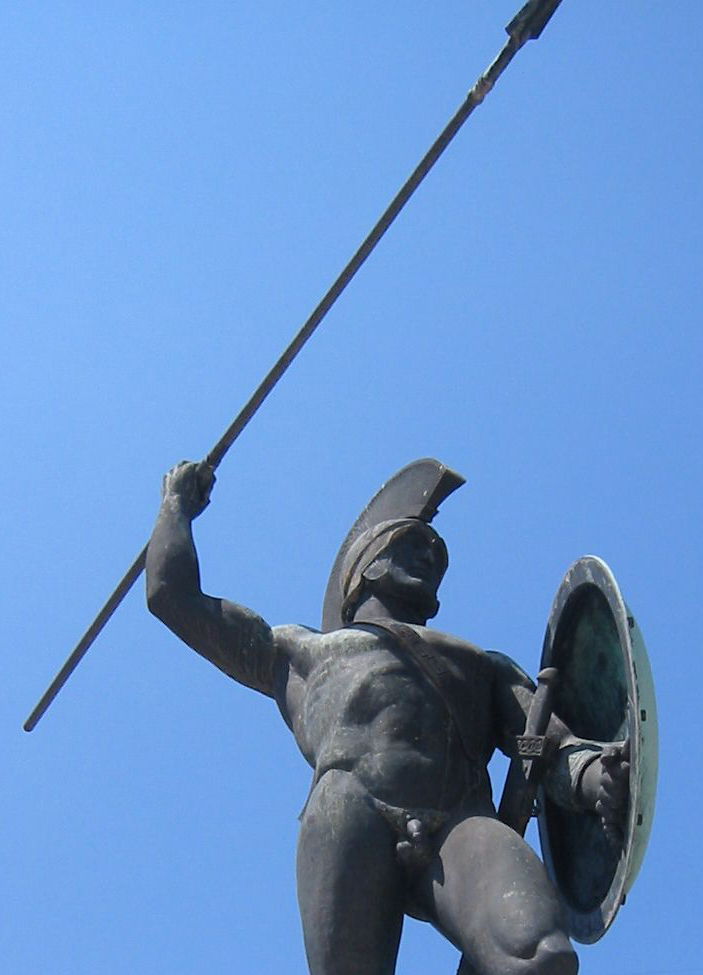



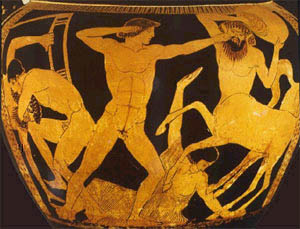
Manhood, manliness, strength, vigor, bravery, courage, excellence; Valour, gallantry, fortitude; Goodness, moral perfection, high character, virtue; Worth, merit, value.

From the same root [ARES] come areté, ari-, areion [better], aristos [best], the first notion of goodness being that of manhood, bravery in war; cf. Lat. virtus.
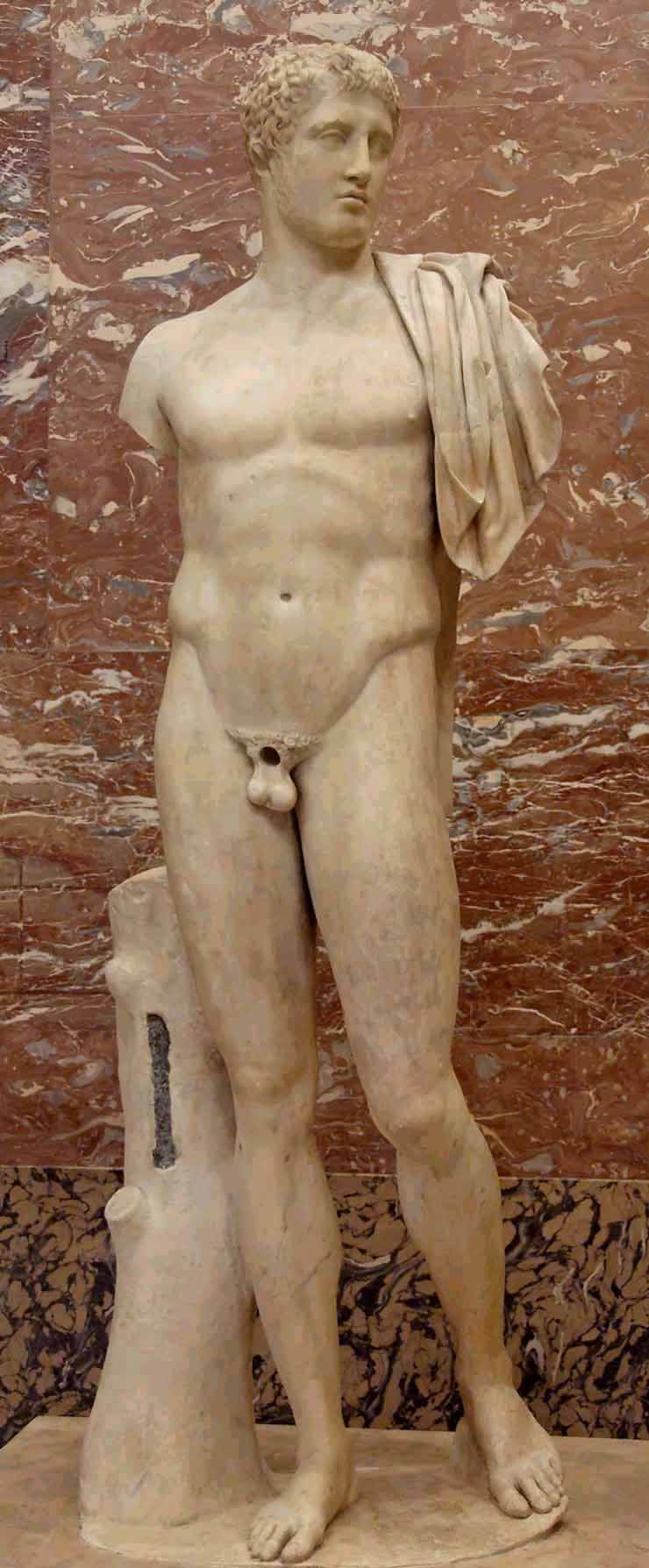
Diomedes
the short but glorious aristeia [heroism] of the Greek spirit. The basic motive of Greek areté is contained in the words 'to take possession of the beautiful'. The courage of a Homeric nobleman is superior to a mad berserk contempt of death in this -- that he subordinates his physical self to the demands of a higher aim, the beautiful. And so the man who gives up his life to win the beautiful, will find that his natural instinct for self-assertion finds its highest expression in self-sacrifice.
Ares, then, if you like, would be named for his virility [arren] and courage [andreion = courage, Manliness], or for his hard and unbending nature, which is called arratos; so Ares would be in every way a fitting name for the God of War.





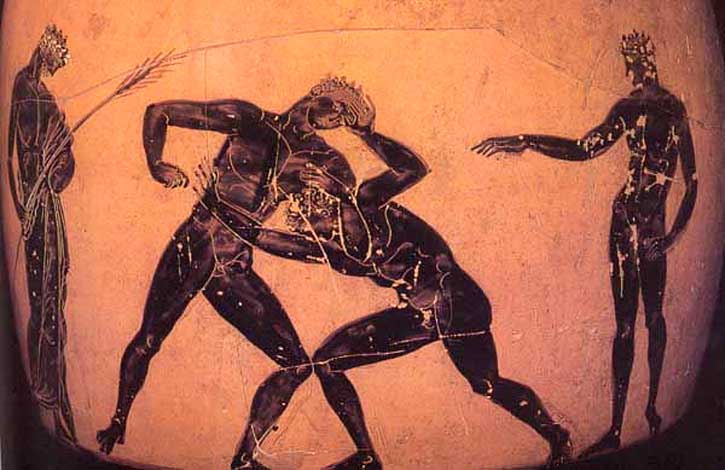


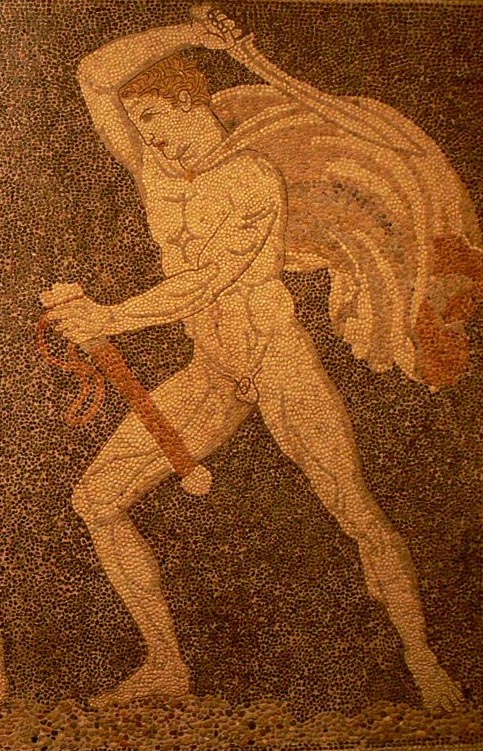
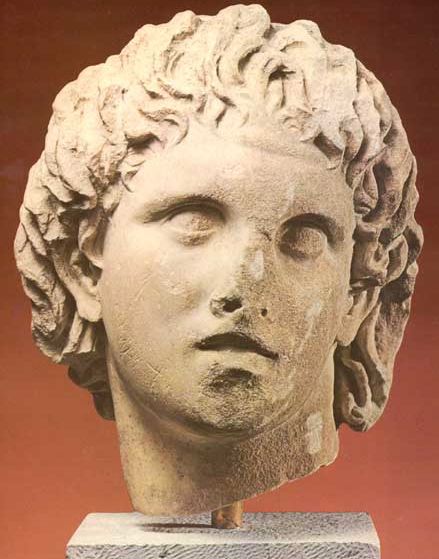
Alexander
Myth represents the active operations [daimonia] of the Gods.





The contemplation of the ειδωλον, image or symbol, leads us to the reality. The reality is always the Platonic Idea [which resides in the World of Being]. The ειδωλον, in the case of ordinary "things," is the material copy which men mistake for the reality. In the case of spiritual things and moral ideas, there is no visible image or symbol, but imperfect analogies, popular definitions, suggestive phrases . . .

Wrestling
The ephedros is on the right ;
he'll Wrestle the Victor of the bout
[V]ictory in competition for timé also carried with it a strong entitlement to the obedience and deference of others and, therefore, lay at the basis of the loyalty of man for man. For it was simply in the nature of things, Greeks thought, for lesser men to respect and obey persons of the highest timé, worth, inasmuch as they were "worthy" of such treatment. Both gods [sic] and men paid automatic, unthinking respect to timé, and men paid respect to the gods [sic] at least in part because of their supreme timé.
The troops were, indeed, suffering terribly, but their discipline was wonderful. They made no attempt to beat off the enemy who were attacking them, but simply waited for the word from their God and their general, while they were shot and struck down at their posts.
The ruin of Paganism, in the age of Theodosius, is perhaps the only example of the total extirpation of any ancient and popular superstition; and may therefore deserve to be considered as a singular event in the history of the human mind.
The order was passed along the line to prepare for action, and suddenly there came over the whole phalanx the look of some ferocious beast, as it wheels at bay, stiffens its bristles, and turns to defend itself, so that the barbarians could no longer doubt that they were faced with Men who would Fight to the Death.
Hybris was both the act of insult -- whatever the reason for it -- and the arrogant disposition that disposed a man to the insult.
[T]he Athenians would not grant the Spartans the highest meed of valor [aristeia], nor allow them to erect a general trophy [tropaion], and the cause of the Hellenes had certainly gone at once to destruction from their armed contention, had not [the Athenian general and politician] Aristides, by abundant exhortation and admonition, checked his fellow-generals, especially Leocrates and Myronides, and persuaded them to submit the case to the Hellenes for decision.
Thereupon, in the council of the Hellenes, Theogeiton the Megarian said that the meed of valor must be given to some third city, unless they desired the confusion of a civil war. At this point Cleocritus the Corinthian rose to speak. Every one thought he would demand the meed of valor for the Corinthians, since Corinth was held in greatest estimation after Sparta and Athens. But to the astonishment and delight of all, he made a proposition in behalf of the Plataeans, and counselled to take away contention by giving them the meed of valor, since at their honor neither claimant could take offence.
